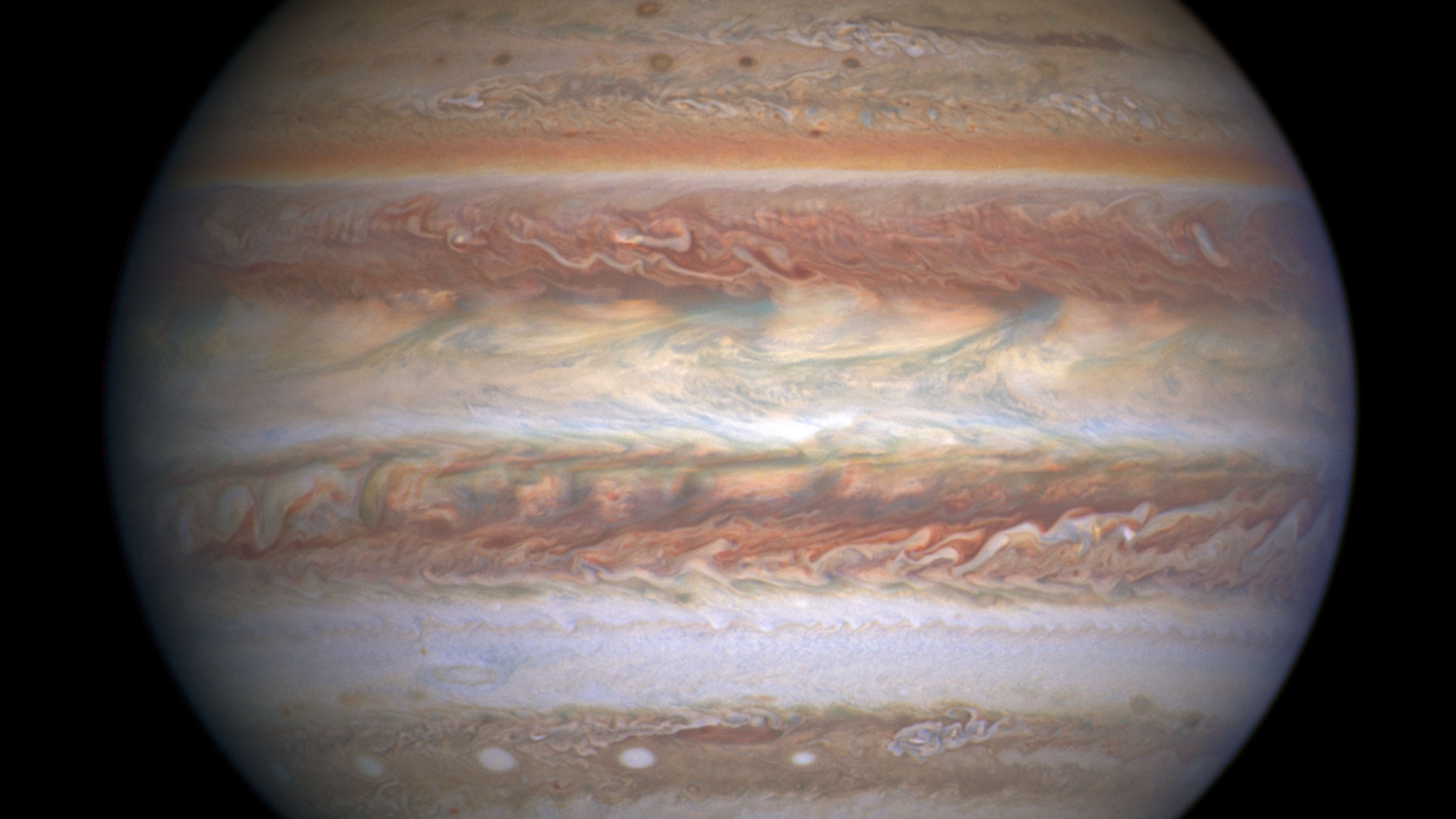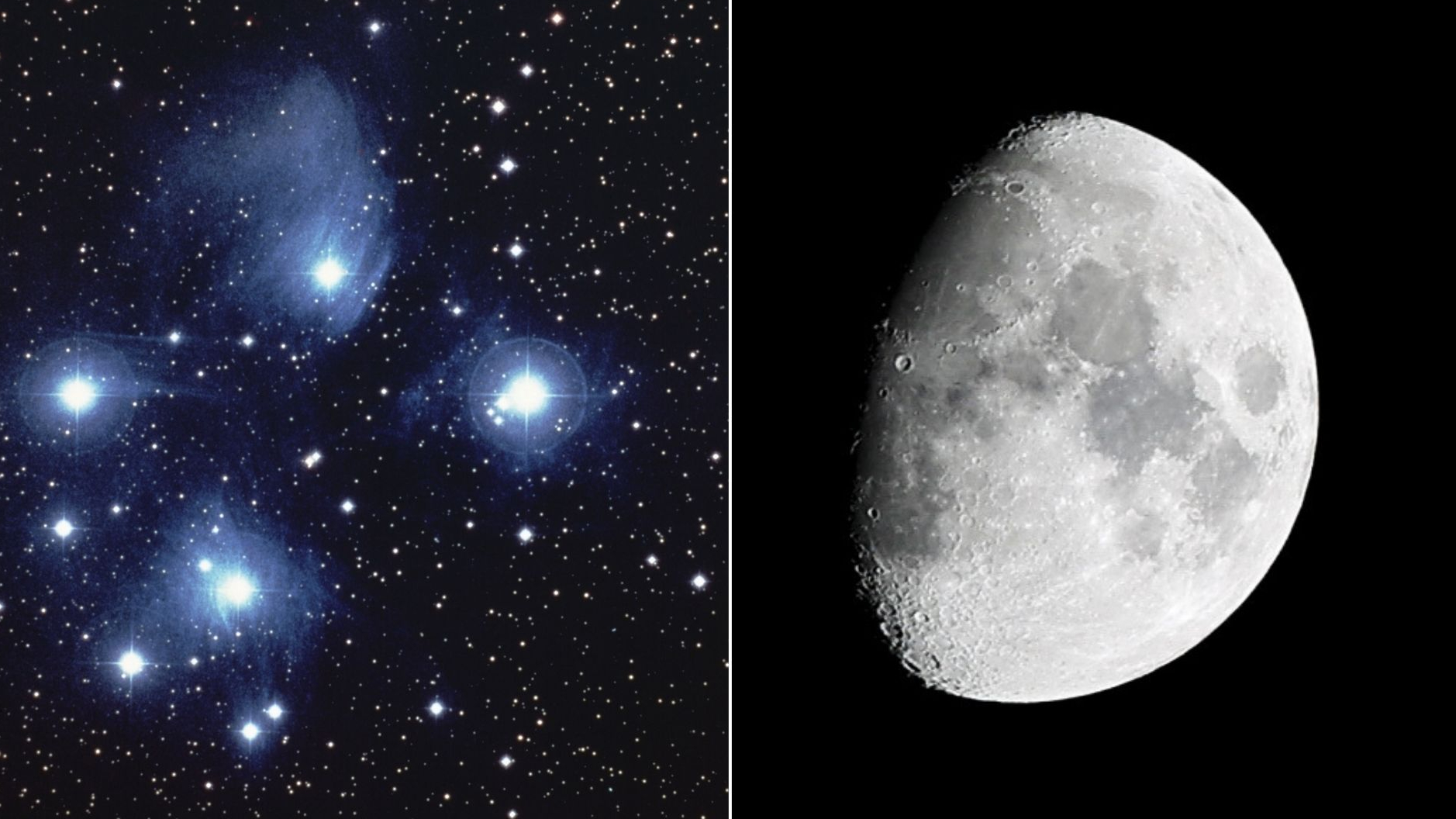Best telescopes 2026: Observe stars, galaxies and nebulas
These are the best telescopes for stargazing and astronomy with top models from Unistellar, Celestron and ZWO.
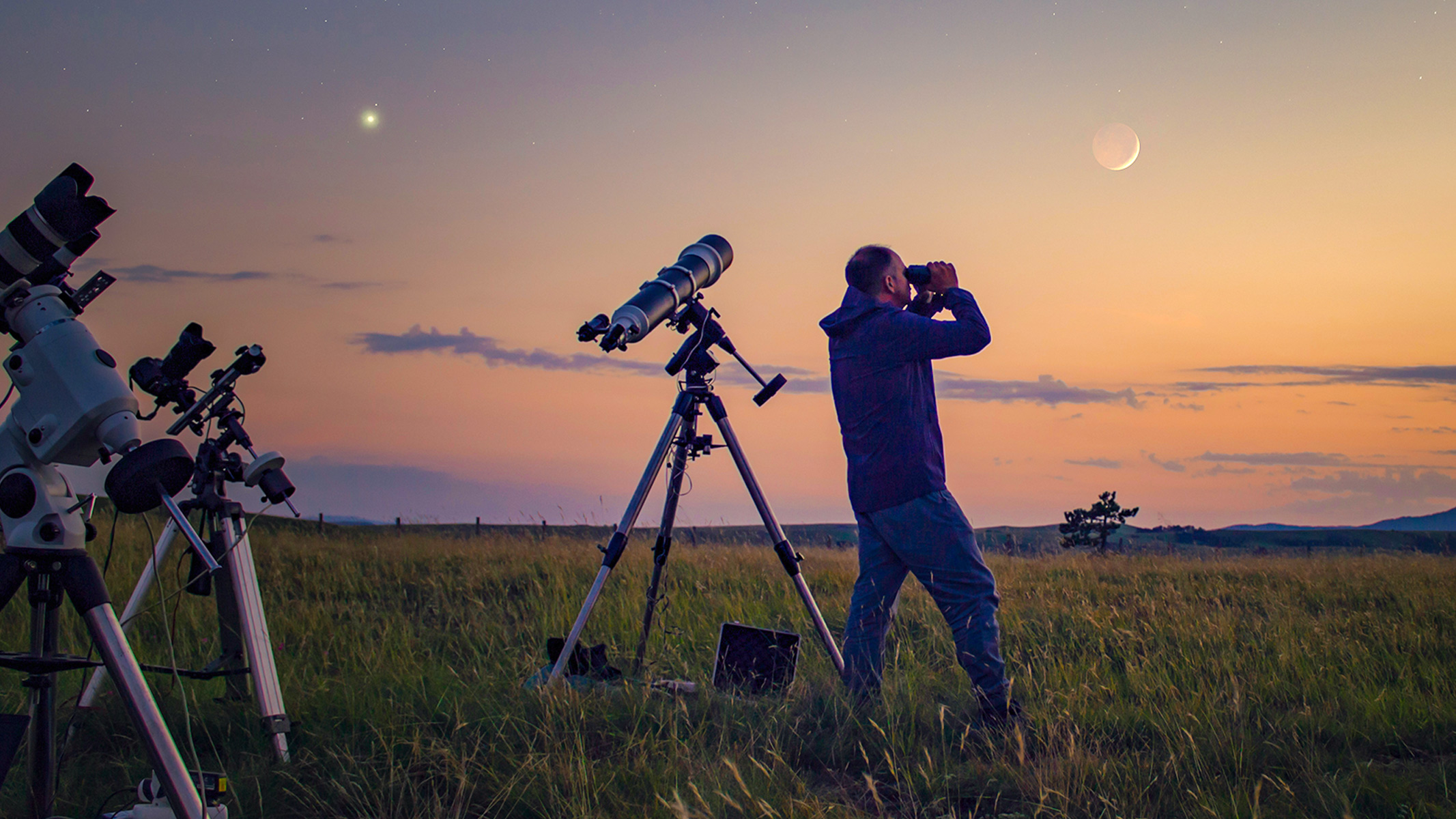
- Quick list
- Best for beginners
- Best budget telescope
- Best value for enthusiasts
- Best premium
- Best for astrophotography
- Best motorized telescope
- Best for portability
- Best for accessories
- Best smart telescope
- Best for deep space
- Best for kids
- Best portable smart telescope
- Best for solar viewing
- Skywatching highlights
- Contributing experts
- Telescope FAQ
- Update Log
- How we test
There are so many things to consider when buying a telescope, especially when it is your first. It can be a daunting task, but our guide makes it a breeze. We cover a range of budgets, skill levels and purposes so that you can pick the telescope that is right for you. From telescopes for beginners to the latest smart telescopes that make stargazing super easy, there will be a telescope here to suit who you are as a skywatcher.
If you are wondering what you can get a better look at with a telescope, check out our top three skywatching highlights for this month or for a more intensive look at the whole month, take a look at our night sky guide.
The quick list
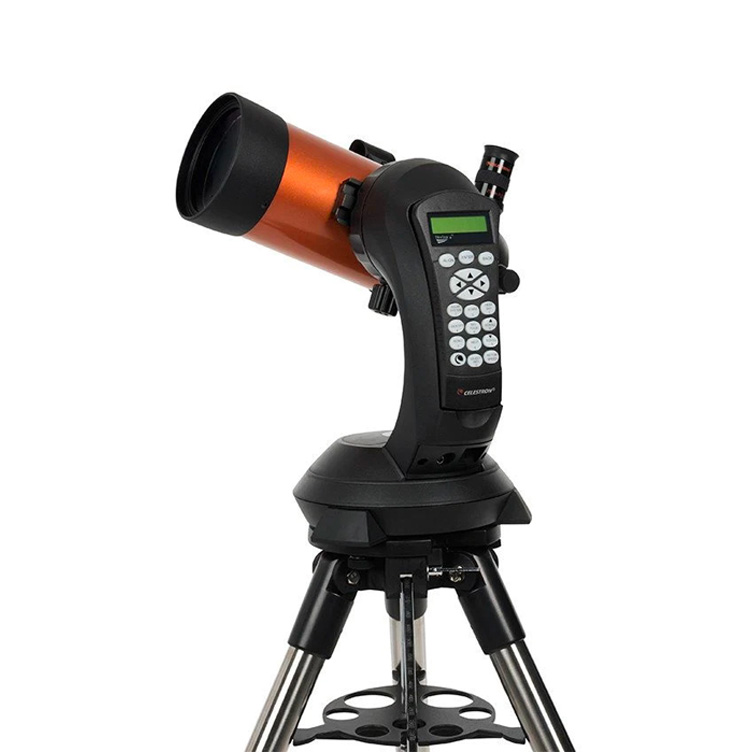
Best for beginners
A great scope for beginners, the Celestron NexStar 4SE is easy to use and set up, it produces clear and bright images and has a whole host of useful features.
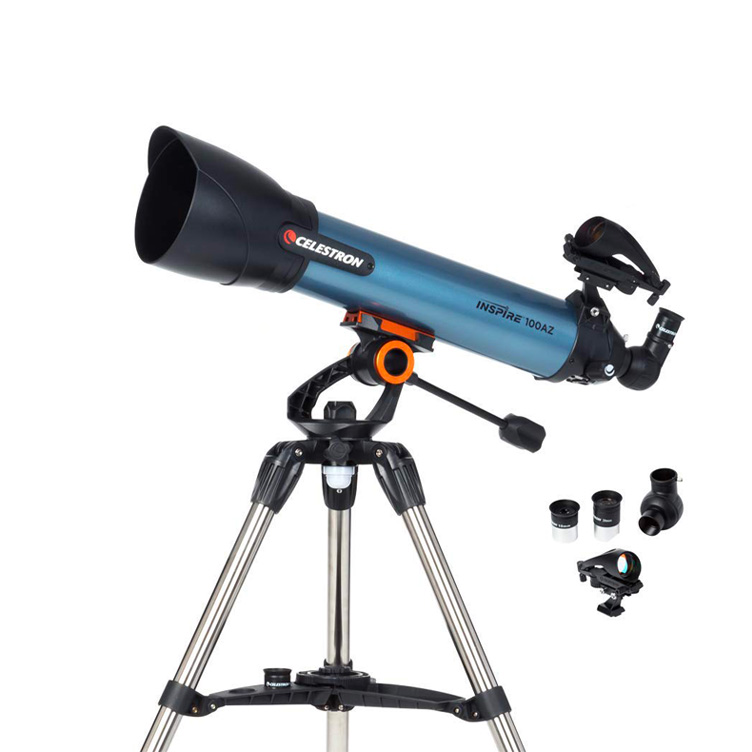
Best budget telescope
The Celestron Inspire 100AZ is a great beginner scope for anyone just getting started with astronomy, it comes with a variety of accessories.
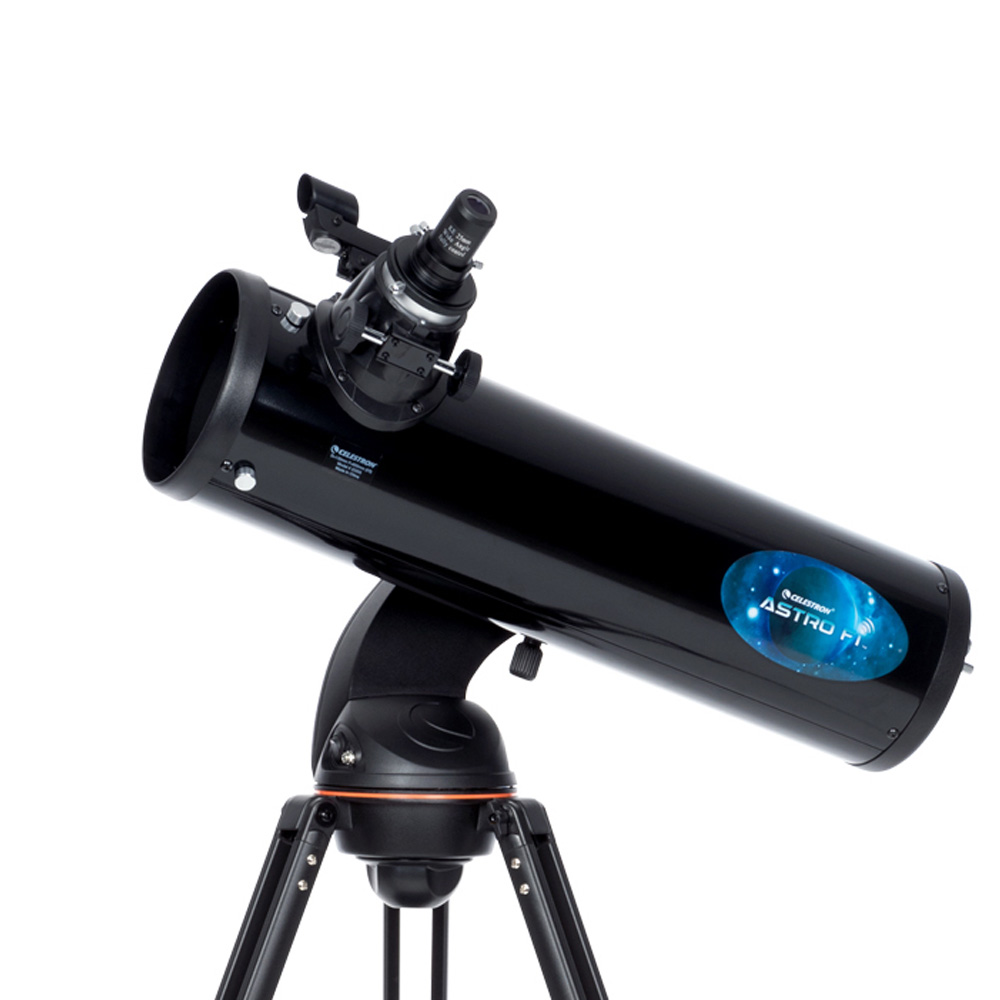
Best value for enthusiasts
We were really impressed with the Celestron Astro Fi 130 when we reviewed it and found it's very good value for money.
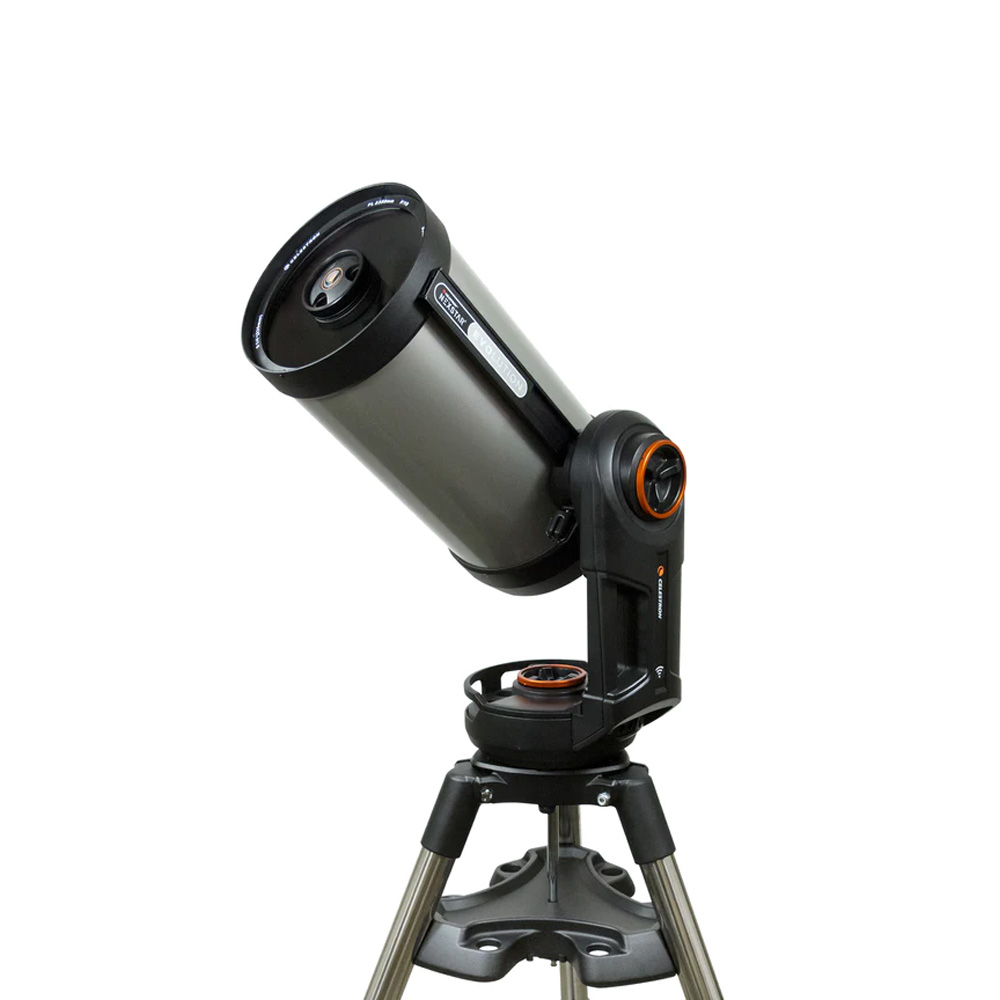
Best premium
We think this is an exceptional telescope that's easy to set up and offers breath-taking views. It's suitable for experienced astronomers too.
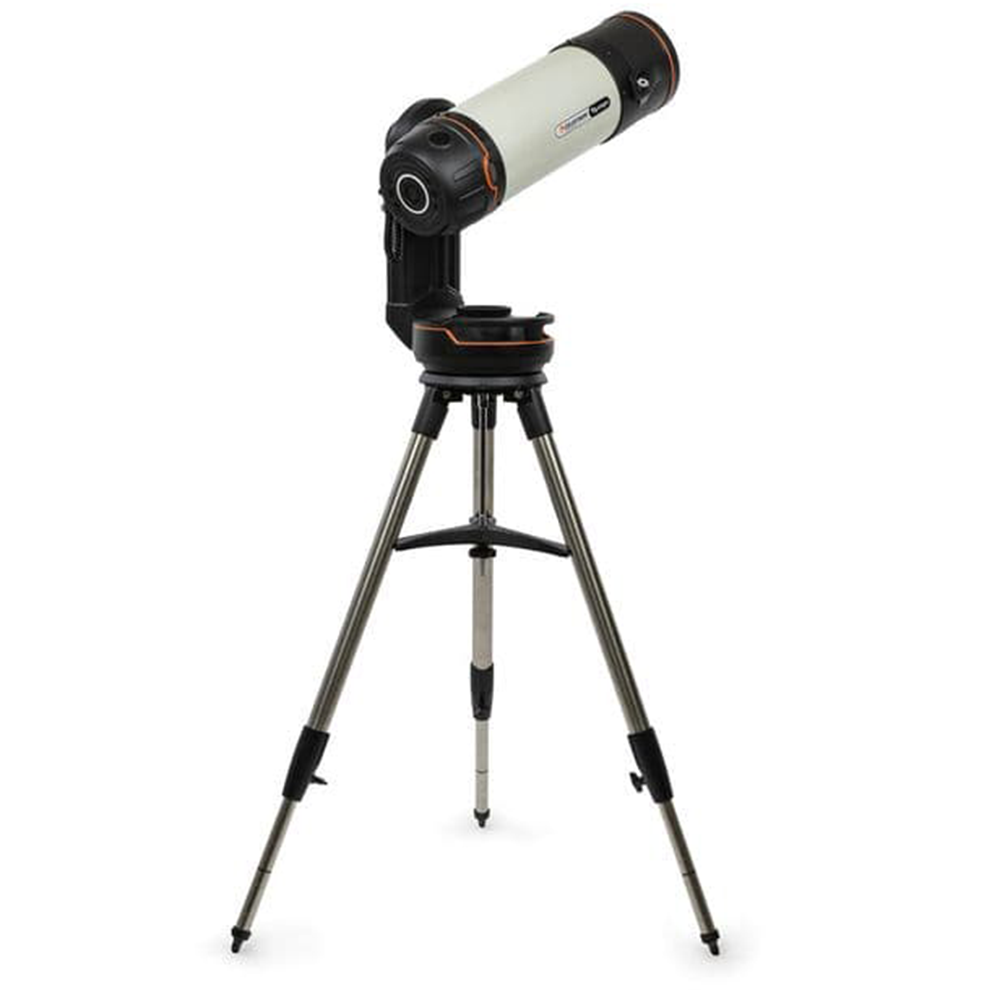
Best for astrophotography
This smart telescope takes beautiful deep sky photos in just a few seconds, but it's not an all-rounder telescope.
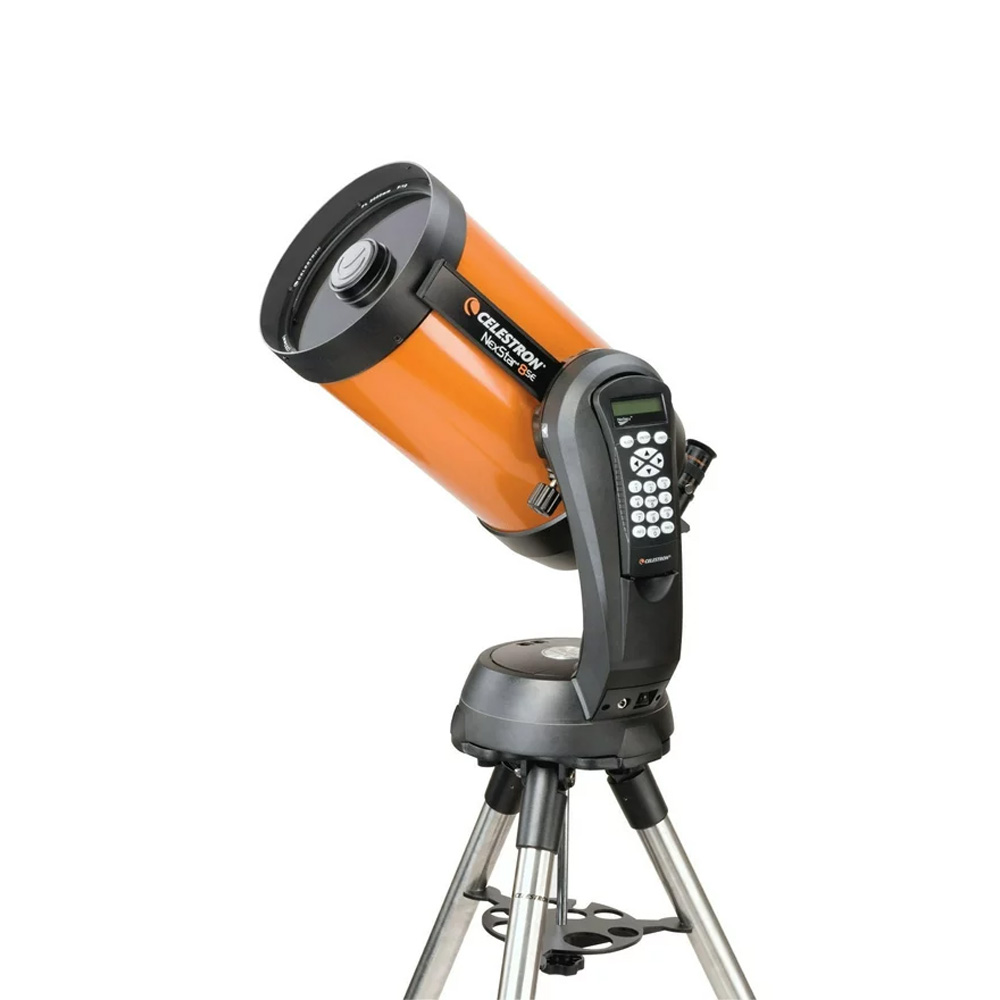
Best motorized telescope
A fantastic scope for any experience level, incredibly easy to use yet powerful enough for deep space exploration and even astrophotography.
Load the next 7 products ↴
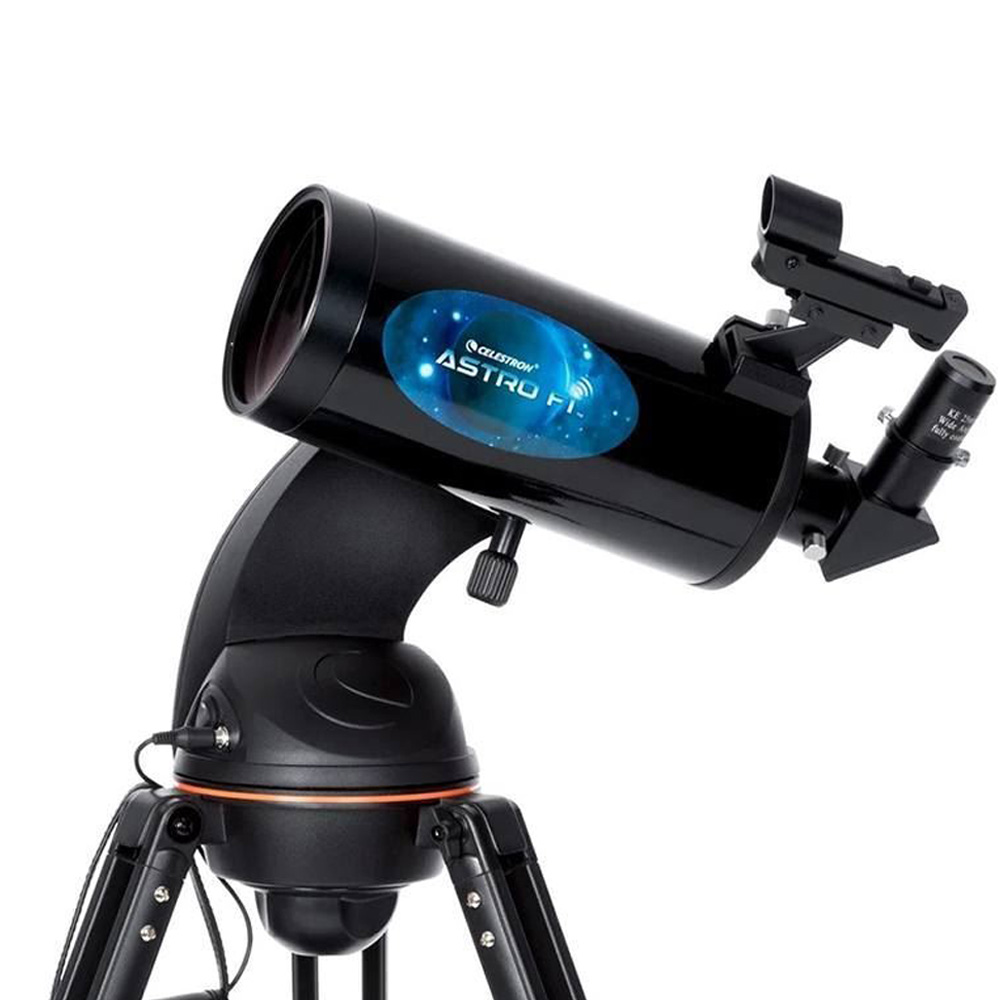
Best for portability
If you live in an urban area with lots of light pollution and need a telescope you can comfortably carry to dark sky sites, this could be the one for you.
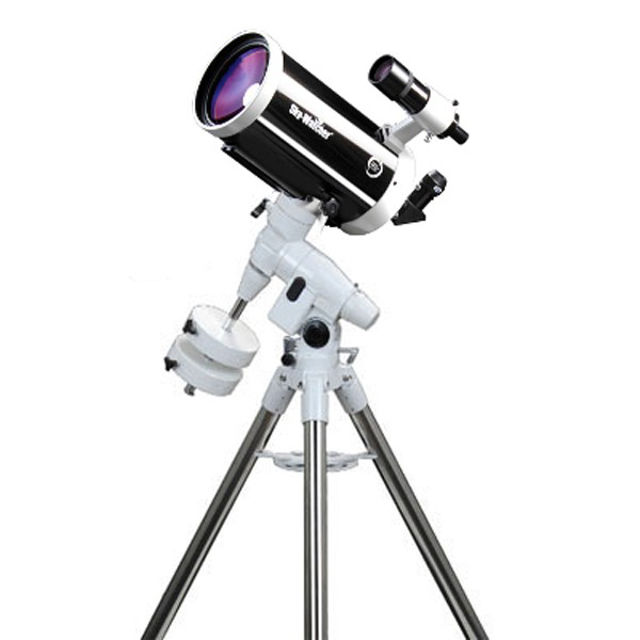
Best for accessories
This telescope is suitable for capturing everything from nebulas to galaxies. It has outstanding optical quality with no signs of distortion, and can accommodate plenty of accessories.
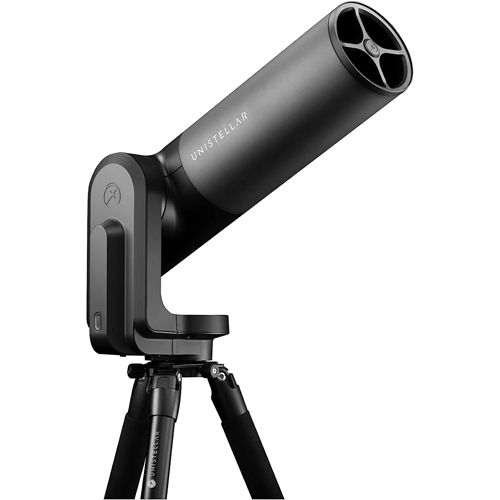
Best smart telescope
If you've got the budget for it, this is Unistellar's most advanced telescope to date. It has a very reliable app and features a Smart Light Reduction feature to eliminate light pollution in urban environments.
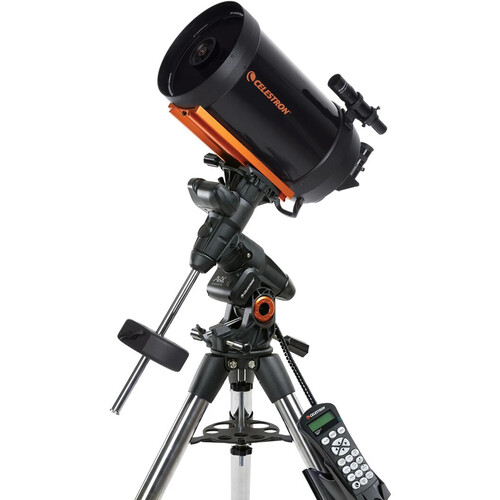
Best for deep space
Great for experienced, long-time astronomers, this scope is excellent for astrophotography thanks to the Edge HD technology. It's a little on the heavy side, but it can carry a load of up to 30 lbs.
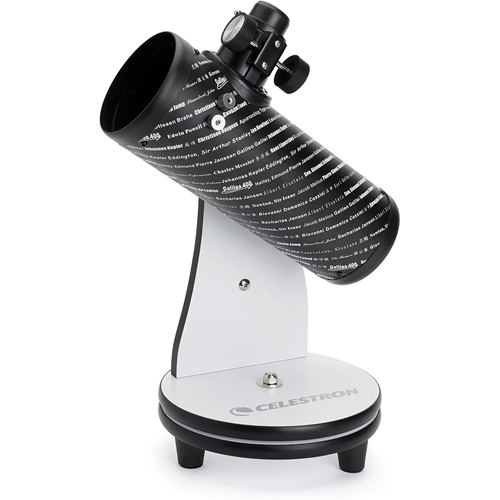
Best for kids
This is a great tabletop telescope and an ideal starting point for beginners and young astronomers. It's easy to set up and put away, but it's not the most powerful.
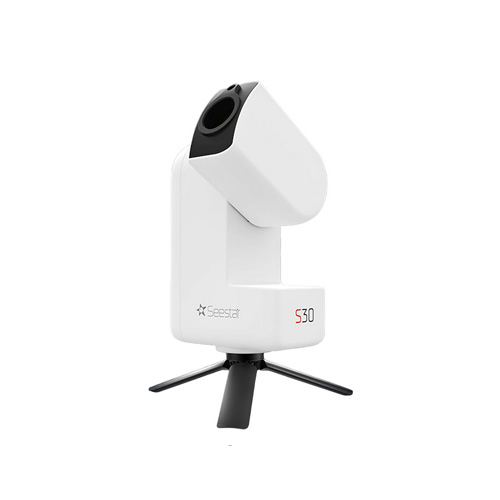
Best portable smart telescope
All the family can have fun using the ZWO Seestar S30 — it's compact, lightweight and easy to use. This really is a telescope that offers no-faff when it comes to viewing the night sky.
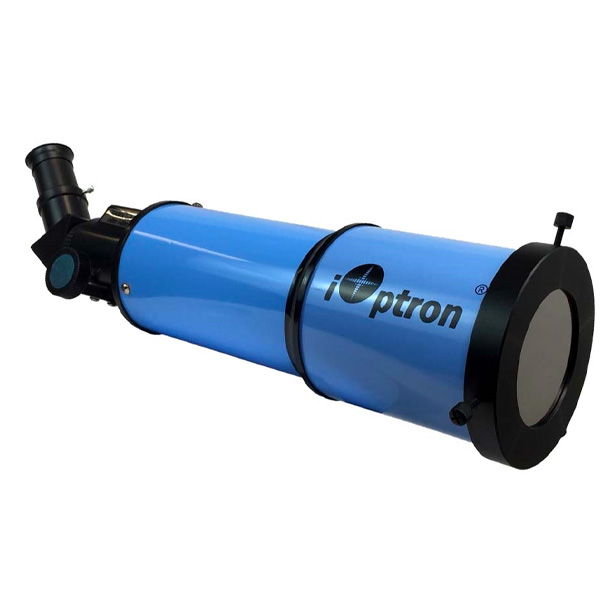
Best for solar viewing
Simply attach the solar filter, and you can be viewing the sun in minutes. This scope is ideal for beginners to solar viewing, but its versatility as a nighttime scope gives it extra credit.
Best telescopes in 2026 that we recommend
Why you can trust Space.com
Best for beginners
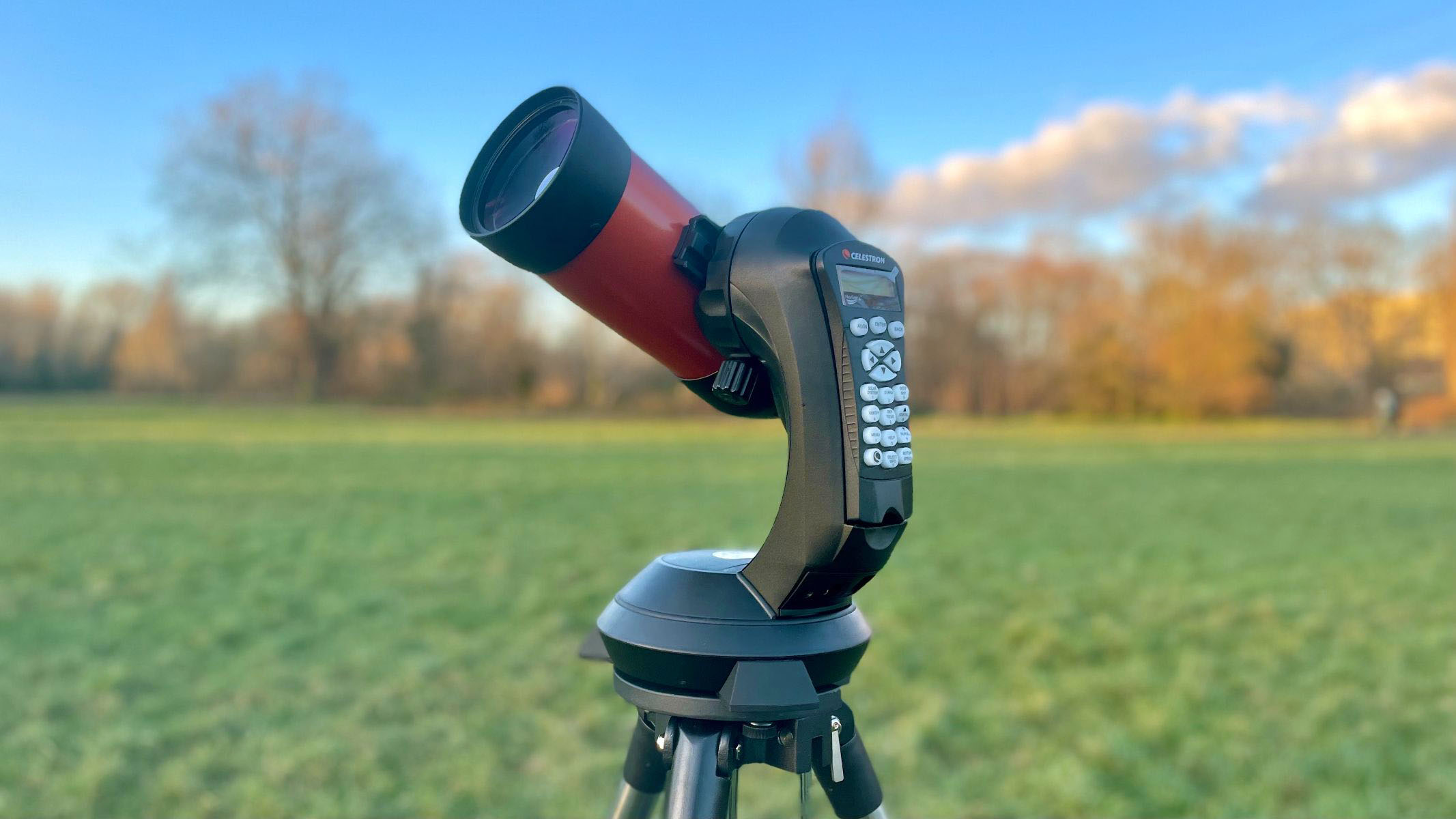
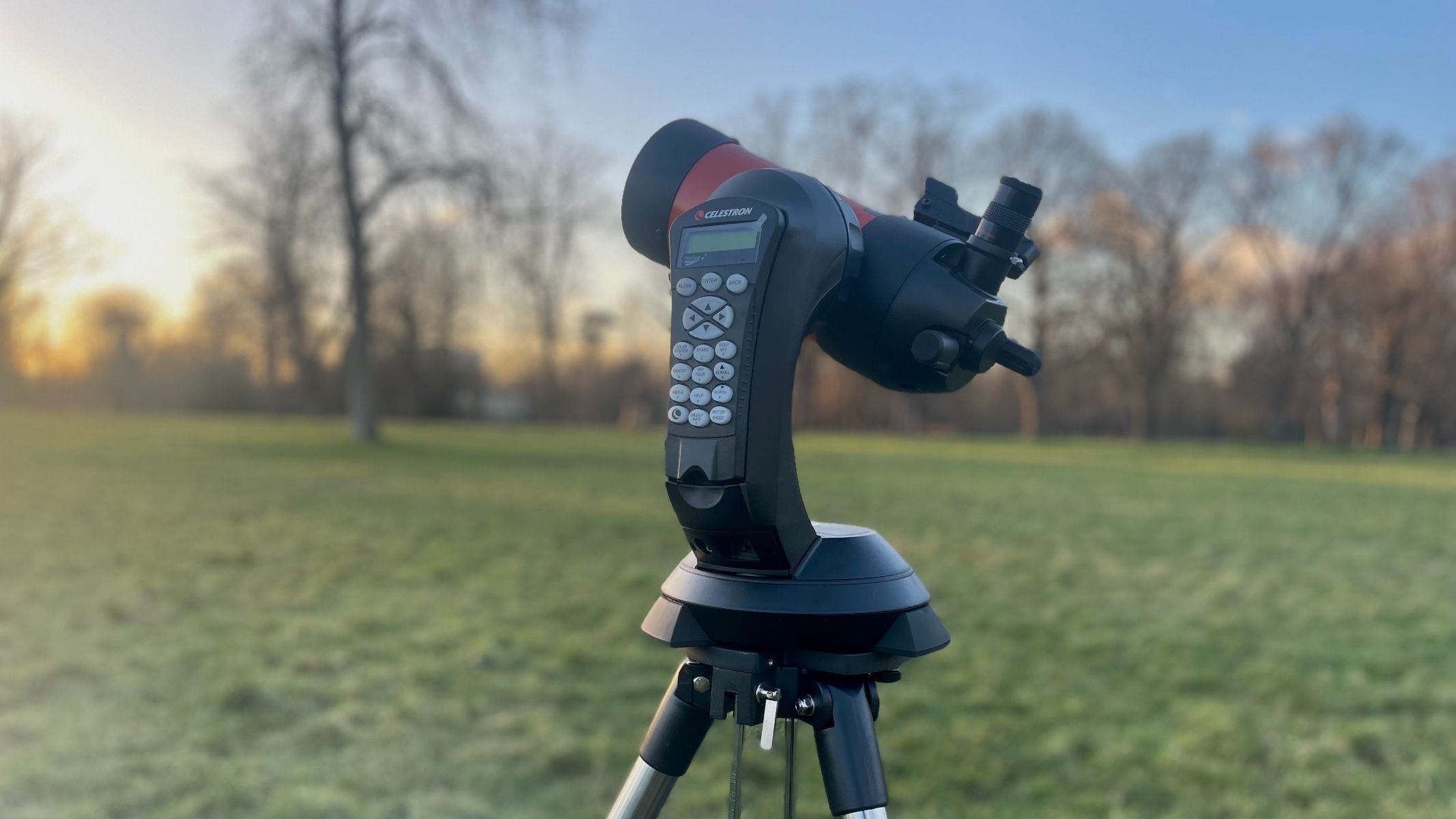
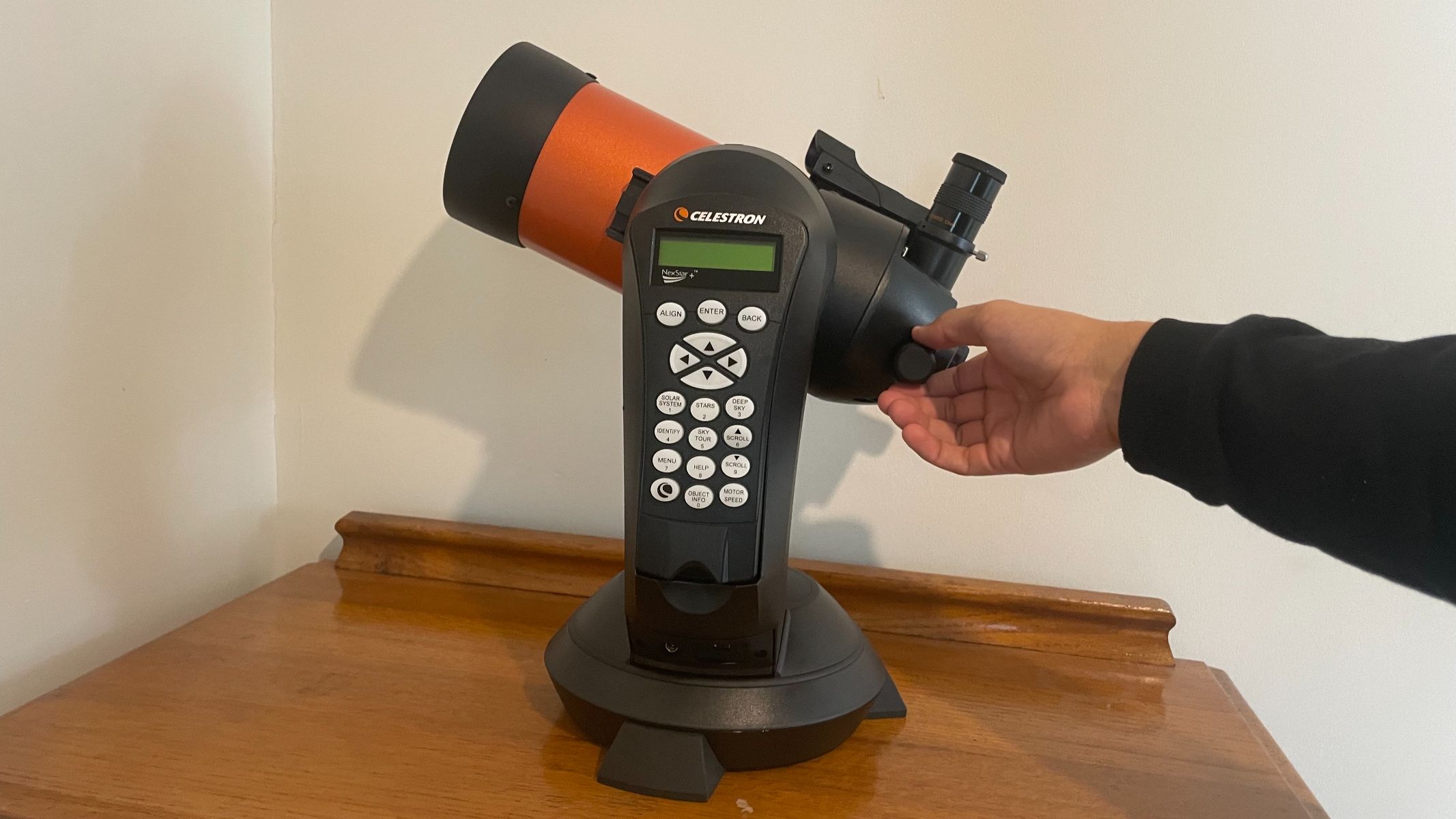
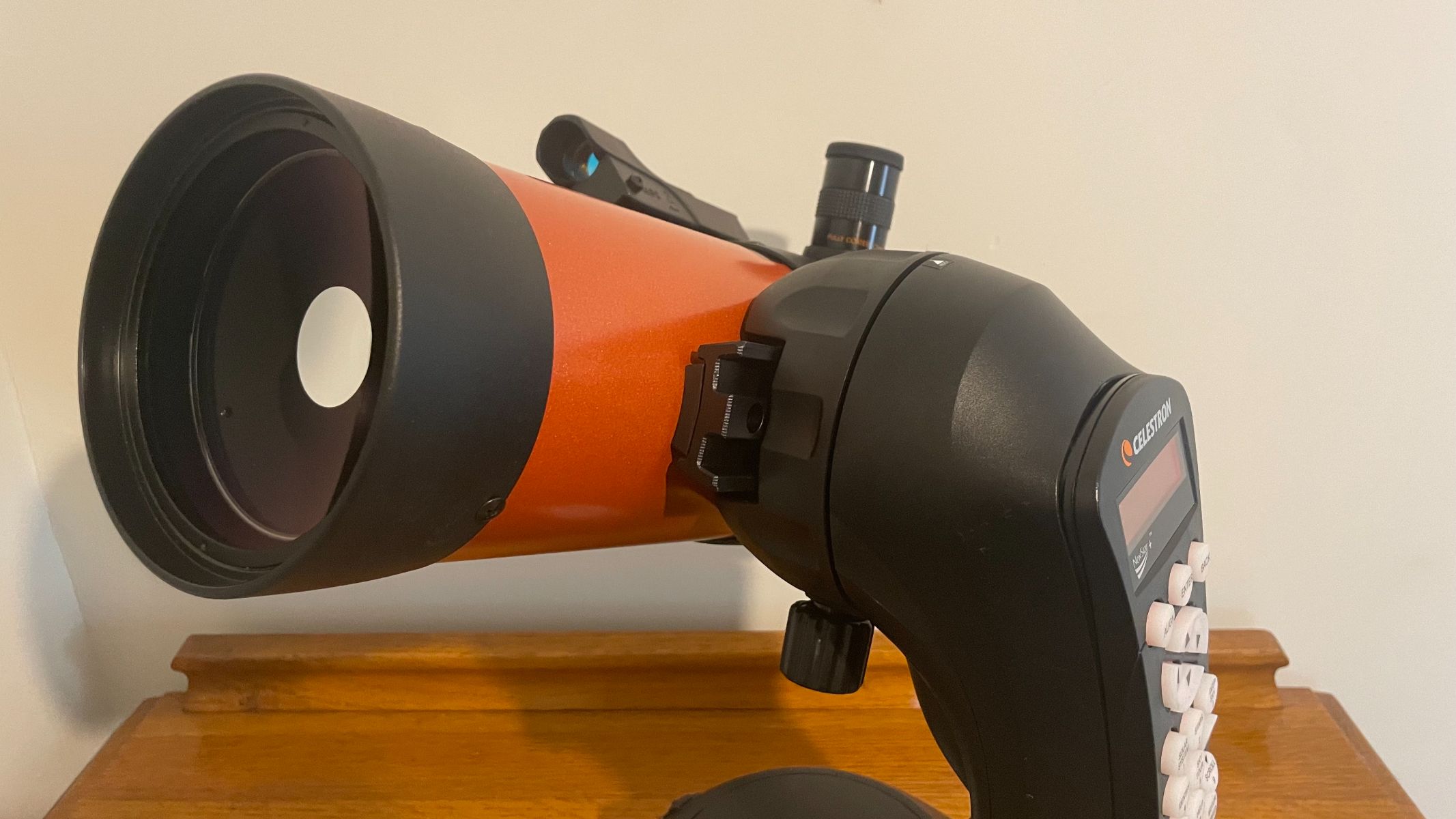
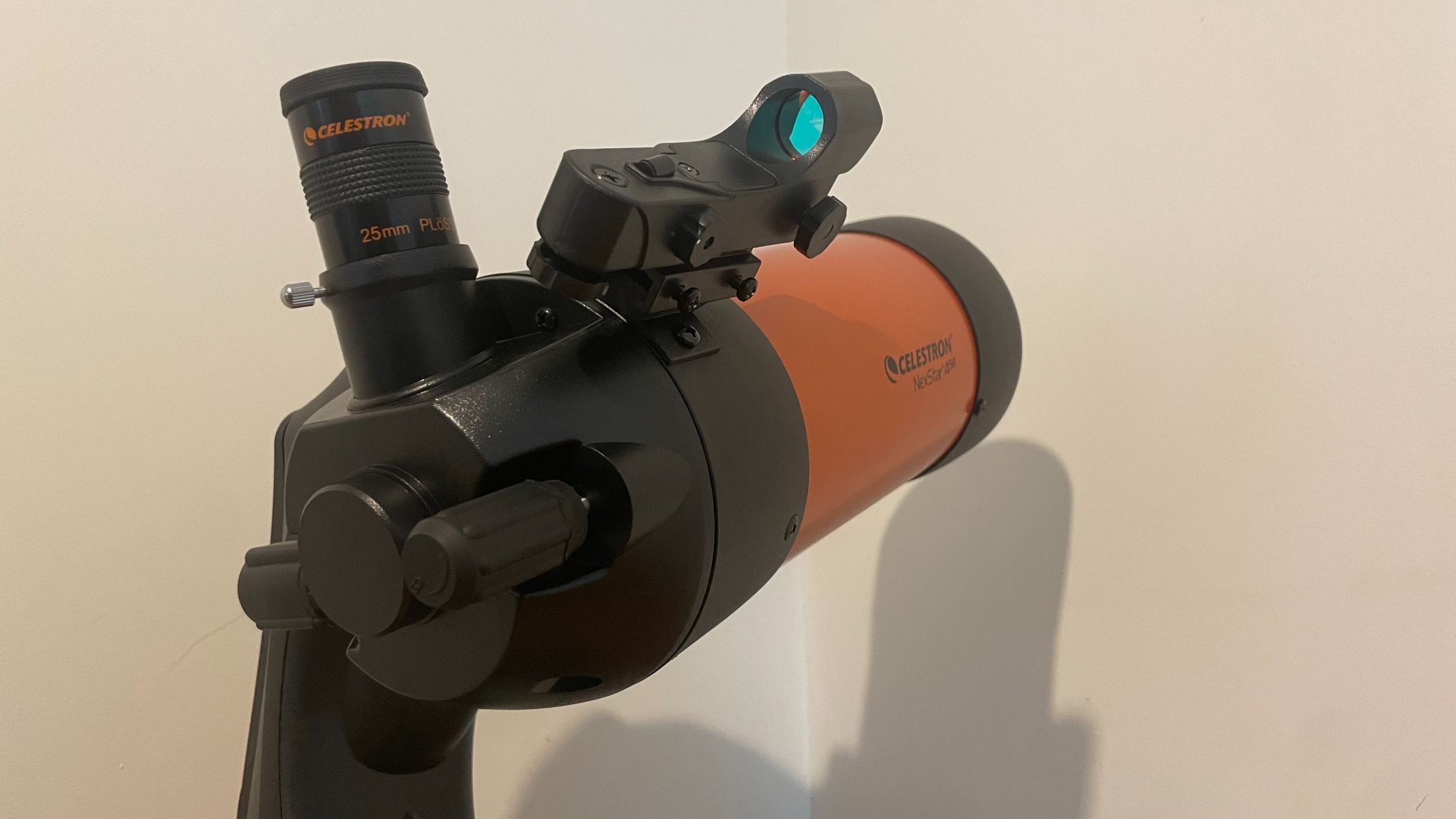
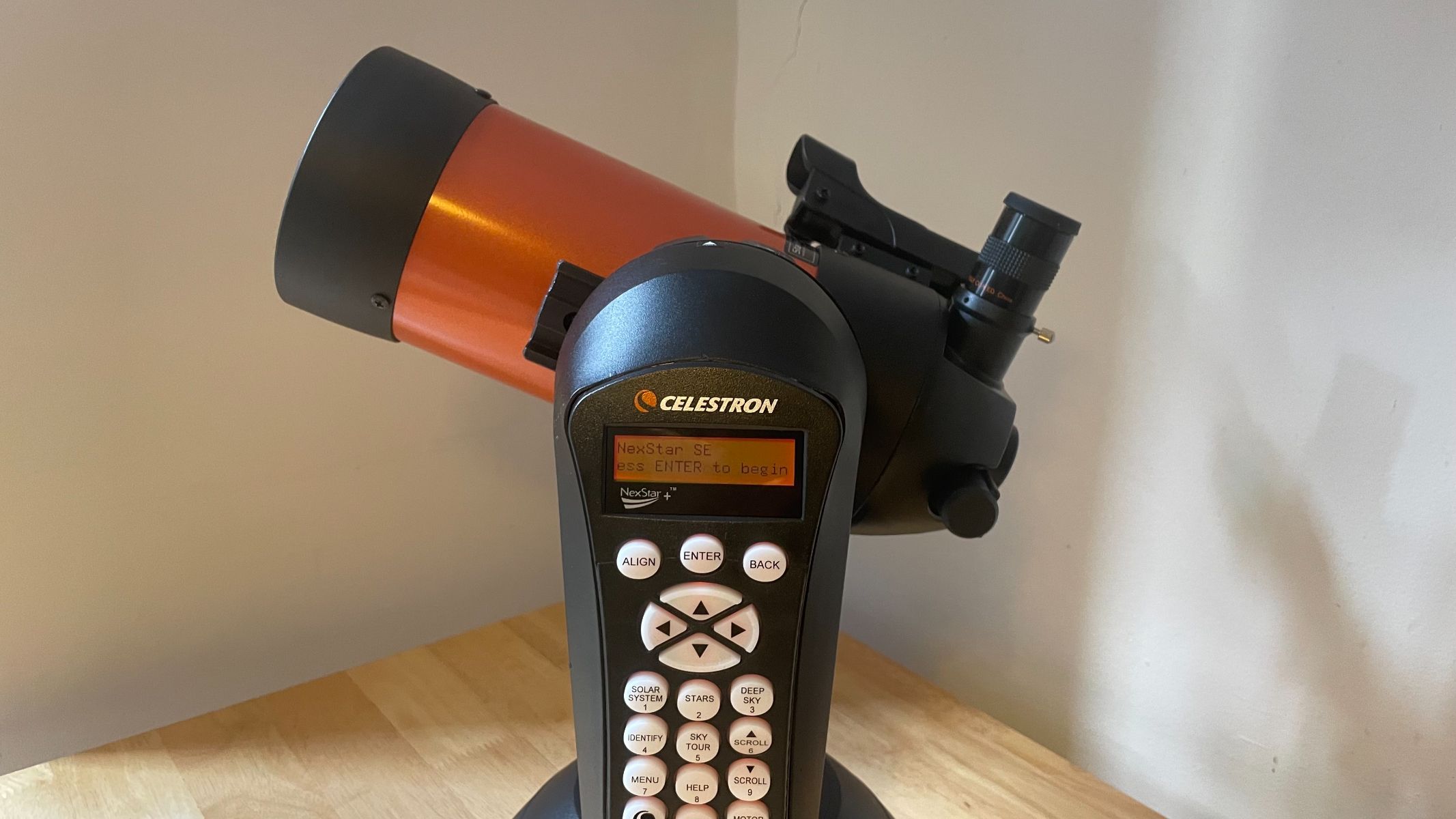
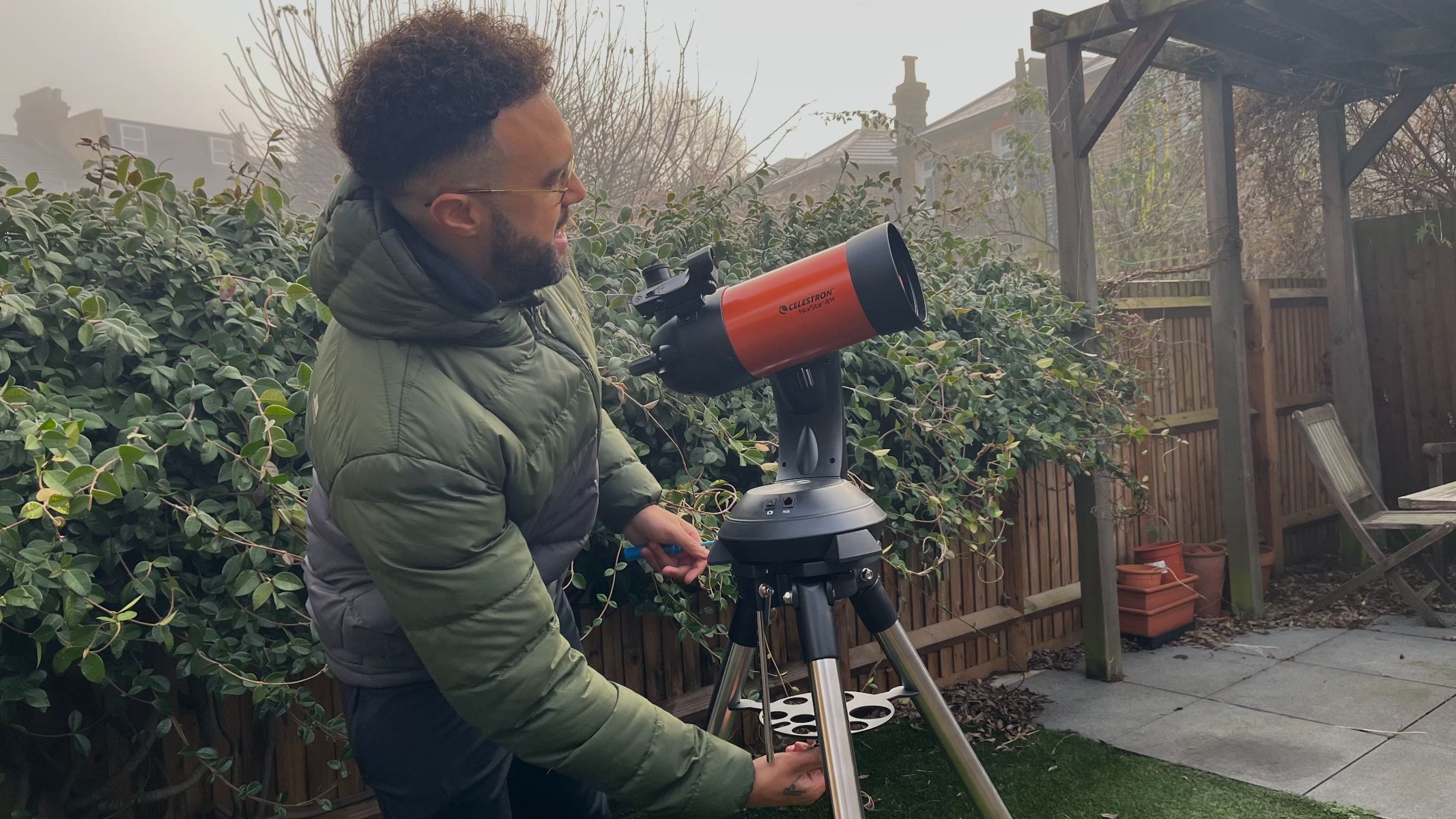
Specifications
Reasons to buy
Reasons to avoid
✅ It's your first telescope: This scope is easy to use and set up, making it perfect for beginner astronomers.
✅ You want GoTo technology: You can easily find and track specific celestial objects with little or no prior knowledge.
❌ You want to travel with it: This telescope isn't the most portable as the tripod doesn't fold down entirely.
🔎 Celestron NexStar 4SE: If you want to view the planets and bright objects in the sky quickly and effortlessly, the Celestron NexStar 4SE will certainly do the job. ★★★★
The Celestron NexStar 4SE is a fantastic choice for beginners thanks to its fully computerized mount. Celestron's SkyAlign technology identifies the current date and time as well as your location to auto-find various targets within the night sky at the push of a button, making it easy for newcomers to get to grips with stargazing.
This telescope has a 4-inch (102mm) aperture and a focal length of 1,325mm, enough to give sharp views of the planets and other bright sky objects. The downside is that this combination results in a fairly narrow field of view of only 1.2 degrees, which means you will struggle to fit bigger deep sky objects into the view. The NexStar 4SE comes with a 25mm Plossl eyepiece, but we think you'll get better results if you purchase an additional 32mm eyepiece and Barlow lens to make the most of the 241x highest useful magnification.
This telescope is very sturdy in design, which is reflected in its weight. At 23 lbs (10.4 kg) the NexStar 4SE is far from the lightest on this list, nor is it the most portable, as its accompanying tripod doesn't fold down completely.
Another thing to note about this telescope is how power-hungry it is; the mount tears through the 8xAA batteries required so quickly, we'd recommend using an external power source instead. Because of this, the NexStar 4SE is perhaps best suited for those who want to stargaze from their backyard rather than take it on the go.
- Read our full Celestron NexStar 4SE review
Attributes | Notes |
|---|---|
Design | Solid and sturdy build, signature orange colors. |
Performance | Great for observing the moon and planets. |
Functionality | Alignment correction can be tricky. |
Best budget telescope
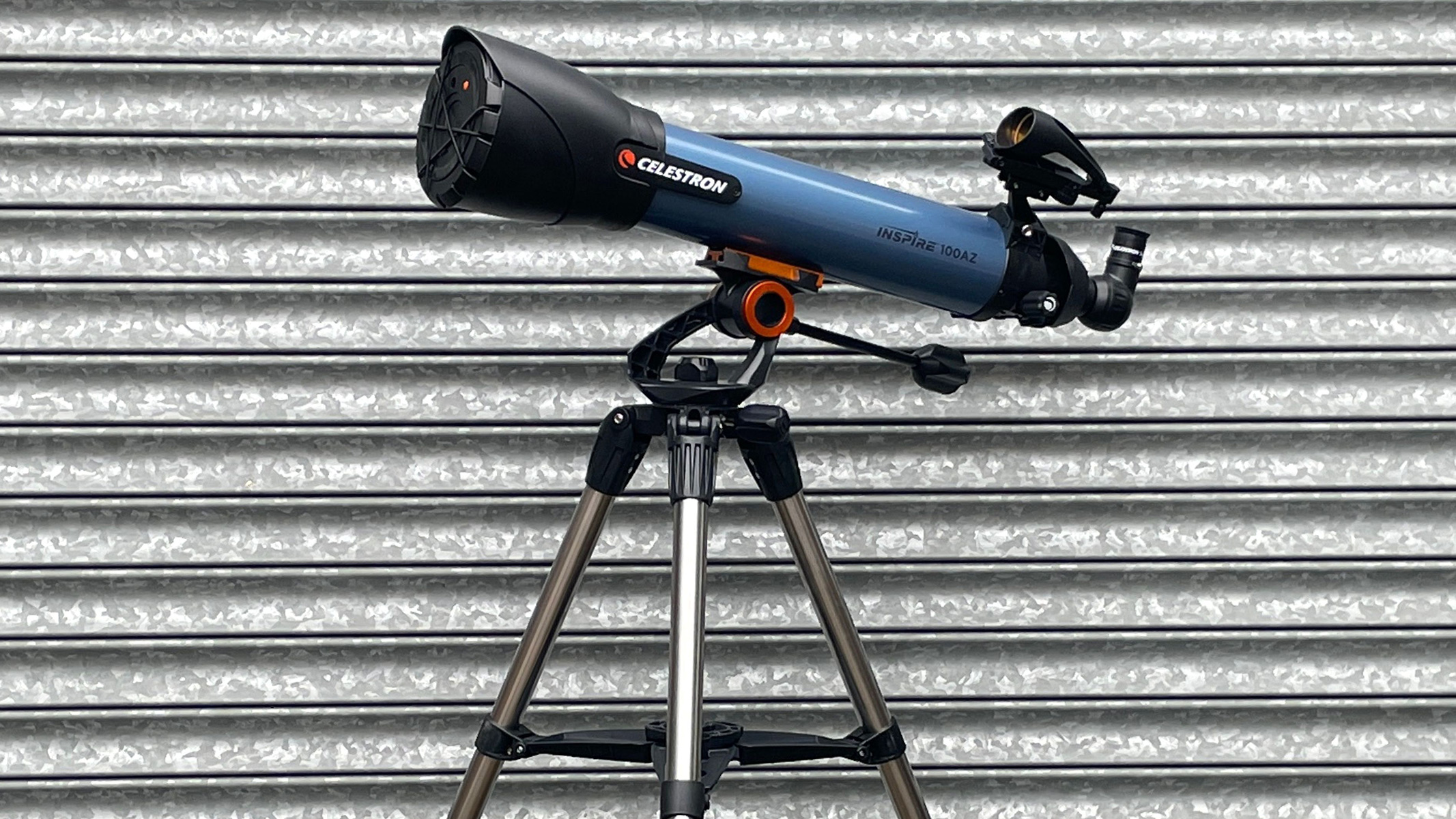
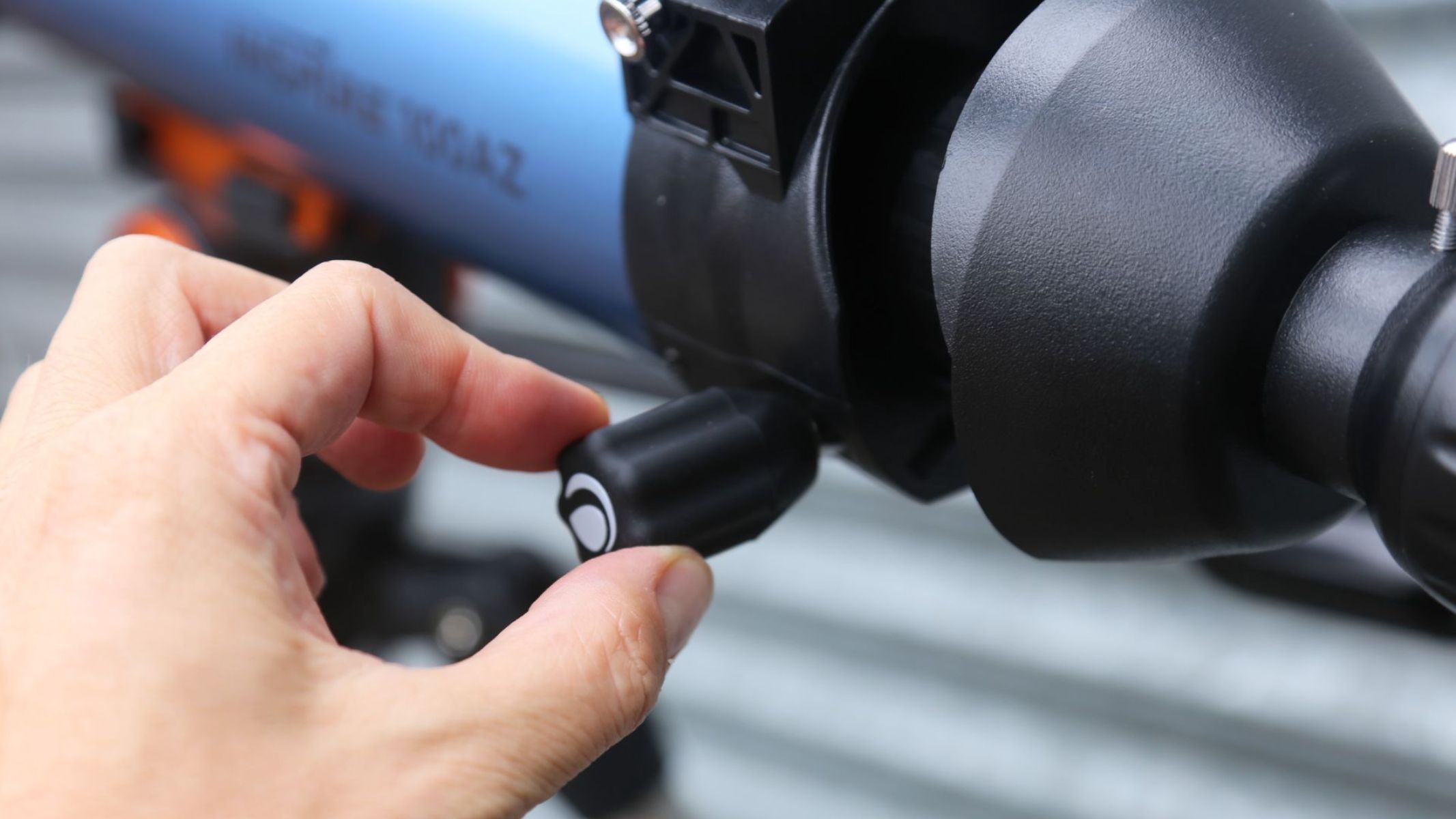
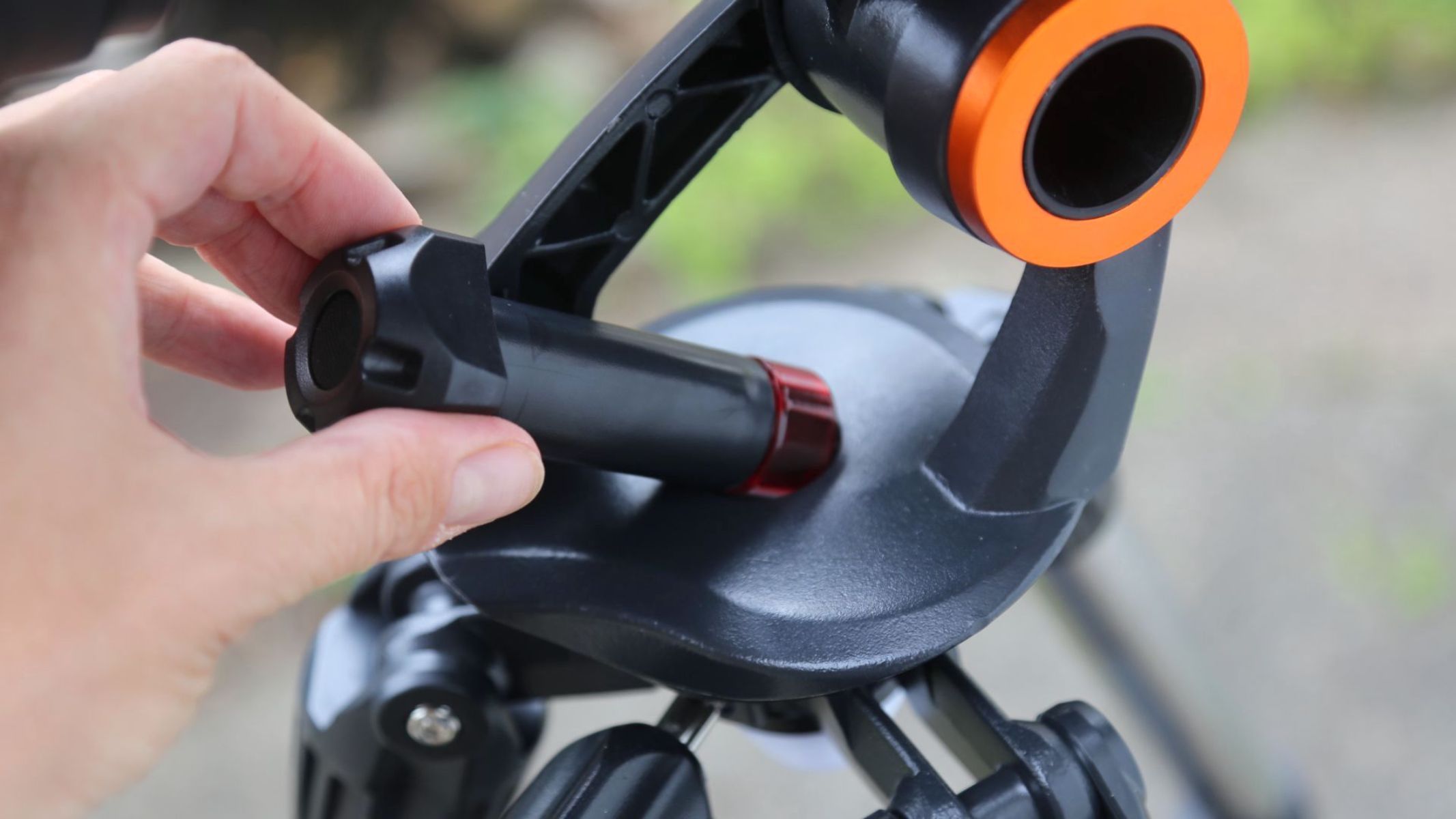
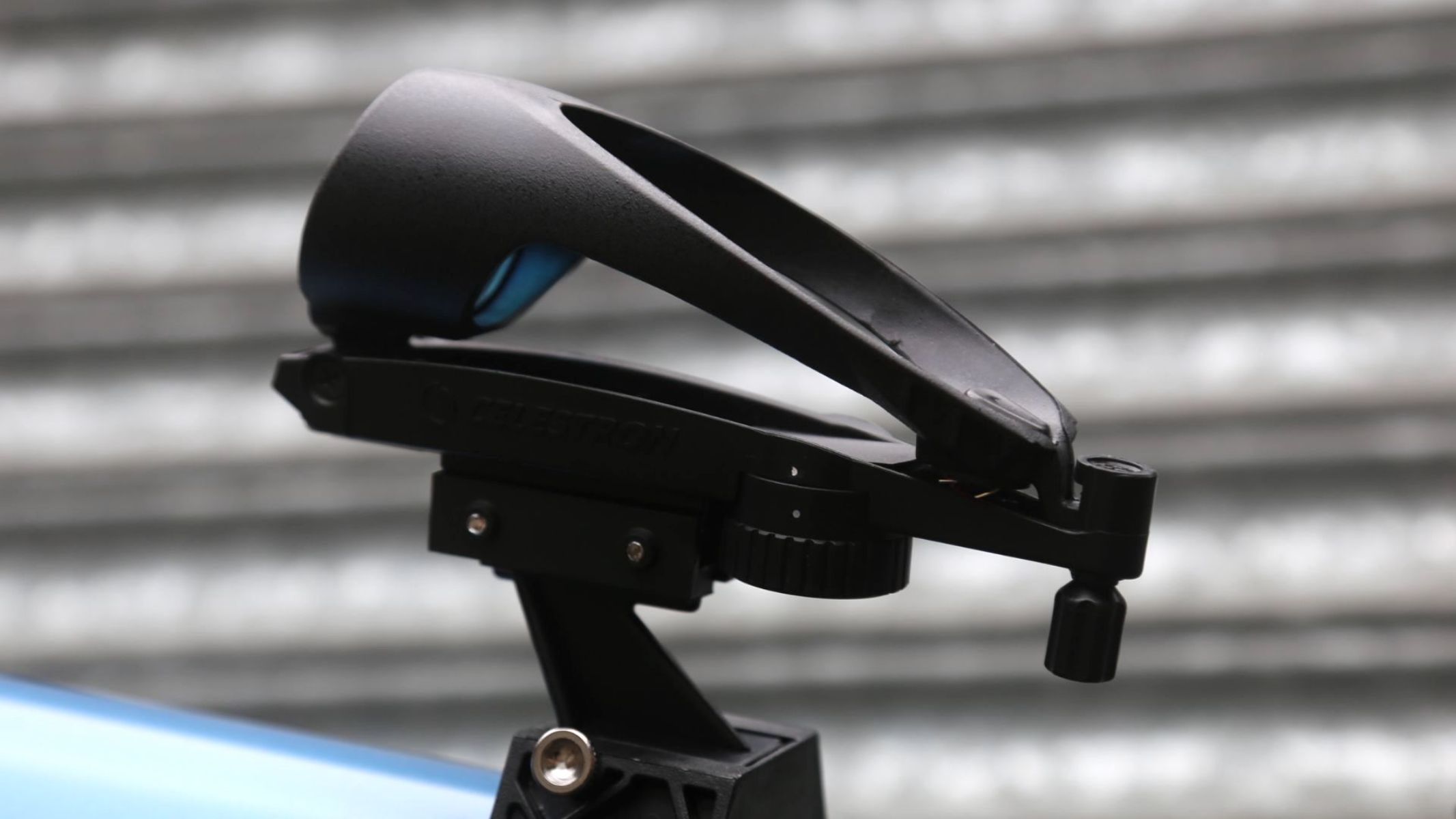
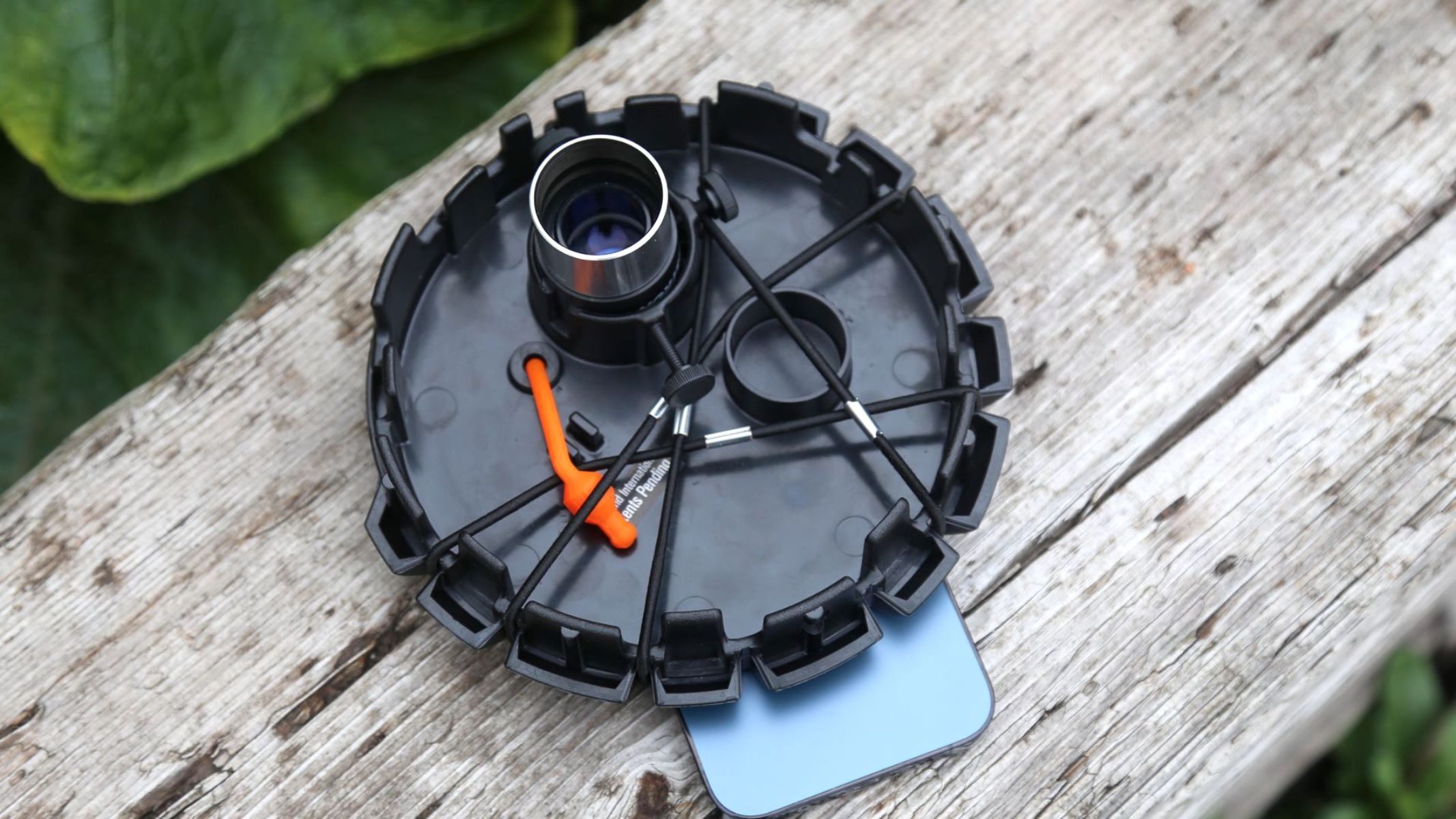
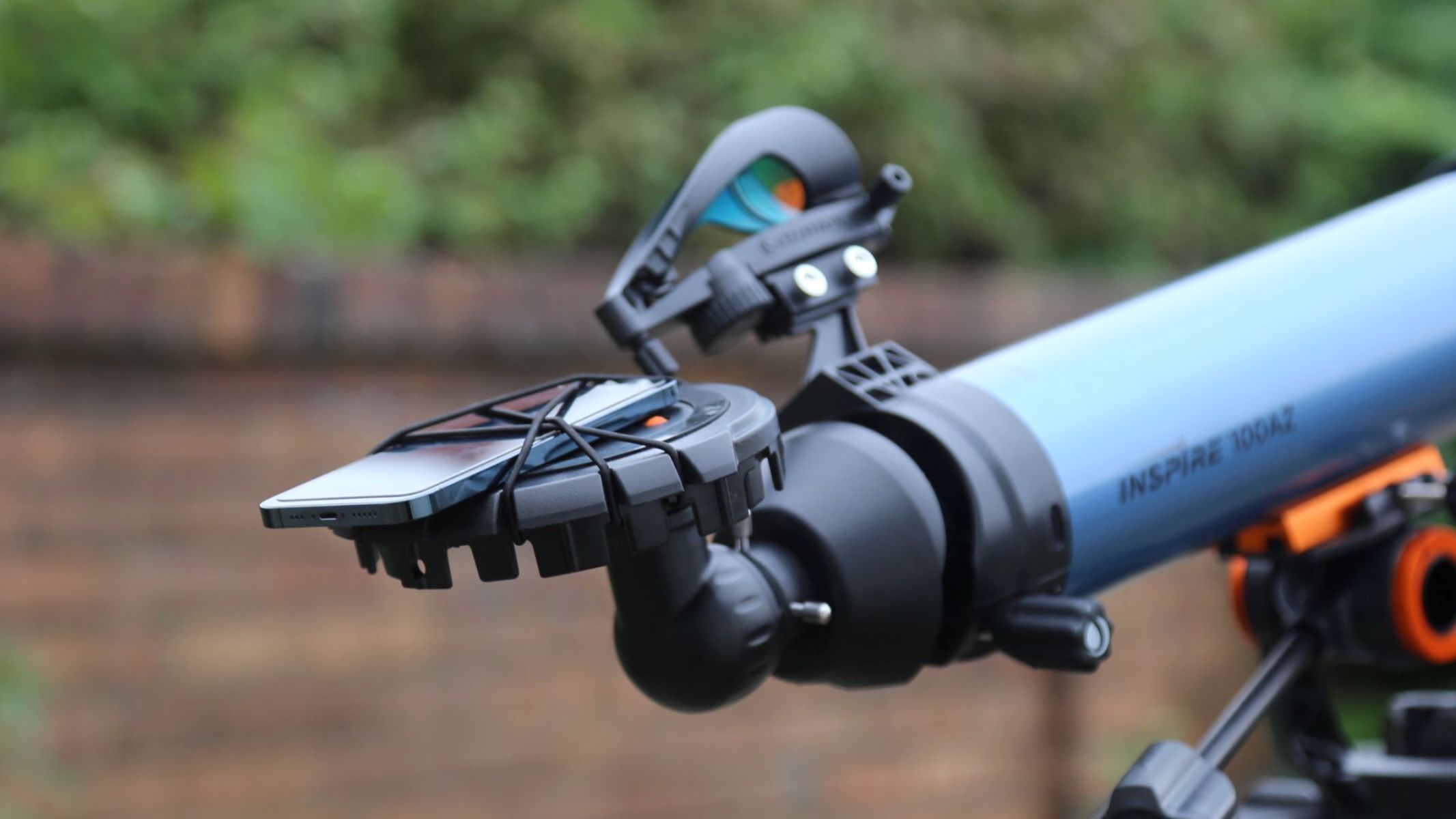
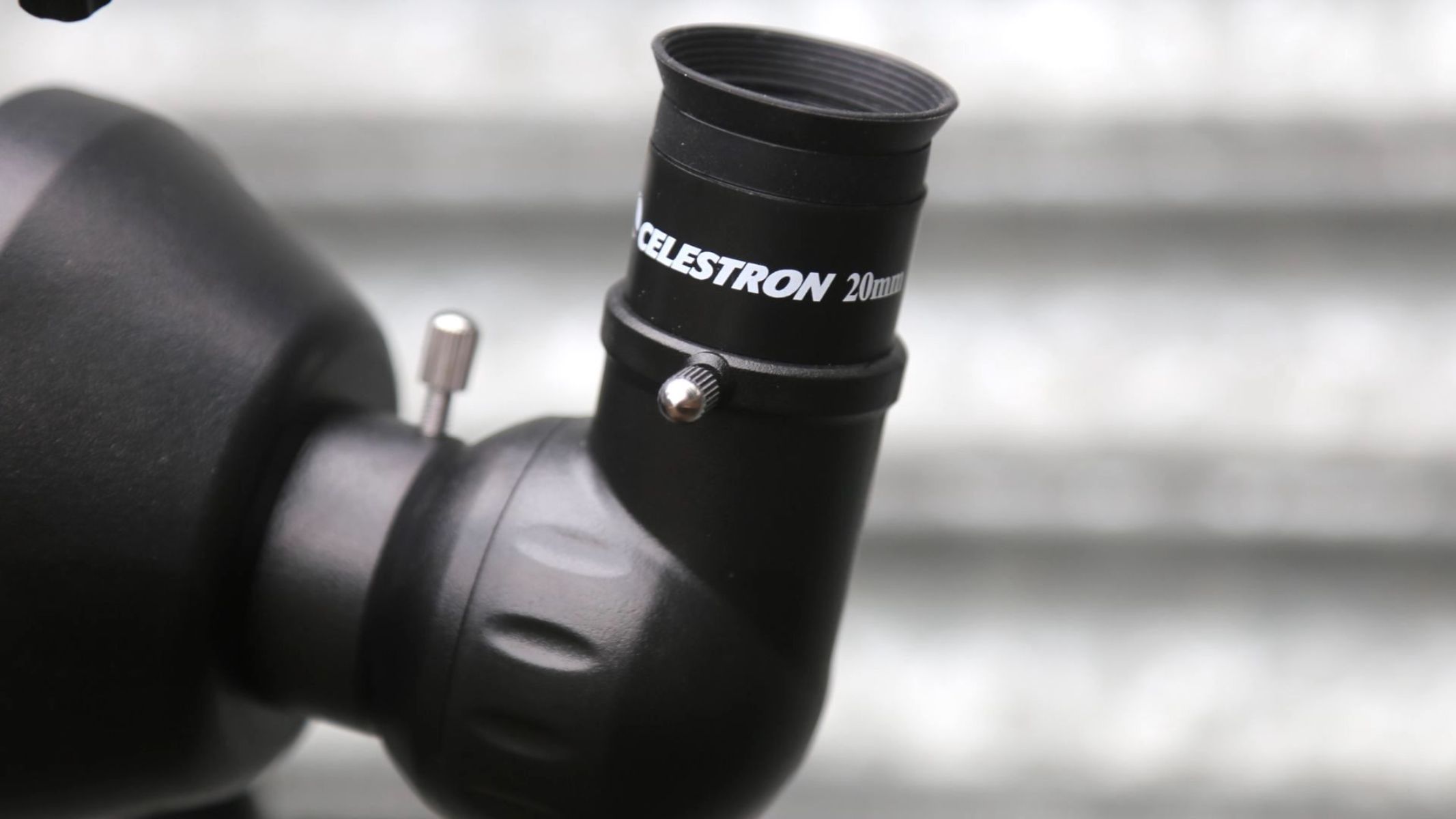
Specifications
Reasons to buy
Reasons to avoid
✅ You're a beginner: We found it easy to set up and take down, perfect for beginners.
✅ You want to take astro shots on your smartphone: The lens cap cleverly turns into a smartphone holder so you can capture images of the night sky.
❌ You aren't confident locating objects yourself: This telescope doesn't have GoTo technology, so you'll need to be able to locate specific celestial objects yourself (or with the help of a stargazing app).
❌ You want detailed views of deep sky objects: While this telescope can give great views of planets and the moon, objects further away may appear a little underwhelming.
🔎 Celestron Inspire 100az: Aimed at beginners and those looking to upgrade, this 4-inch refractor performs best with the moon and planets. It comes with a lens cap that converts to a smartphone holder for easy astrophotography. ★★★★
The Celestron Inspire 100AZ is a great choice for beginners. Its user-friendly features and sturdy build make it a breeze to use even for the uninitiated, and it's a relatively affordable option compared to other telescopes in this guide.
An achromatic refractor with a 4-inch/100mm aperture and a reasonably short focal length of 660mm, the Celestron Inspire 100AZ is designed to be used at home to view planets, the moon and deep sky objects. It's perched on a simple altazimuth mount that moves side to side and up and down, with a panhandle to lock it in the exact position you want.
The 100mm aperture gathers a significant amount of light, allowing clear observations of faint celestial objects like nebulas and galaxies. Moreover, its long focal length provides substantial magnification for detailed views of planets and other nearby objects.
During our Celestron Inspire 100AZ review, we noticed a small amount of false color (purple color fringing), and a slight blurring in the field of view. The latter is easily resolved by investing in one of the best eyepieces to make the most of the Inspire 100AZ's optical system. The slight amount of false color shouldn't be a dealbreaker for most, unless you are particularly keen on getting completely accurate colors.
The Inspire 100AZ telescope comes with various accessories including two eyepieces, a red LED flashlight to maintain night vision, an accessory tray and a StarPointer Pro finderscope for locating celestial objects. We loved that the lens cap turns into a smartphone adapter, so you can take astro shots with your phone.
- Read our full Celestron Inspire 100AZ review
Attributes | Notes |
|---|---|
Design | Fairly lightweight. |
Performance | Excels with lunar views. |
Functionality | Easy to set up and take down. |
Best value for enthusiasts
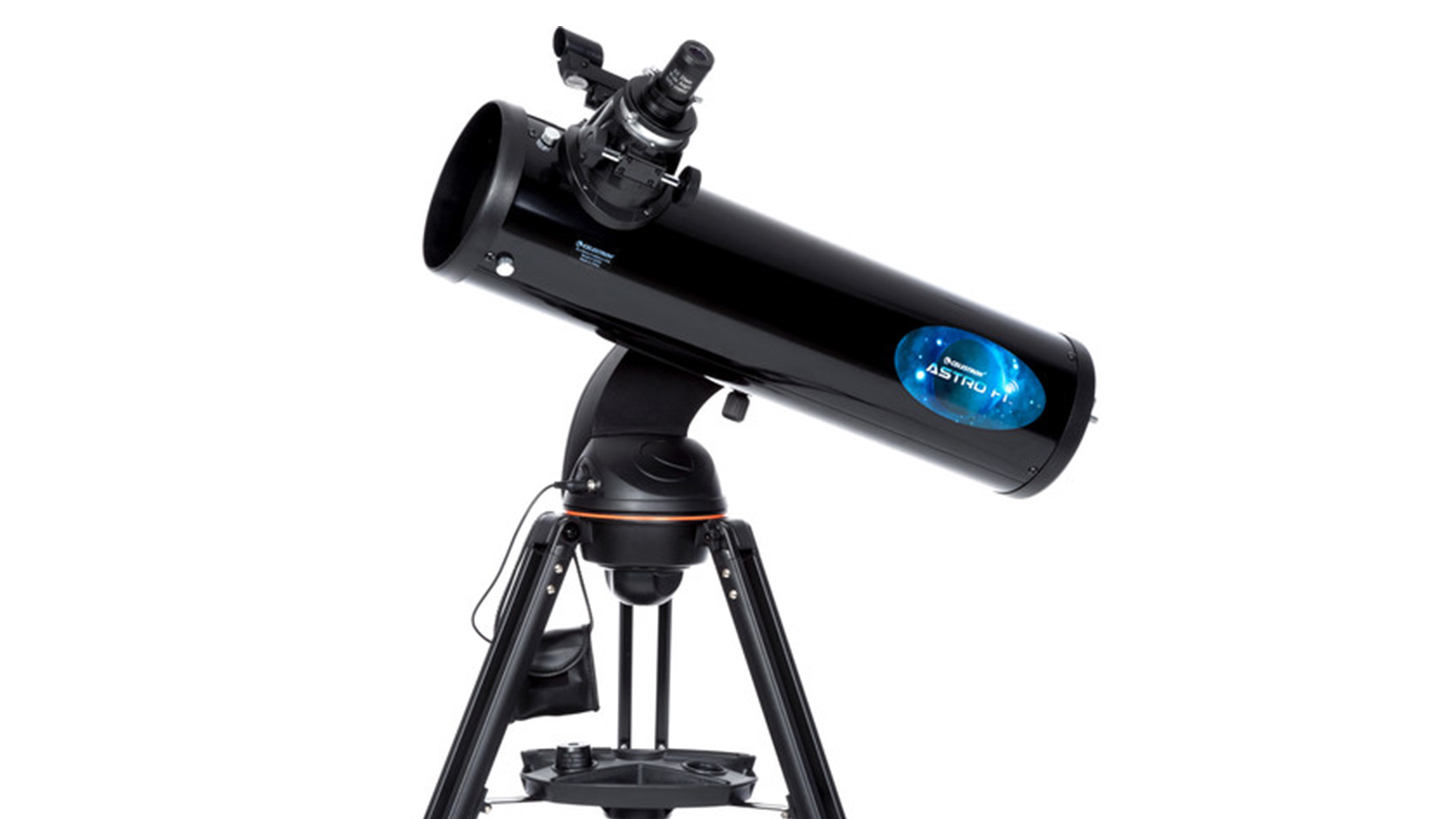
Specifications
Reasons to buy
Reasons to avoid
✅ You want a beginner-friendly, grab & go, easy-to-use telescope: We thought this was a great entry-level telescope that can find targets at the touch of a button and is great for on-the-go observations.
❌ You want a 'traditional' telescope: We found this telescope is completely useless without the app, so if you want a more traditional telescope without much of the newer technology, look elsewhere.
🔎 Celestron Astro Fi 130: A good telescope at an exceptionally good price, it has everything you'd need if you're just starting out, although we would recommend upgrading some of the pieces included. It can lose charge quickly in cold conditions, though, so consider buying an additional power source. ★★★½
Celestron's Astro Fi 130 is a very capable entry-level telescope with an affordable price tag. This well-constructed telescope consists of a Newtonian reflector and a sturdy aluminum tripod, 10mm and 25mm Kellner eyepieces offering 65x and 26x magnification, and a red dot finder.
We'd strongly recommend purchasing some mid-range Plossl eyepieces to get the very best out of this scope. During our Celestron Astro Fi 130 review, we also noted that its batteries can be quick to drain in cold weather, so you might want to consider investing in 12V rechargeable batteries.
This telescope is a great choice for beginners; it has everything they need to get started on their stargazing journey. The SkyAlign technology doesn't require prior knowledge of the night sky to get ready for viewing, and the Celestron SkyPortal app makes it easy to control the scope via your smartphone or tablet. The app can even recommend celestial objects to view and guide the computerized mount to them.
The optics on the Astro Fi 130 allow for good views of the moon, offering enough magnification to see the craters and rilles on the lunar surface. Venus and Mars are also easy to pick out, and we were even able to catch a glimpse of the Andromeda Galaxy.
- Read our full Celestron Astro Fi 130 review
Attributes | Notes |
|---|---|
Design | Very sturdy build with well constructed tube and tripod. |
Performance | Makes use of SkyAlign technology for easy alignment. |
Functionality | Great for lunar and planetary observing, but some views are fuzzy. |
Best premium
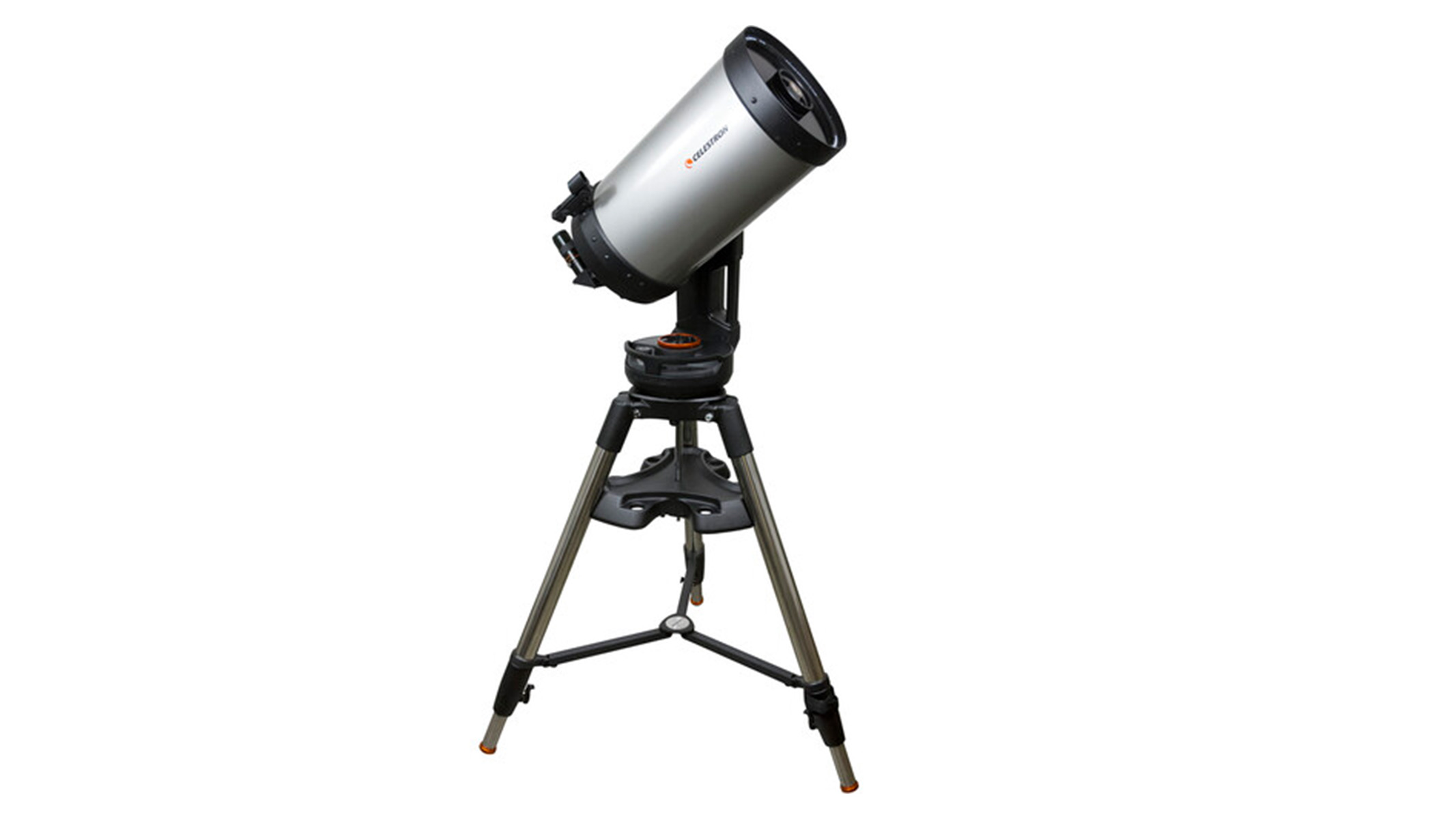
Celestron NexStar Evolution 9.25
Our expert review:
Specifications
Reasons to buy
Reasons to avoid
✅ You want to view a wide range of subjects: This scope has a large aperture which enables clear and detailed views of a wide range of celestial objects, including planets, deep-sky objects and nebulas.
✅ You're an experienced skywatcher: Although its easy setup is a dream for beginners, this scope is best suited for more advanced, passionate astronomers who want a full view of the universe.
❌ You want something portable: Portability isn't one of the Evolution 9.25's strengths, so it's best used for backyard gazing.
🔎 Celestron NexStar Evolution 9.25: A fantastic telescope best suited to experienced skywatchers, with a price tag to match its premium features. It's not the easiest to transport, but we think it's one of the best GoTo telescopes you can buy ★★★★½
The Celestron NexStar Evolution 9.25 is an outstanding GoTo scope that provides breath-taking views of the night sky. Its Schmidt-Cassegrain optical tube boasts a generous aperture of 235mm and a sturdy single-fork arm mount for stability and precision. The motorized mount features a rechargeable lithium-ion battery that allows for an impressive 10 hours of uninterrupted stargazing.
The NexStar Evolution 9.25 comes with a good selection of accessories including a red dot finderscope, star diagonal, accessory tray, international AC adapter, hand control and two eyepieces (13mm and 40mm).
Unlike the previous option in this list, the NexStar Evolution 9.25 is a great pick for more experienced skywatchers looking for a top-of-the-range telescope. It's an investment, sure, but it's impressively designed and boasts quality features.
Astrophotographers may also find this telescope and its motorized mount to their liking as it can track the movement of celestial objects. You can easily control the NexStar Evolution 9.25 through the free Celestron SkyPortal app, which removes the need for a controller and frees up your hands during shoots.
While it boasts an impressive design, this telescope is on the heavier side. As such, it's definitely not the most portable option, and we think it's best suited for backyard stargazing. Nevertheless, its robust construction and excellent features more than make up for this if you're not looking for a telescope to take on the go.
- Grab a bargain over on our Celestron Binocular and Telescope deals page
Attributes | Notes |
|---|---|
Design | A bit bulky and tricky to transport. |
Performance | Crisp views with no defects. |
Functionality | Motorized mount a good choice for astrophotography. |
Best for astrophotography
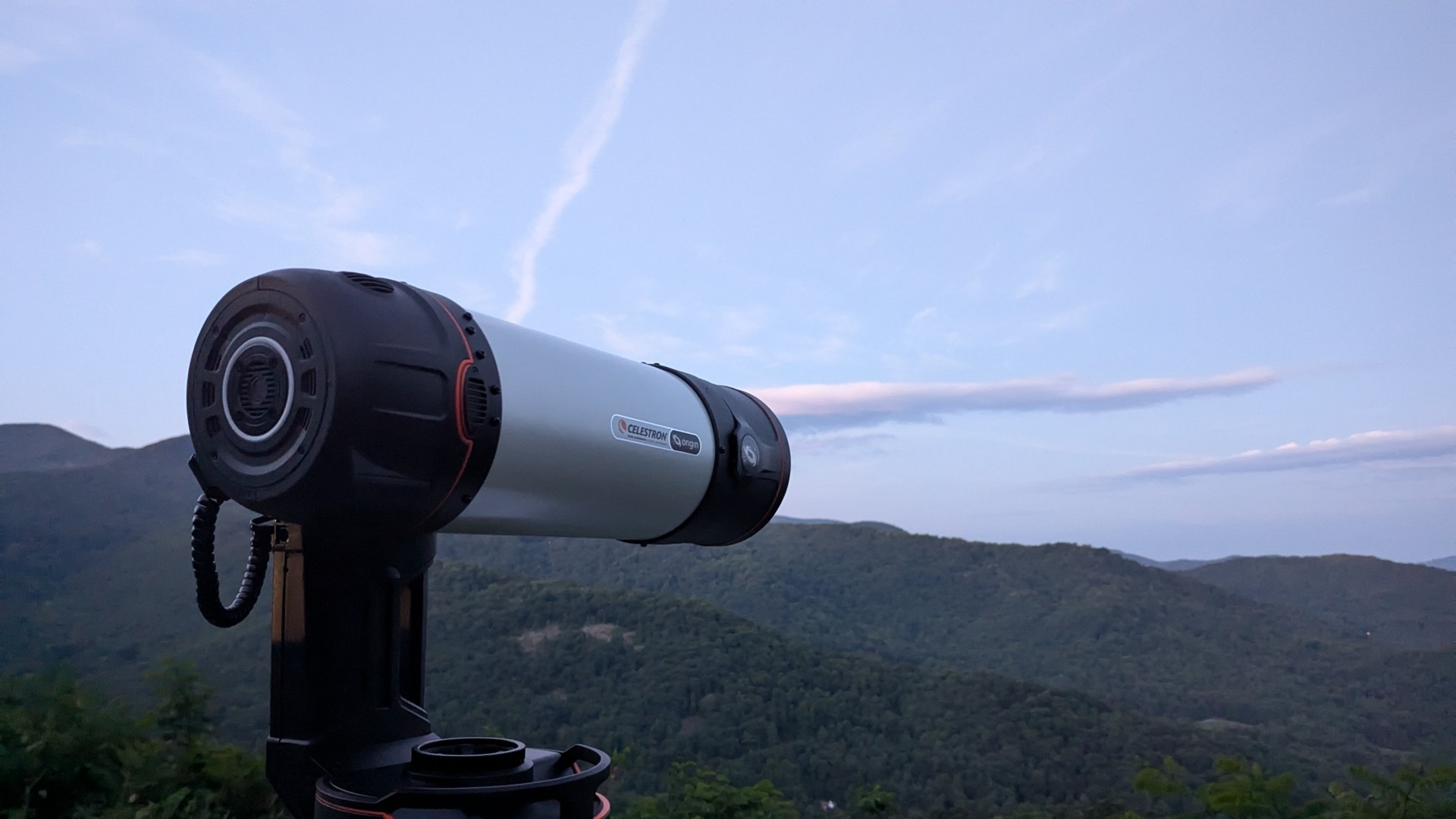
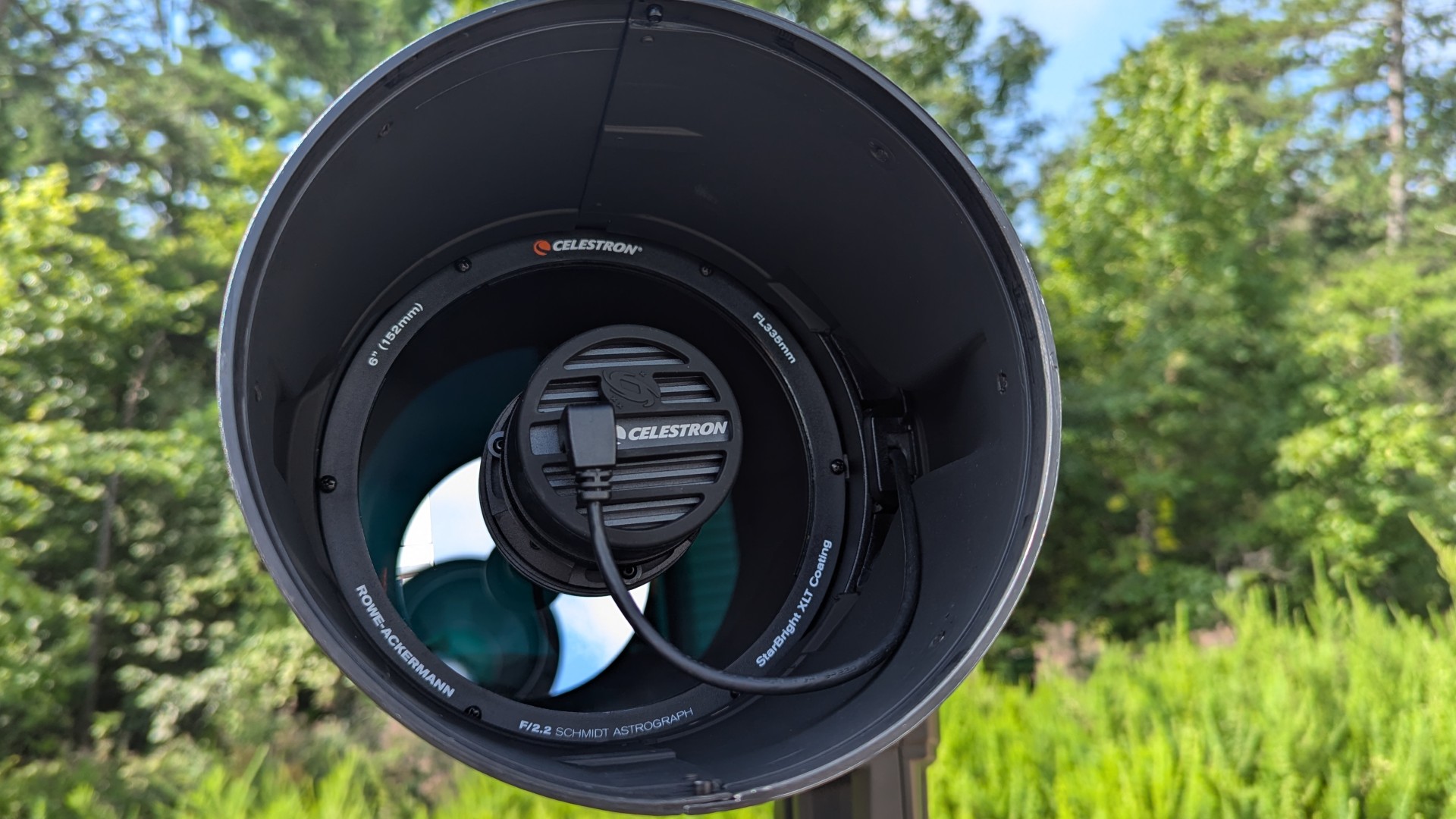
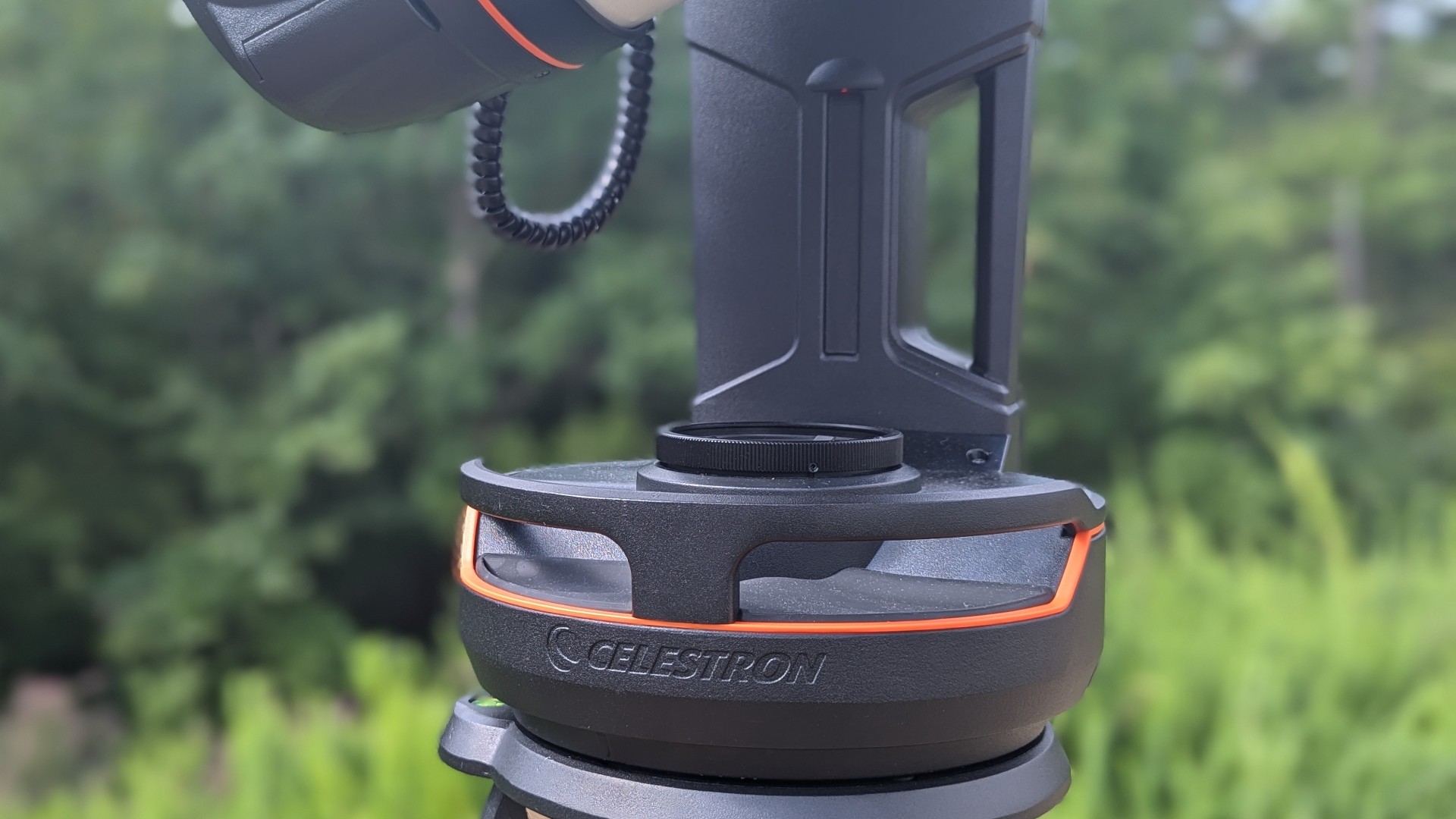
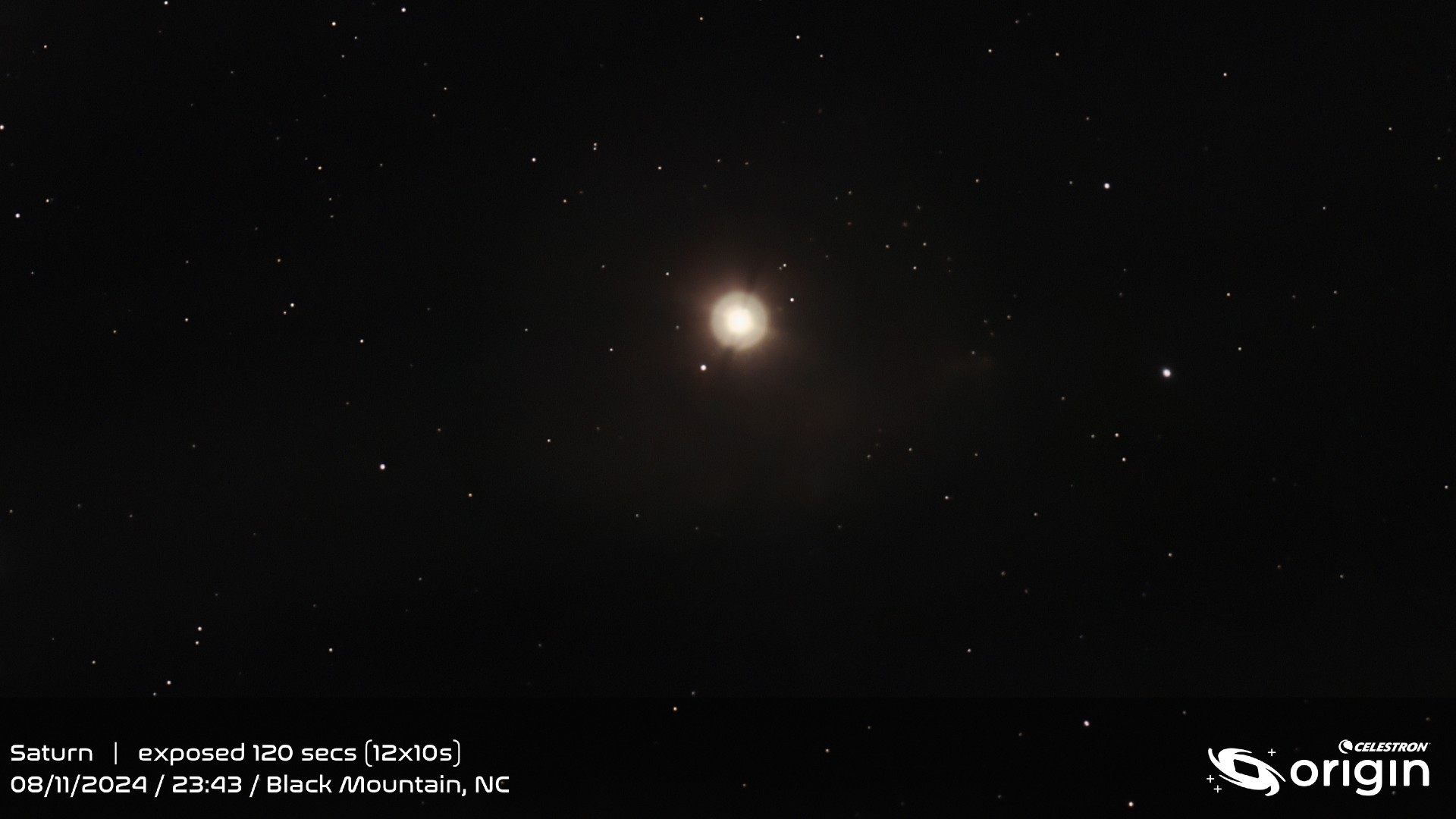
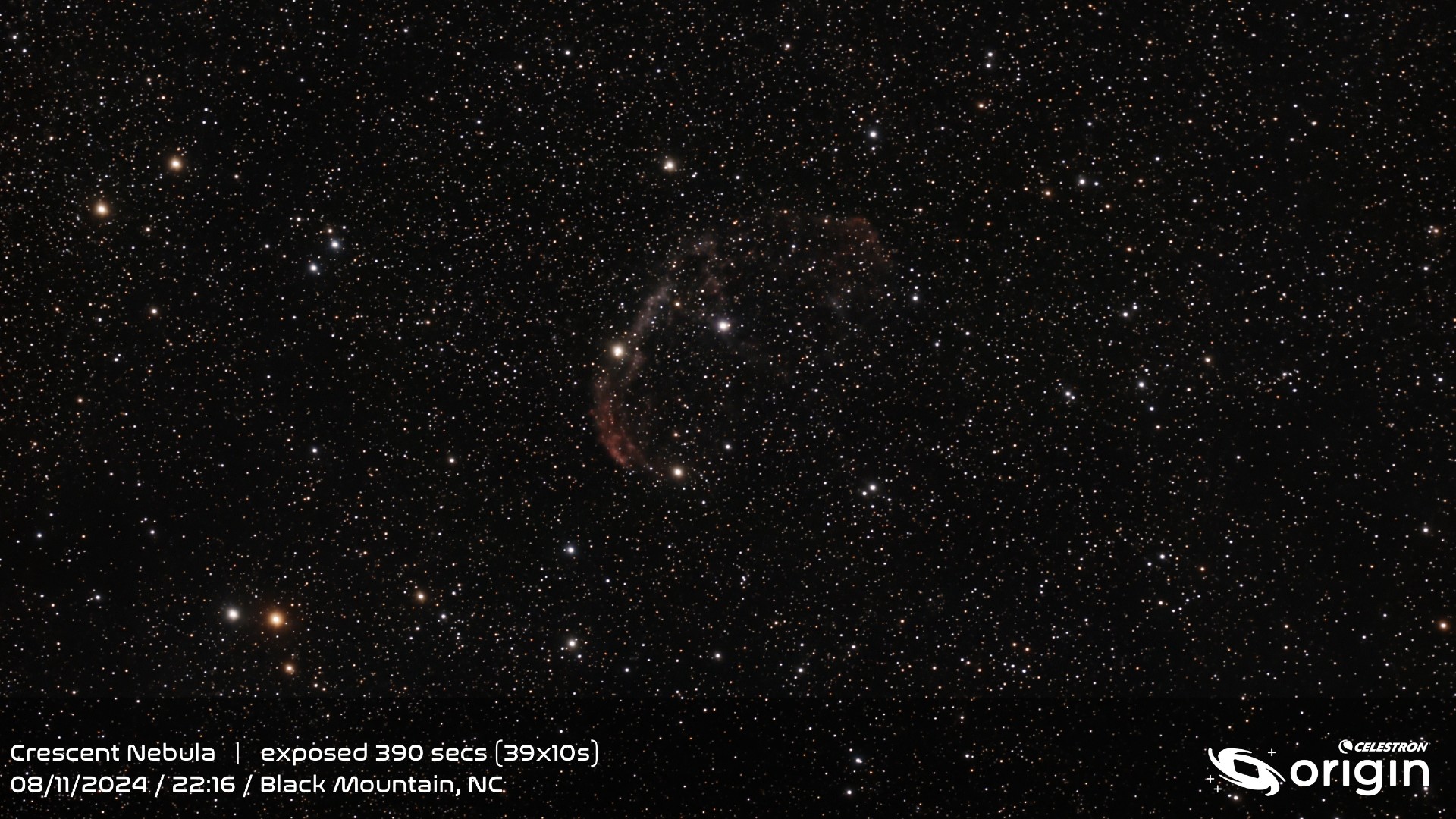
Specifications
Reasons to buy
Reasons to avoid
✅ You want an automated telescope: Focusing, tracking, finding targets and stacking processed images is all automatic with this one.
✅ You want to take deep sky images: The Origin can do this and more in just a few minutes, with little pre-knowledge required.
❌ You want a traditional telescope: This one doesn't have an eyepiece and only gives you views of the night sky on a mobile device.
❌ You're on a budget: At around $4,000, this telescope is on the pricier side.
🔎 Celestron Origin Intelligent Home Observatory: This (pricey) smart telescope can do every part of stargazing autonomously, and produces beautiful photos of the night sky in seconds. ★★★★½
The Celestron Origin Intelligent Home Observatory is a smart telescope unlike any other, in that it doesn't come with an eyepiece and has a built-in camera instead. Essentially, it allows you to view and image the night sky on a mobile device rather than through the telescope directly.
The result is beautiful, clear images of deep sky objects and distant galaxies in a matter of seconds, even in areas with light pollution. During our Celestron Origin review, we found that within seconds of selecting an object in the accompanying app, the telescope could capture crystal clear images of nebulas with almost no noise. We liked the fact the 'snapshot' mode allows you to manually adjust settings to take single photos, too. That said, we didn't have much luck imaging planets, though it may be that we needed more time with the telescope to get to grips with it.
Beginners will love this telescope thanks to the quick and easy setup. It can also handle every part of stargazing automatically, from focusing to tracking targets, which means you can start using it with no previous astronomy experience. The Origin app is easy to use and makes taking images effortless. The 'Planetarium View' shows users a representation of the night sky, and tapping on an object gives you the option to slew the telescope to it directly.
The Celestron Origin looks like a standard telescope, but as mentioned above, it doesn't have an eyepiece. It's also on the heavy side, so it's not one to buy if you're looking for a telescope to take on the go. The nearly $4,000 price tag might also put off some potential buyers, but if you have the funds, we'd highly recommend this smart telescope.
- Read our full Celestron Origin Intelligent Home Observatory review
Attributes | Notes |
|---|---|
Design | Bulky, but full of useful features on the mount. |
Performance | Beautiful, clear photos of deep sky objects. |
Functionality | Motorized mount, but not a traditional telescope with an eyepiece. |
Best motorized telescope
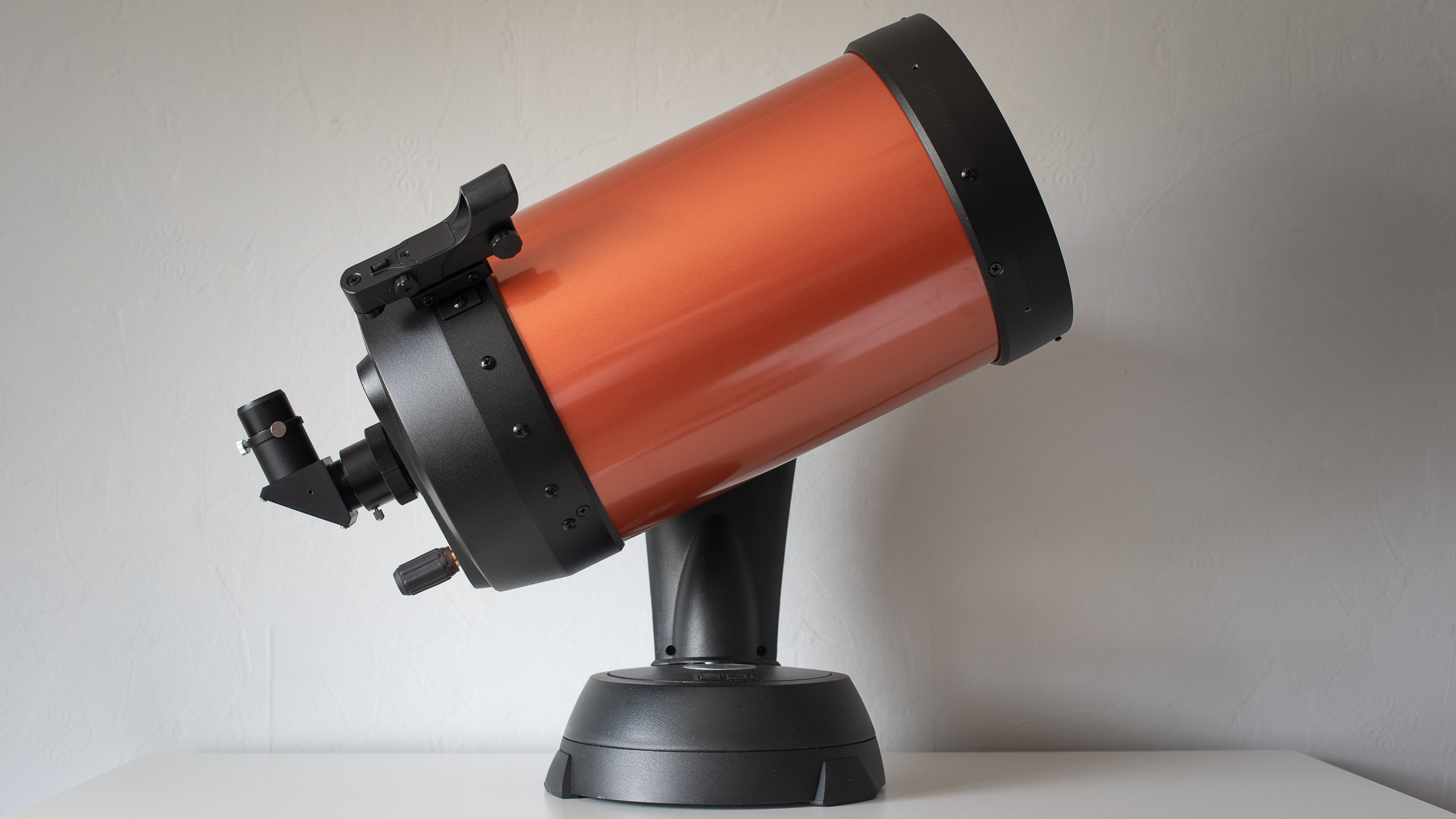
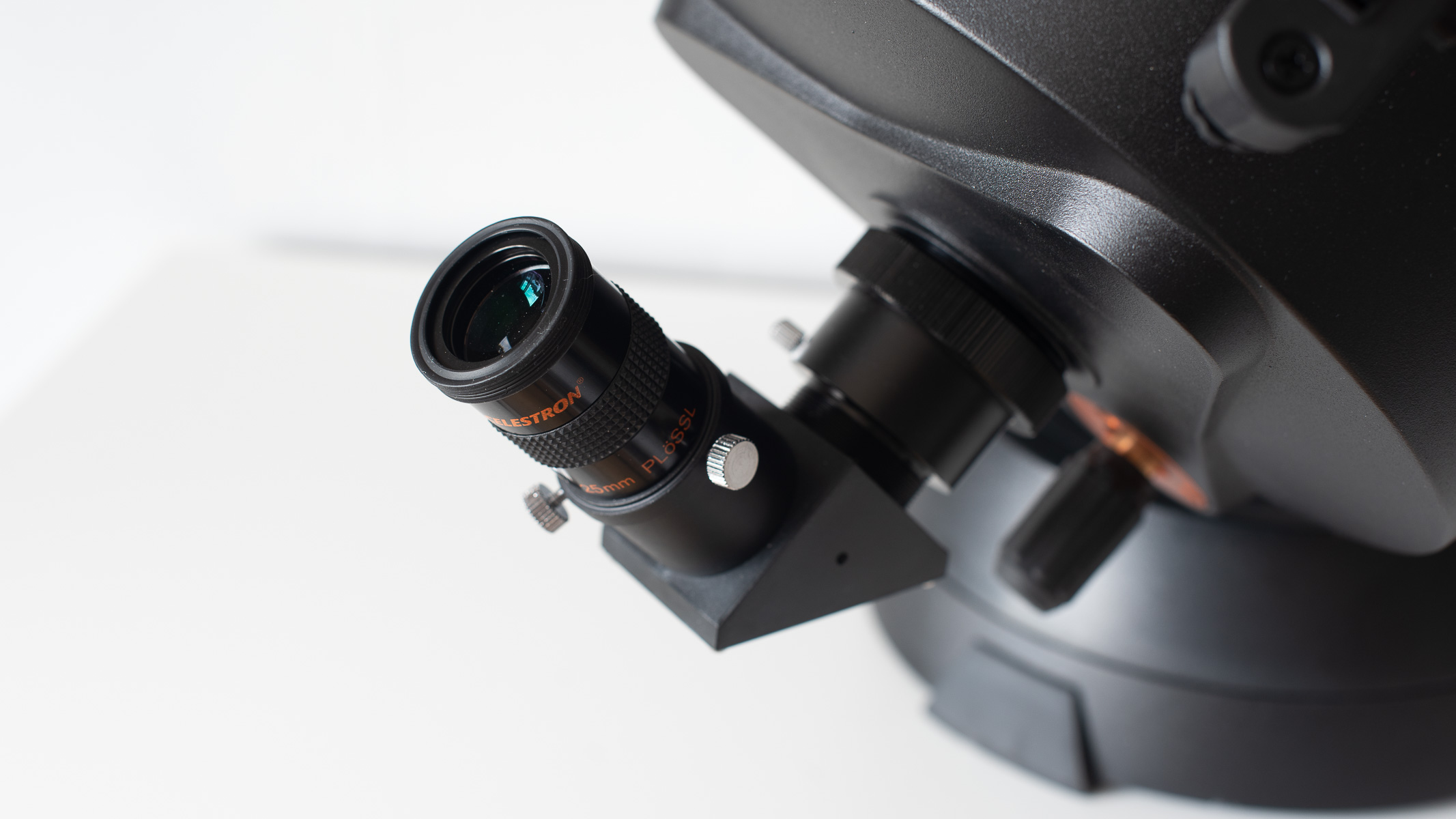
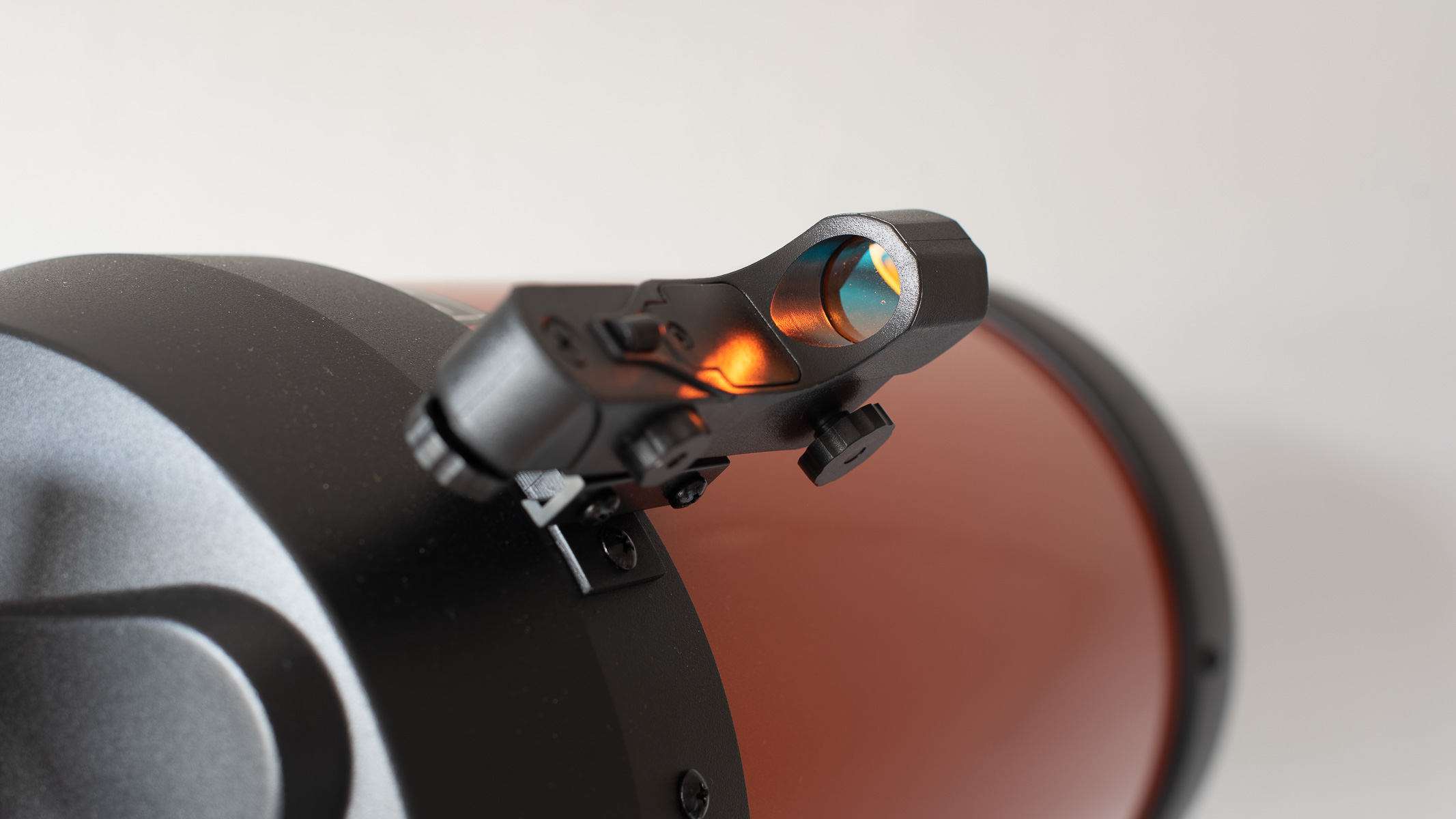
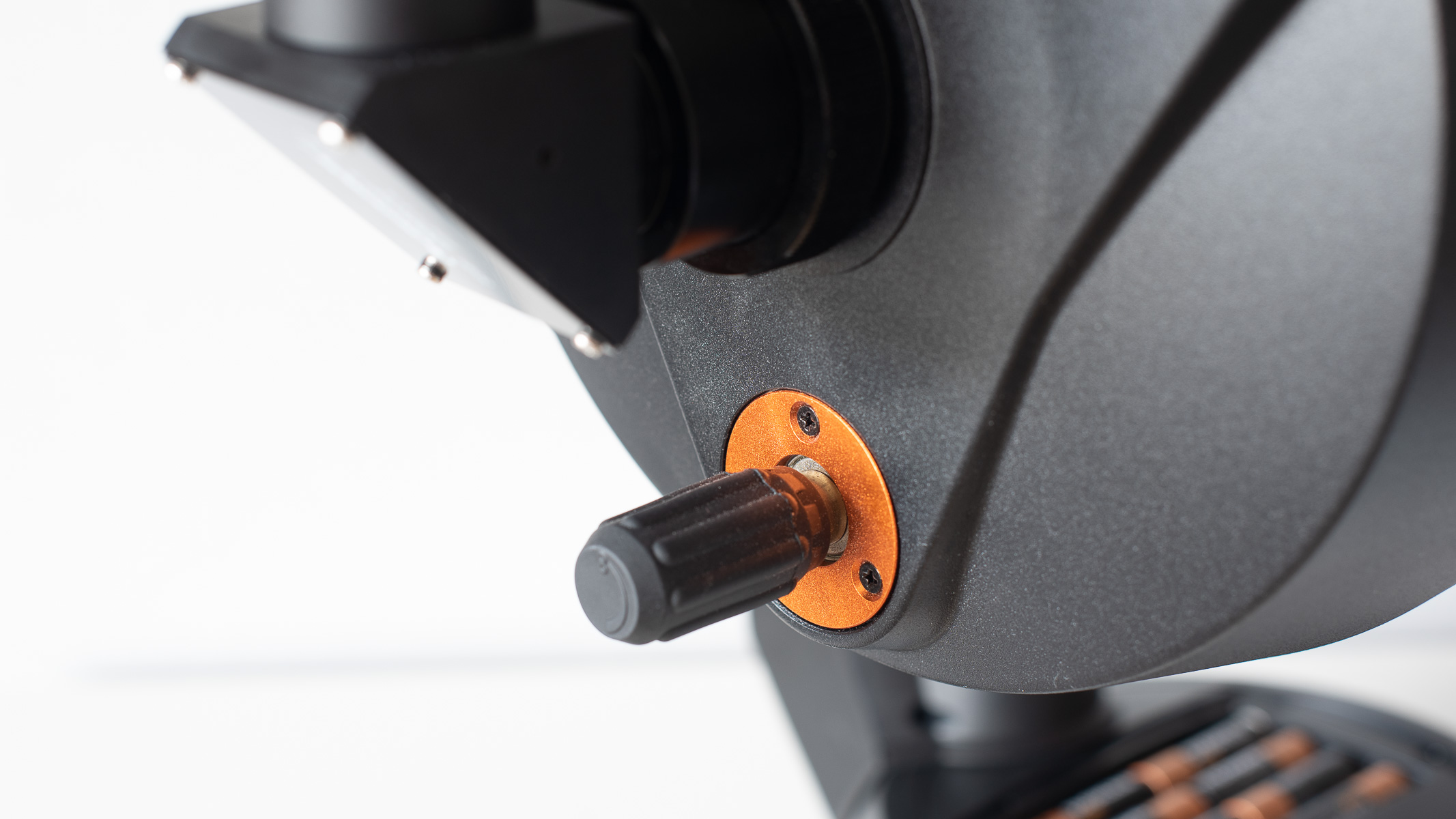
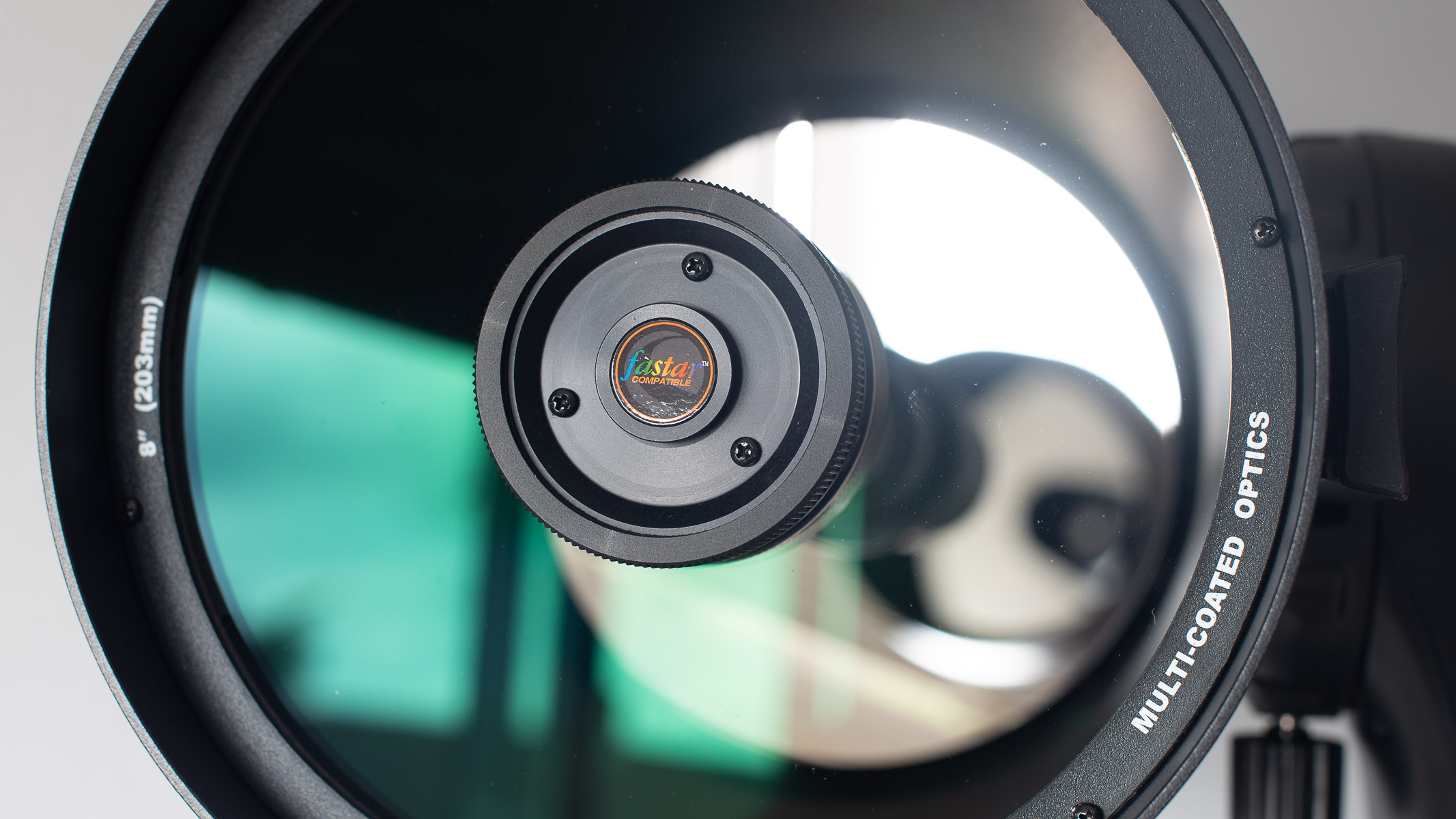

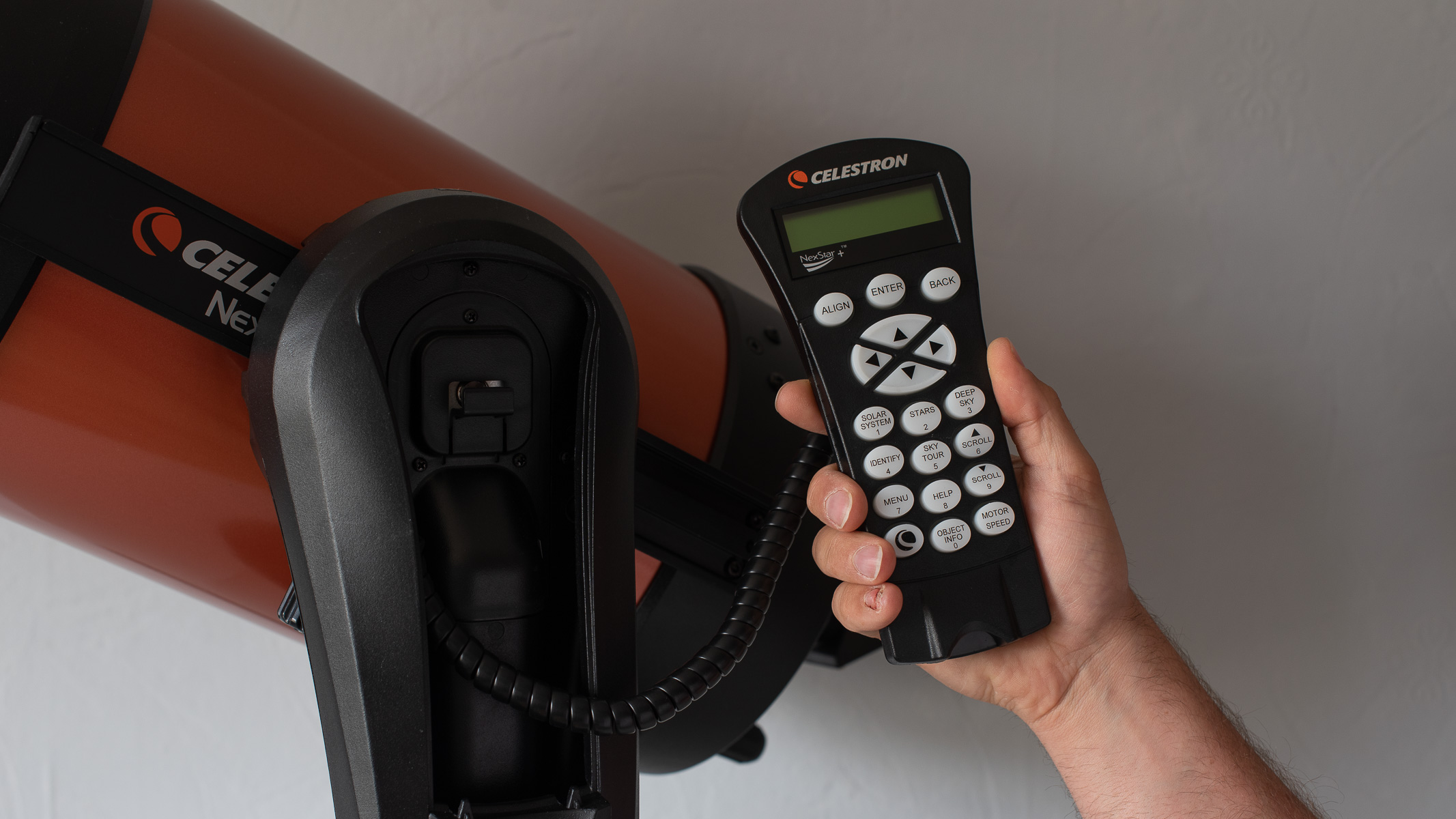
Specifications
Reasons to buy
Reasons to avoid
✅ You're looking for a long-term telescope: There's no question that this telescope is pricey, but it's one that will last you for decades — it's not called 'The World's Most Beloved Telescope' for nothing.
✅ You want to use it for astrophotography: Thanks to the smooth and accurate tracking, this scope is a great option for taking stunning astro images of deep sky objects.
❌ You're on a budget: Although this is definitely worth the money and we'd recommend it if your budget can stretch to it, it is very pricey. If you're on a budget or you're new to the medium, there are plenty of cheaper alternatives that will be more than good enough.
🔎 Celestron NexStar 8SE: An outstanding telescope with incredible optics that would suit a beginner, intermediate or advanced astronomer. It's great for astrophotography and gives beautifully bright and detailed views. Our only fault with it is that it can price out beginners. ★★★★½
The Celestron NexStar 8SE is one of the most flexible telescopes we've ever reviewed, and an ideal scope to learn and grow with. It's beginner-friendly, requiring no prior knowledge of the night sky to use, yet its stunning optics will be enough to satisfy intermediate to advanced astronomers as well. The only downside is the price, but if you have the funds, then we have no qualms about recommending it.
The Celestron SkyAlign app helps you to align the scope using three bright stars, after which the entire operation is automated. You simply push the buttons on the handheld remote to select your desired celestial object and the motorized mount will slew the telescope towards your target. You can select from a range of objects categorized under 'solar system', 'stars' or 'deep sky', or you can select 'sky tour' which will automatically choose objects of interest to show you depending on your location.
With an 8-inch aperture and Schmidt-Cassegrain optical design, this telescope is able to absorb a huge amount of light and offers bright and clear views of objects within our solar system and beyond. The catadioptric construction, which combines both refraction and reflection, has allowed Celestron to keep the distinctive orange tube relatively short, so it's eminently portable for taking with you on the hunt for darker skies.
In our Celestron NexStar 8SE review we were seriously impressed by the smoothness and accuracy of the motorized fork arm and think it would be a great option for those seeking to do long-exposure astrophotography. However, the telescope does require a whopping 8x AA batteries, so we'd recommend buying some rechargeable batteries for this power-hungry scope to prevent future costs from mounting up. This is especially important considering that the range of the Celestron NexStar 8SE means that you'll likely be using it for many years to come.
- Read our full Celestron NexStar 8SE review
Attributes | Notes |
|---|---|
Design | Can be transported as a fully-assembled setup. |
Performance | Outstanding optics, slightly tricky to align if you're not used to it. |
Functionality | Easy to assemble and disassemble. |
Best for portability
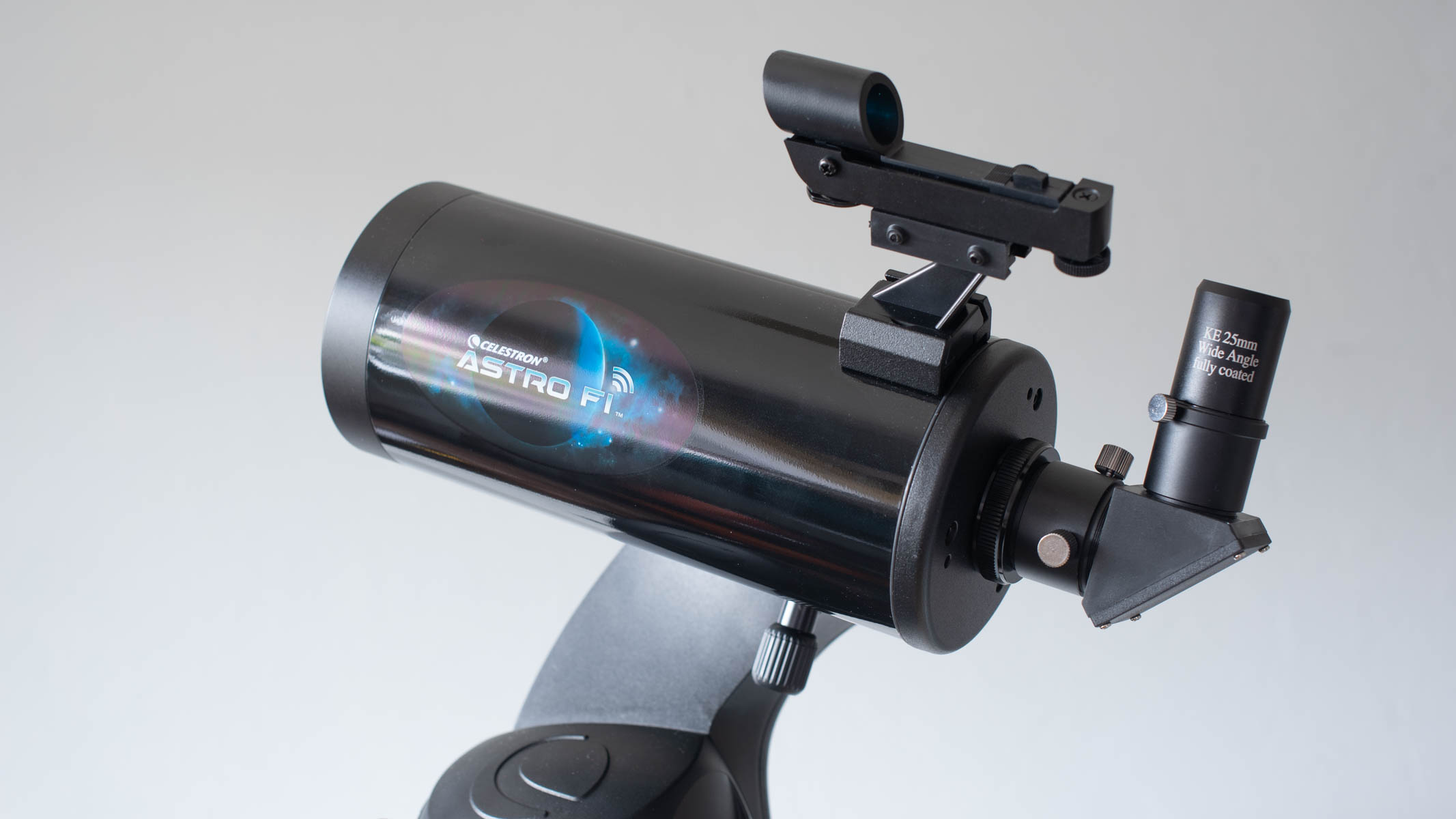
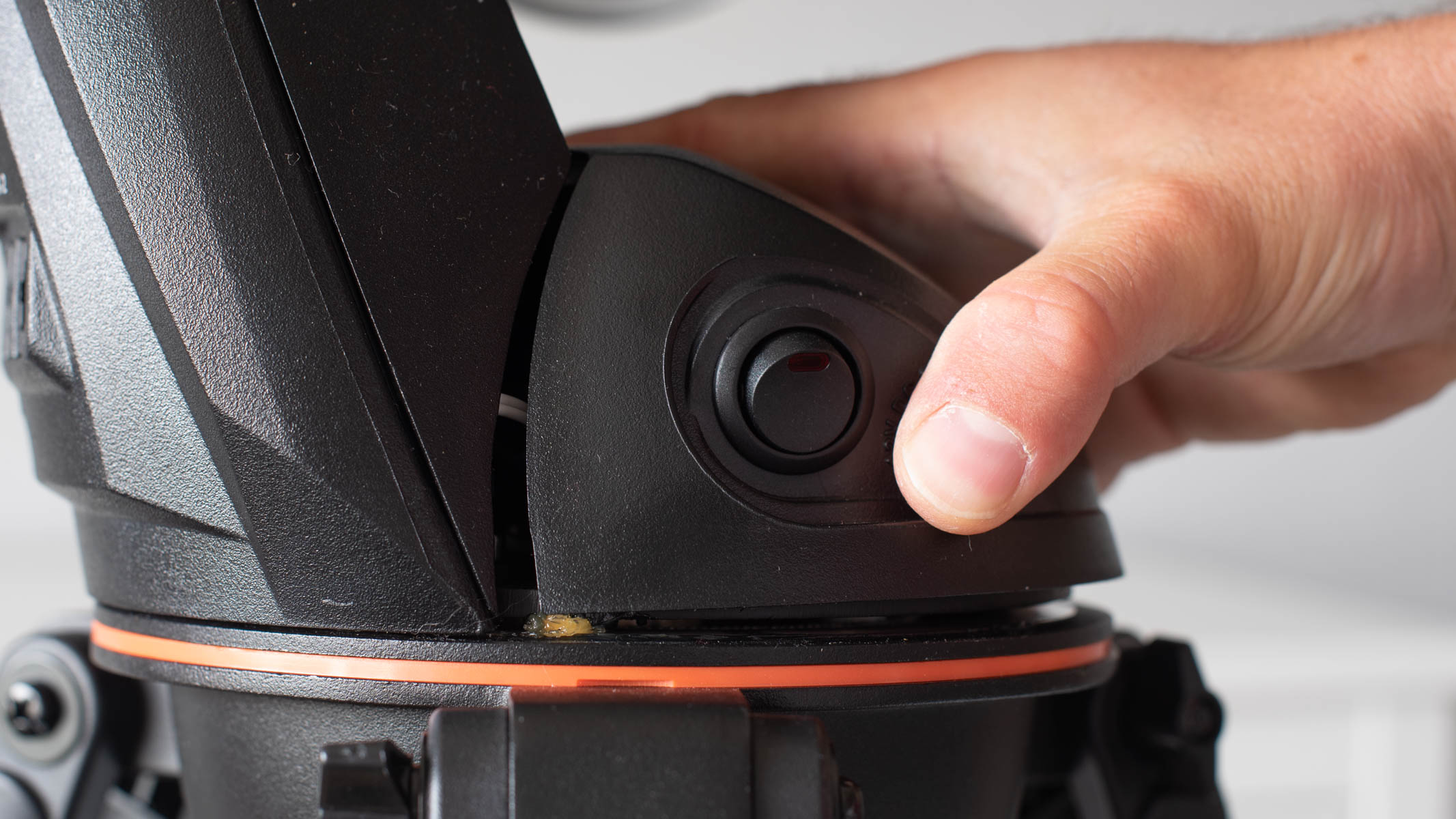
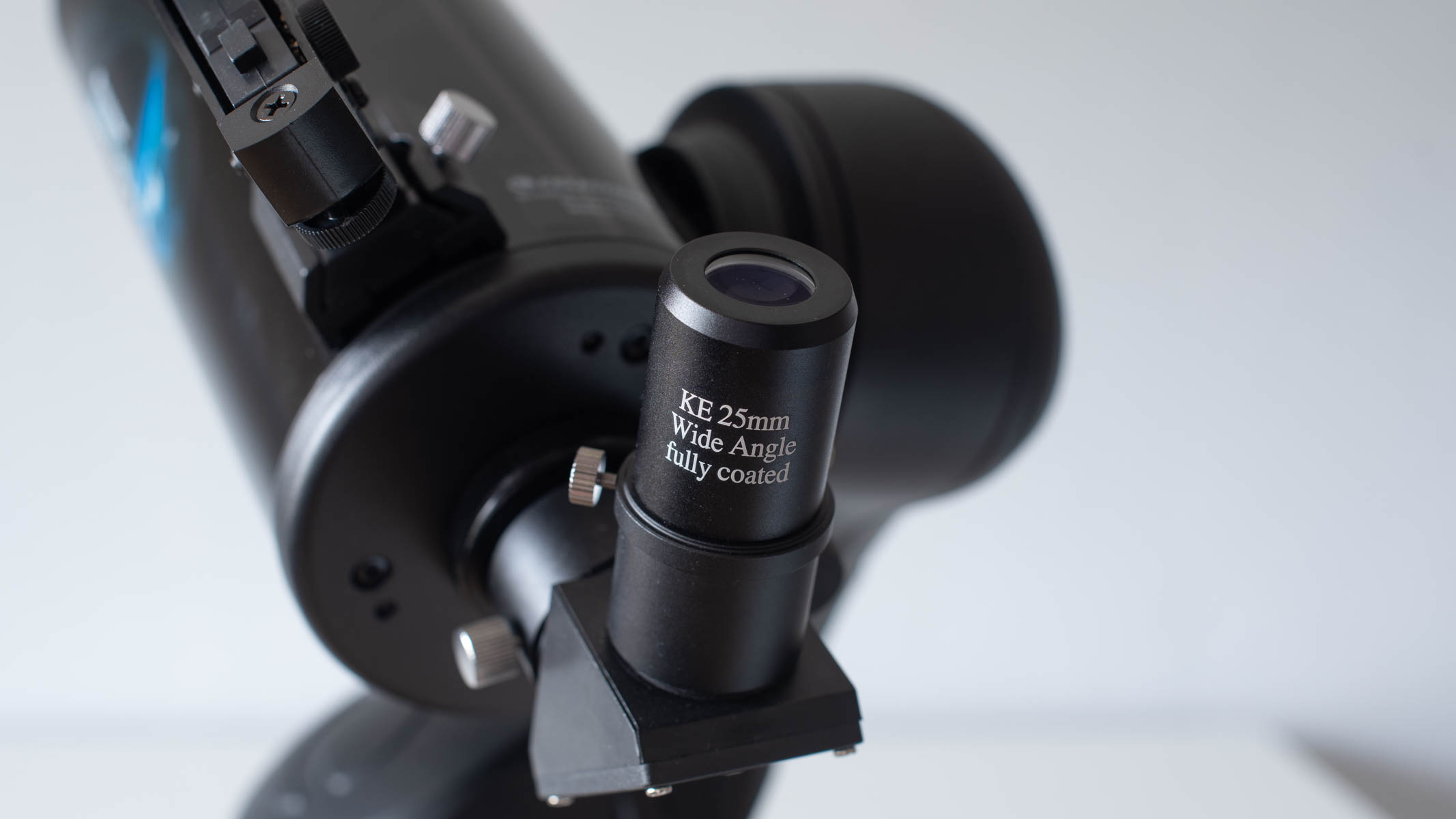
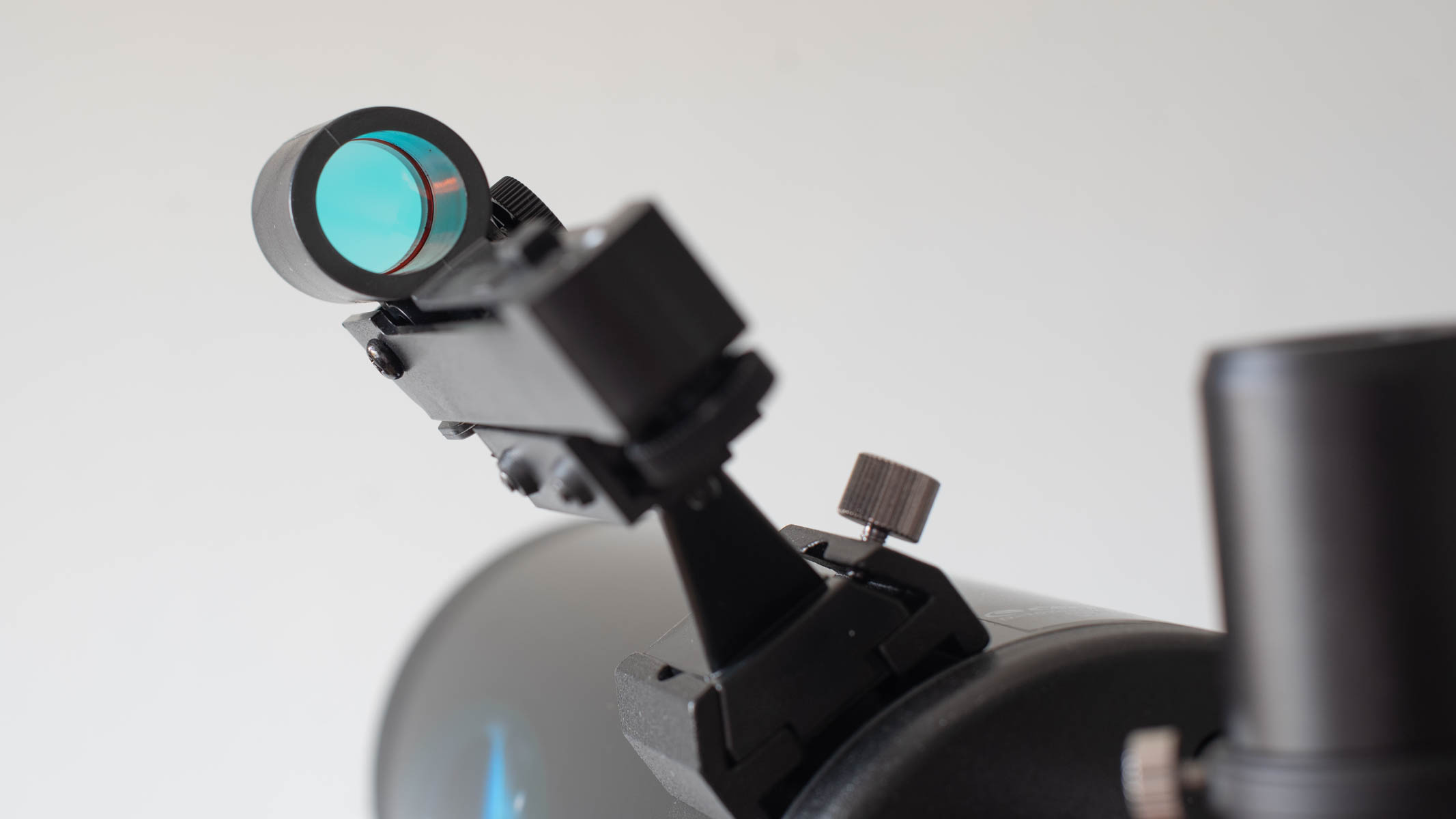

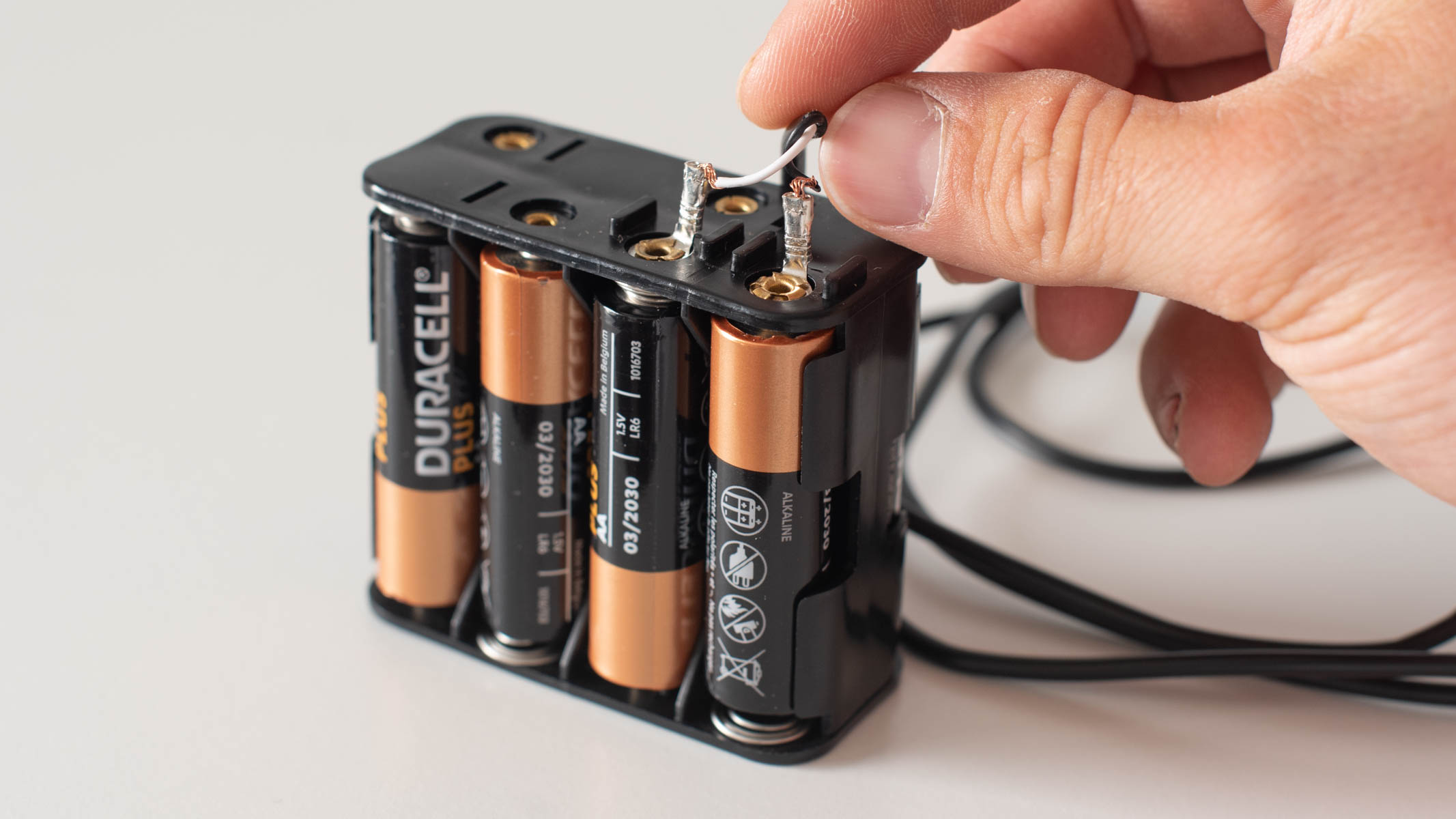
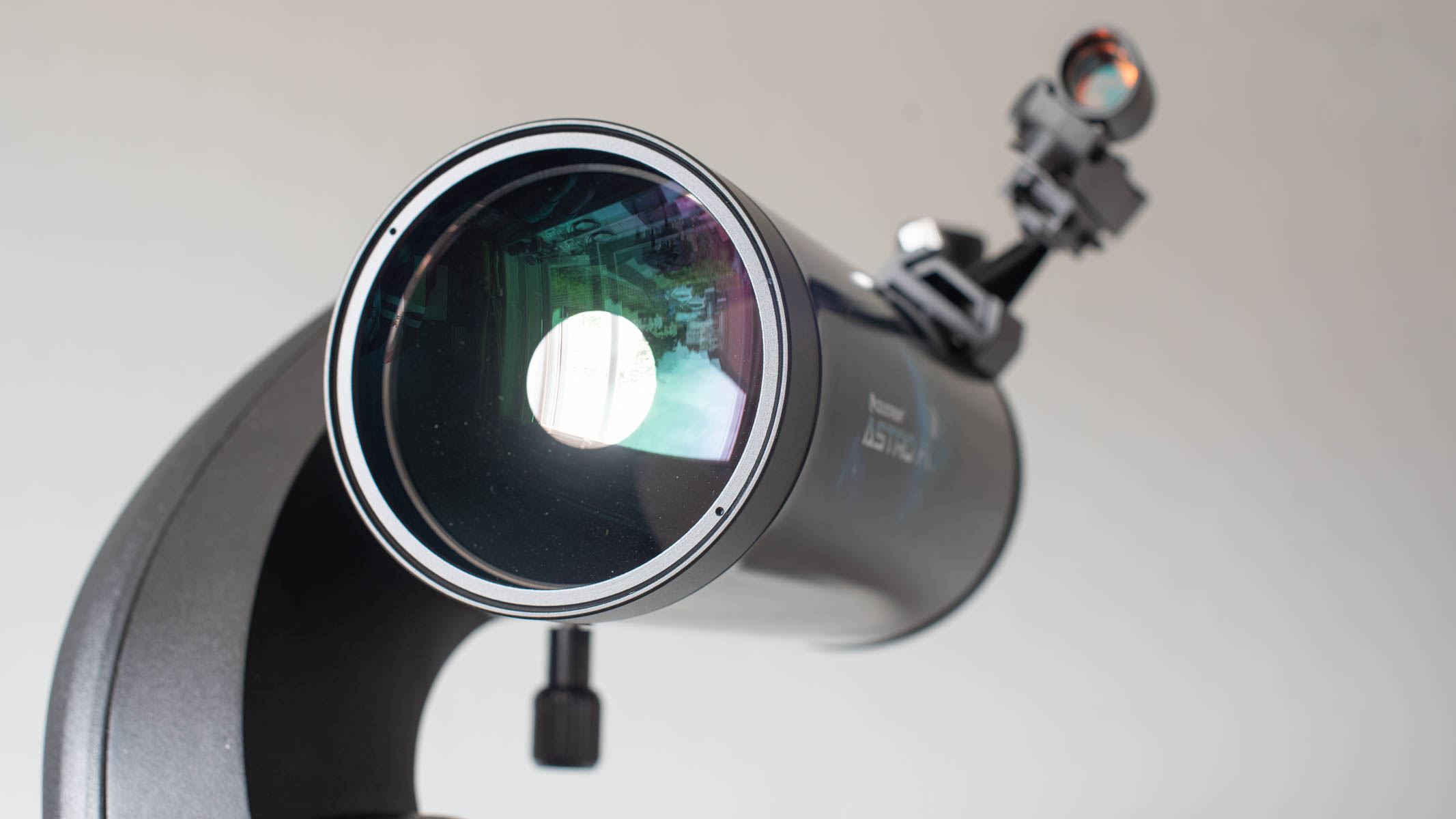
Specifications
Reasons to buy
Reasons to avoid
✅ You'll be traveling with it: This scope is our top choice for portability, so it's ideal if you plan on taking it away on camping trips or to areas with darker skies.
✅ You're a beginner: If you just want to look at the moon and some planets, this is a great choice.
❌ You want good quality parts: This telescope has an element of 'you get what you pay for'. It's adequate for basic astronomy, but the tripod isn't the best quality, the optics could be better and it didn't have a premium feel.
🔎 Celestron Astro Fi 102: Best suited for viewing the moon and planets, this telescope is great for beginners and anyone with no prior experience. It can be a little tricky to setup initially, and it's not the best quality scope we've reviewed, but it'll do the job. ★★★½
The Celestron Astro Fi 102 has many benefits for newcomers to astronomy — it's relatively easy to set up, it has a motorized mount that automatically slews to your chosen target and it's in an affordable price bracket for a Maksutov-Cassegrain scope. It also has an array of convenient features and accessories to help you get started.
One of the things we loved about this scope in our Celestron Astro Fi 102 telescope review was its portability. It has a compact body and weighs only 6 lbs (2.7kg), so it's extremely easy to carry with you out in the field. A word of caution, though, it's not as robust as some pricier scopes and probably couldn't withstand getting wet, so make sure to take a cover with you in case of passing showers. We also think it would feel more stable with a sturdier tripod as the one that's included felt a bit flimsy and needed some extra weighing down.
This telescope comes with integrated WiFi so you can pair it with your phone using the Celestron SkyPortal app. The app contains around 100,000 celestial objects that you can select for the telescope to slew to, making it easy for beginners to navigate the sky above them with no prior knowledge.
For the price, the Celestron Astro Fi 102 offers good views of the moon and its craters and closer planets such as Mars, Saturn and Jupiter. In good conditions, you can also hope to catch a glimpse of Uranus or Neptune. There is some sharpness drop-off towards the edges, but you'd need to purchase a much more expensive scope to avoid this.
The plastic casing is acceptable but we don't think it could survive a substantial knock or a soaking from a passing shower as the seals aren't great, unlike some of the hardier, fully-sealed telescopes available.
- Read our full Celestron Astro Fi 102 review
Attributes | Notes |
|---|---|
Design | Highly transportable, but tripod needs weighing down. |
Performance | Initial setup can be tricky, but after that it's a breeze. |
Functionality | Large database of celestial objects on SkyPortal. |
Best for accessories
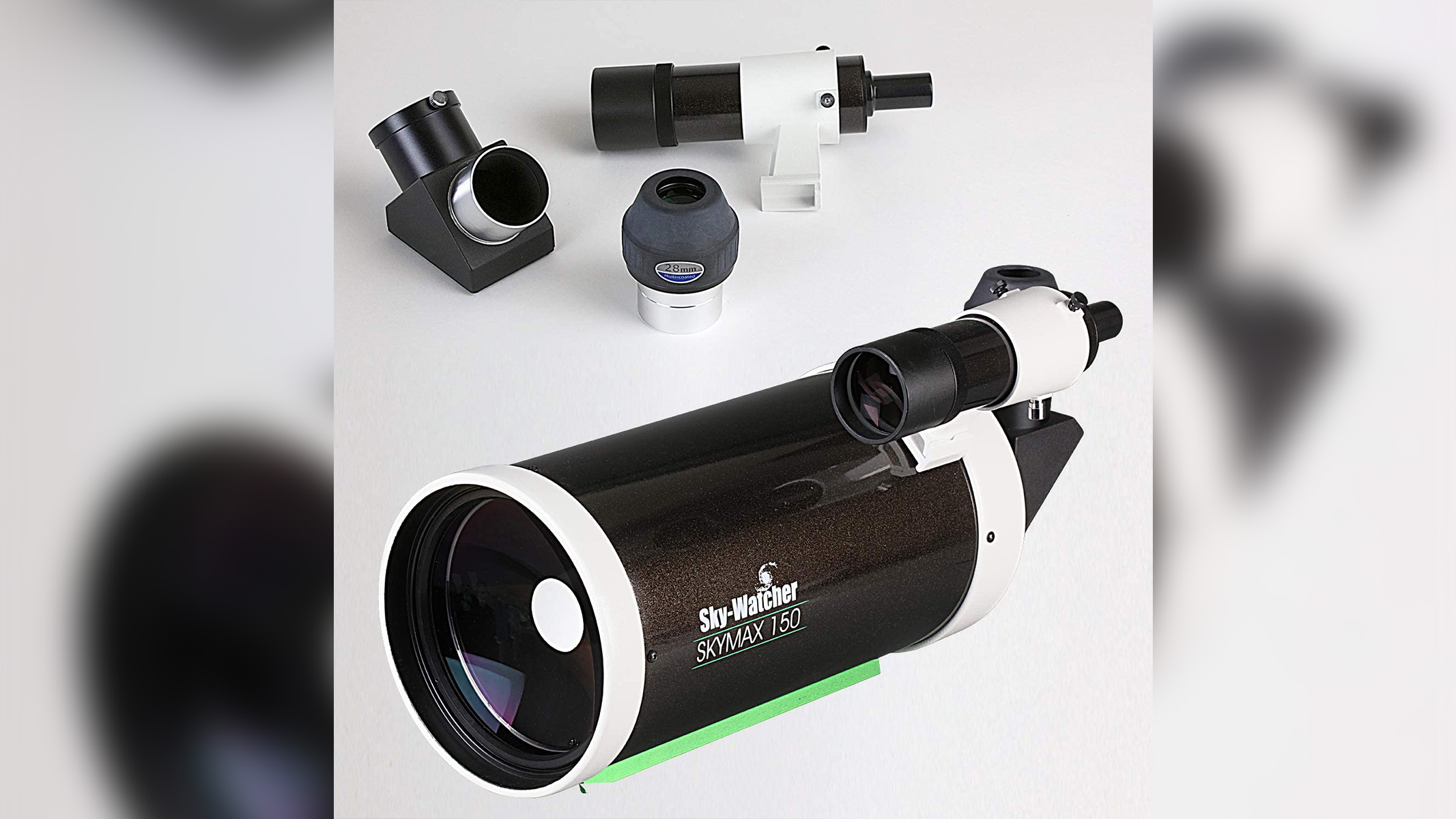
Sky-Watcher Skymax 150 PRO
Our expert review:
Specifications
Reasons to buy
Reasons to avoid
✅ You want to travel with it: Most astrophotography involves traveling to dark sky sites, and this telescope is light enough to do just that.
✅ Your primary focus is astrophotography: We recommend this telescope as the best for astrophotography thanks to its amazing optics.
❌ You're looking for something super sophisticated: For those looking for high-end, sophisticated instruments and have the money to spend on them, a smart telescope would likely be a better fit.
🔎 Sky-Watcher Skymax 150 PRO: This telescope is perfect for astrophotographers who want to take it on shoots — it has great quality optics and an excellent build. It can accommodate plenty of accessories, although not all models come with a tripod. ★★★★
The Sky-Watcher Skymax 150 is perfect for astrophotographers thanks to its high-quality equatorial mount, which can suit both short and long-exposure shots.
This telescope weighs in at just 13.23 lbs (6kg) so you can easily take it to different locations to seek out darker skies. It works well with many equatorial mounts and accommodates additional accessories like CCD or DSLR cameras, filter wheels and other add-ons. It also comes with a Vixen-style dovetail plate for easy mount attachment.
This well-built Maksutov-Cassegrain telescope comes with a 28mm focal length eyepiece that provides 64x magnification, enabling you to see detailed views of various celestial objects.
The Skymax 150's optics are impressive, delivering crisp, distortion-free views. It's a versatile telescope, perfect for capturing images of planets or distant galaxies and nebulas. It's also user-friendly and easy to accessorize, making it a great choice for astronomers and astrophotographers of all abilities. We also think the Skymax 150 is very good value compared to some other products on this list.
The focuser is very smooth to operate and the telescope keeps a good amount of fine focus once it's been found, which is vital for long nights of astrophotography sessions.
If this isn't the right telescope for your needs, but you're still after a Sky-Watcher scope, check out our Sky-Watcher deals hub to find more models from the brand.
- Check out the Best cameras for astrophotography
Attributes | Notes |
|---|---|
Design | High quality build, excellent optics. |
Performance | Outstanding optics, with no sign of distortion. |
Functionality | Great for a wide selection of astrophotography. |
Best smart telescope
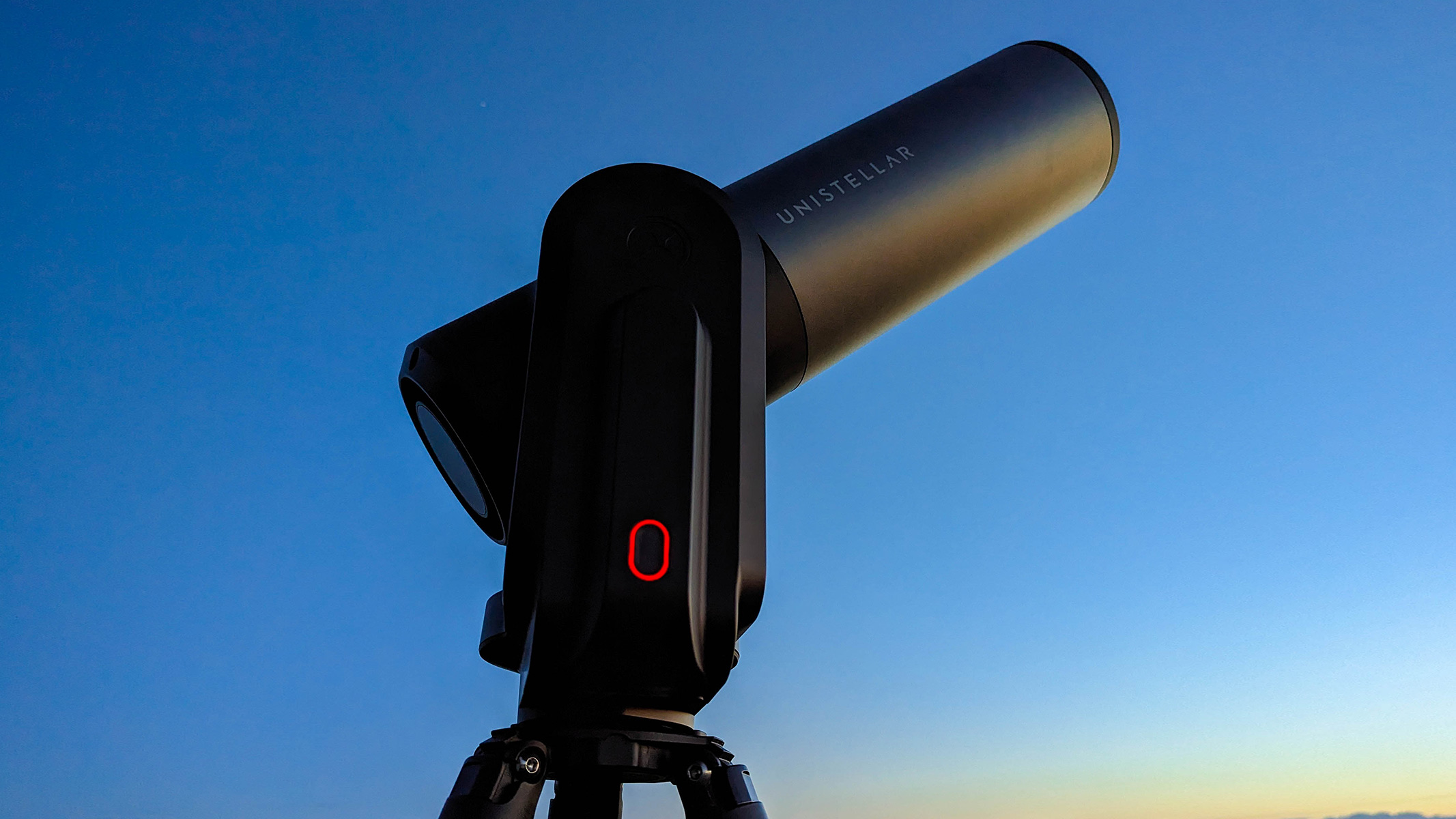
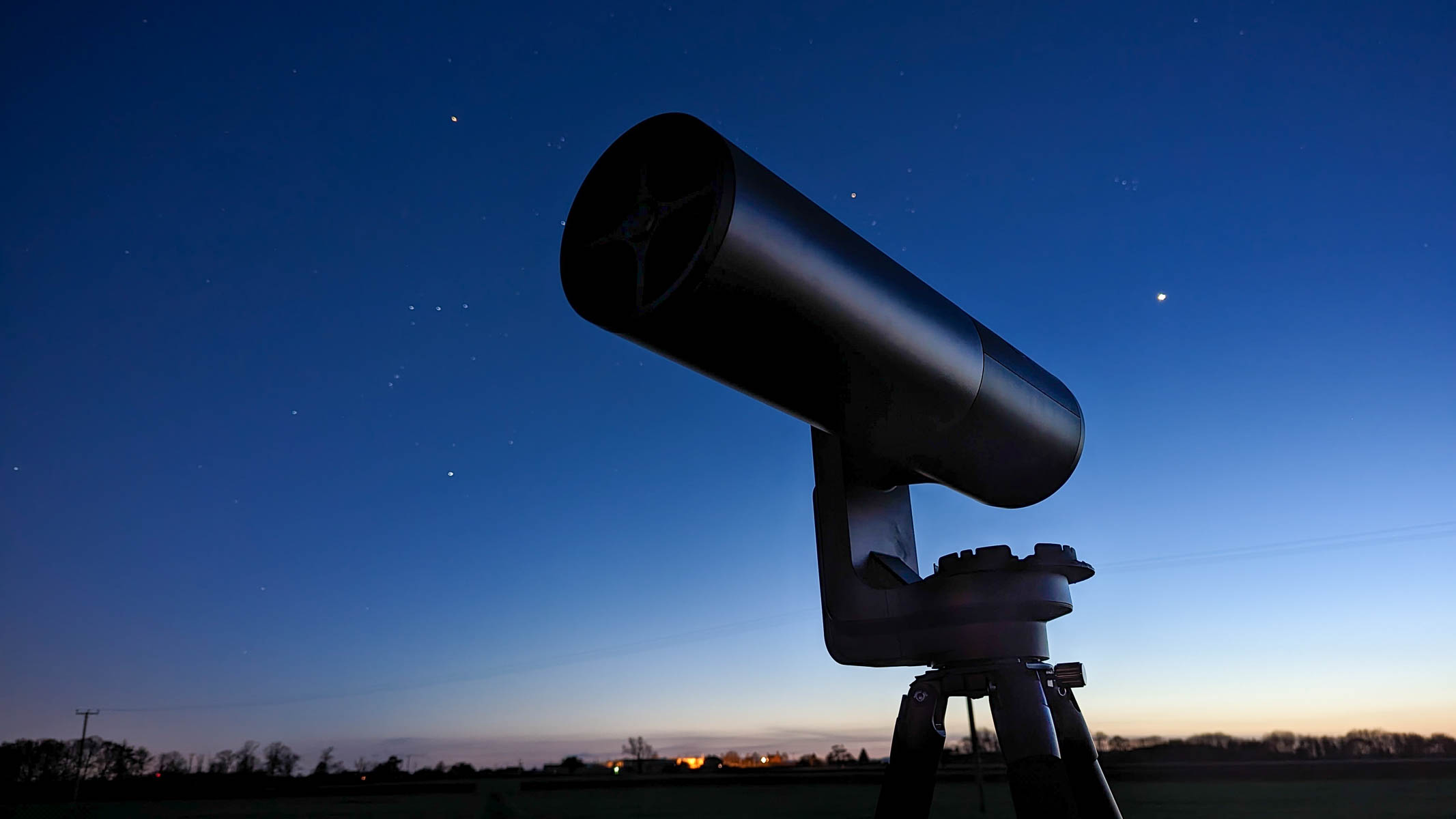
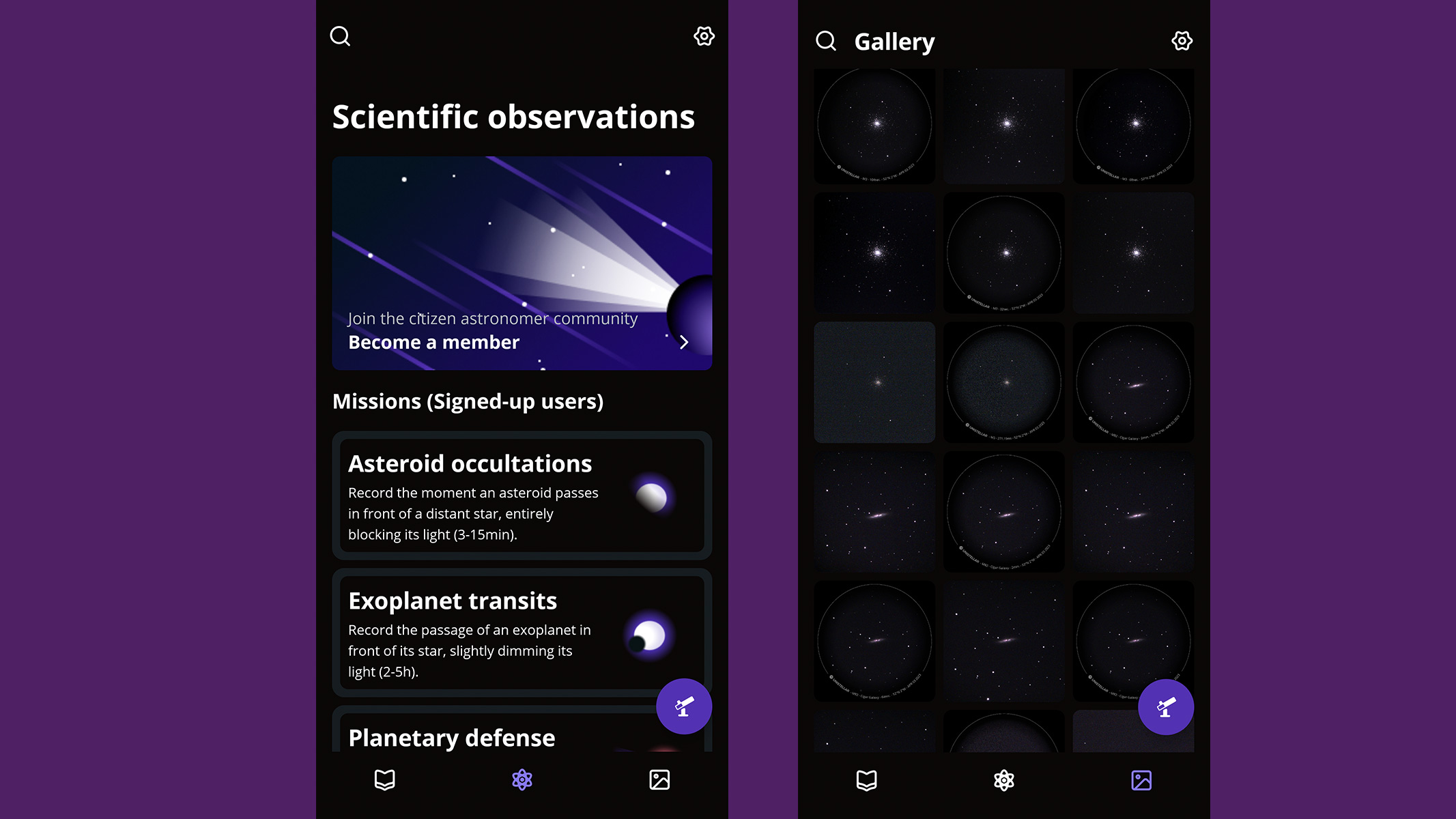
Specifications
Reasons to buy
Reasons to avoid
✅ You live in an urban area: This scope has a Smart Light Pollution Reduction feature that removes light pollution, s it's a great option if you don't live near a dark sky site.
✅ You want simplicity: This is an incredibly sleek, all-in-one telescope that has no need for additional accessories and can take you to your chosen celestial objects with ease.
❌ You're on a budget: Unsurprisingly, this is an expensive bit of kit, so it'll price out most beginners and anyone who doesn't have a big budget.
🔎 Unistellar eQuinox 2: An easy-to-use motorized smart telescope that can locate night sky objects at the push of a button, the eQuinox 2 can have you exploring the stars in minutes without the need for prior knowledge, although its in-built camera isn't quite detailed enough. ★★★★½
The Unistellar eQuinox 2 packs all the latest smart technology in a sleek and modern motorized reflector telescope. It features a single power button on the fork arm, and all other controls are operated via the Unistellar app. Unlike traditional telescopes, you won't get a finderscope, eyepieces or other accessories included in the package because the Unistellar eQuinox 2 doesn't need them.
The telescope contains a 6.2MP image sensor (an improvement over the 4.9MP sensor in the previous model) which captures several images one after the other and stacks them to give the appearance of a long exposure. As a result, objects become brighter as the image on your phone or tablet screen gets updated in real-time.
While this may not appeal to astronomers who enjoy a more traditional approach to sky-watching, it has particular benefits when stargazing from urban locations thanks to the Smart Light Pollution Reduction feature, which removes the effects of light pollution as you view. We also like that it's very easy to save and share photos of what you're seeing in real-time.
During our Unistellar eQuinox 2 review, we found it quick and easy to set up using the Autonomous Field Detection feature, after which you can use Unistellar's intuitive app to navigate automatically to different objects in the night sky. The menu screen displays a choice of objects that are currently available to view, as well as objects that will make an appearance within the next few hours. Alternatively, you can search for the specific object you're interested in in their huge database of 37 million stars and over 5,000 celestial objects.
It's worth noting, though, that this high-tech telescope will set you back around $2,000. If your budget will stretch that far, then the Unistellar eQuinox 2 may be the telescope for you.
- Read our full Unistellar eQuinox 2 telescope review
Attributes | Notes |
|---|---|
Design | Slim, sleek, neat package. |
Performance | Quick go to location of night sky objects. |
Functionality | Doesn't orientate until well after twilight, easy once oriented. |
Best for deep space
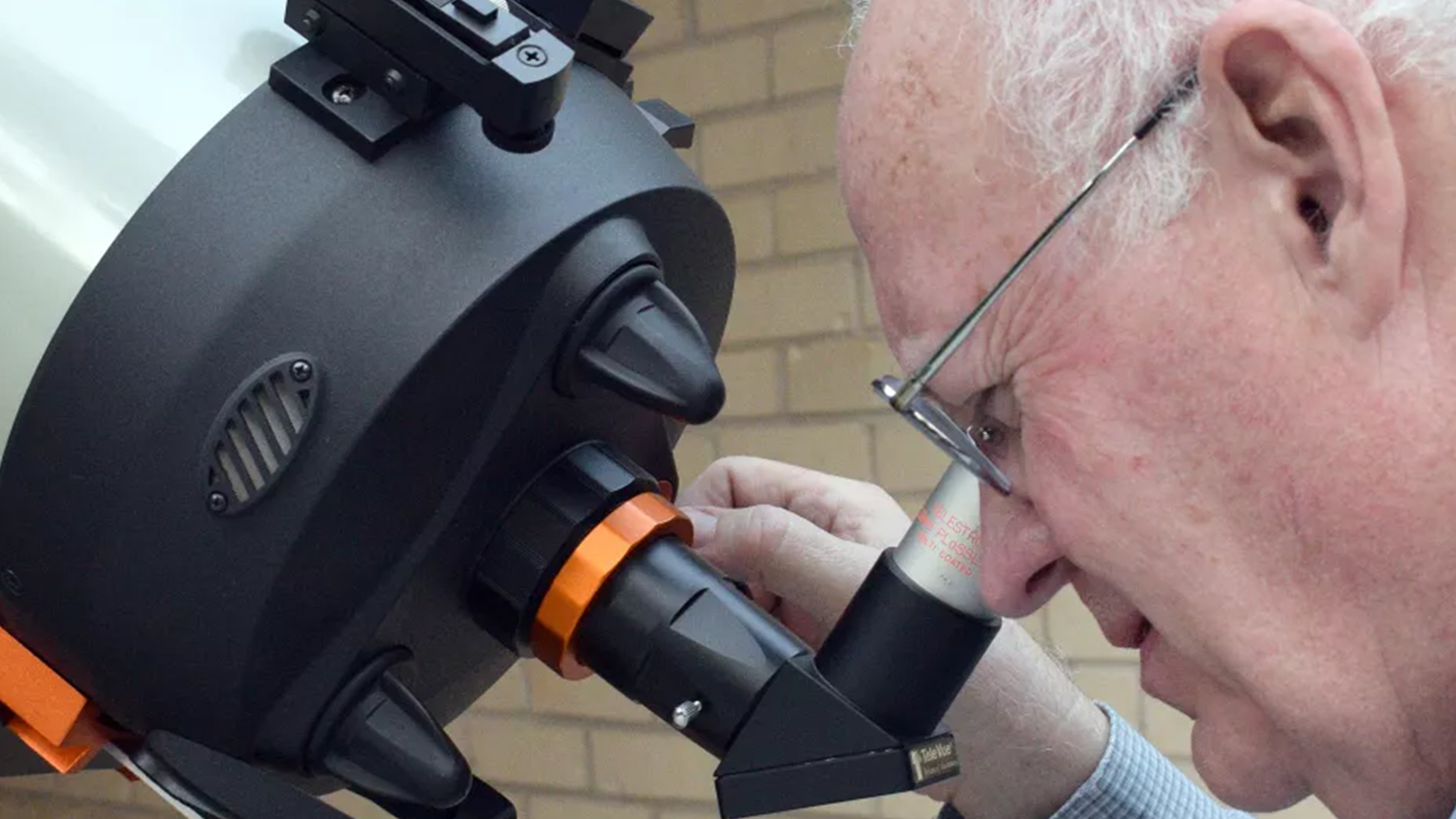
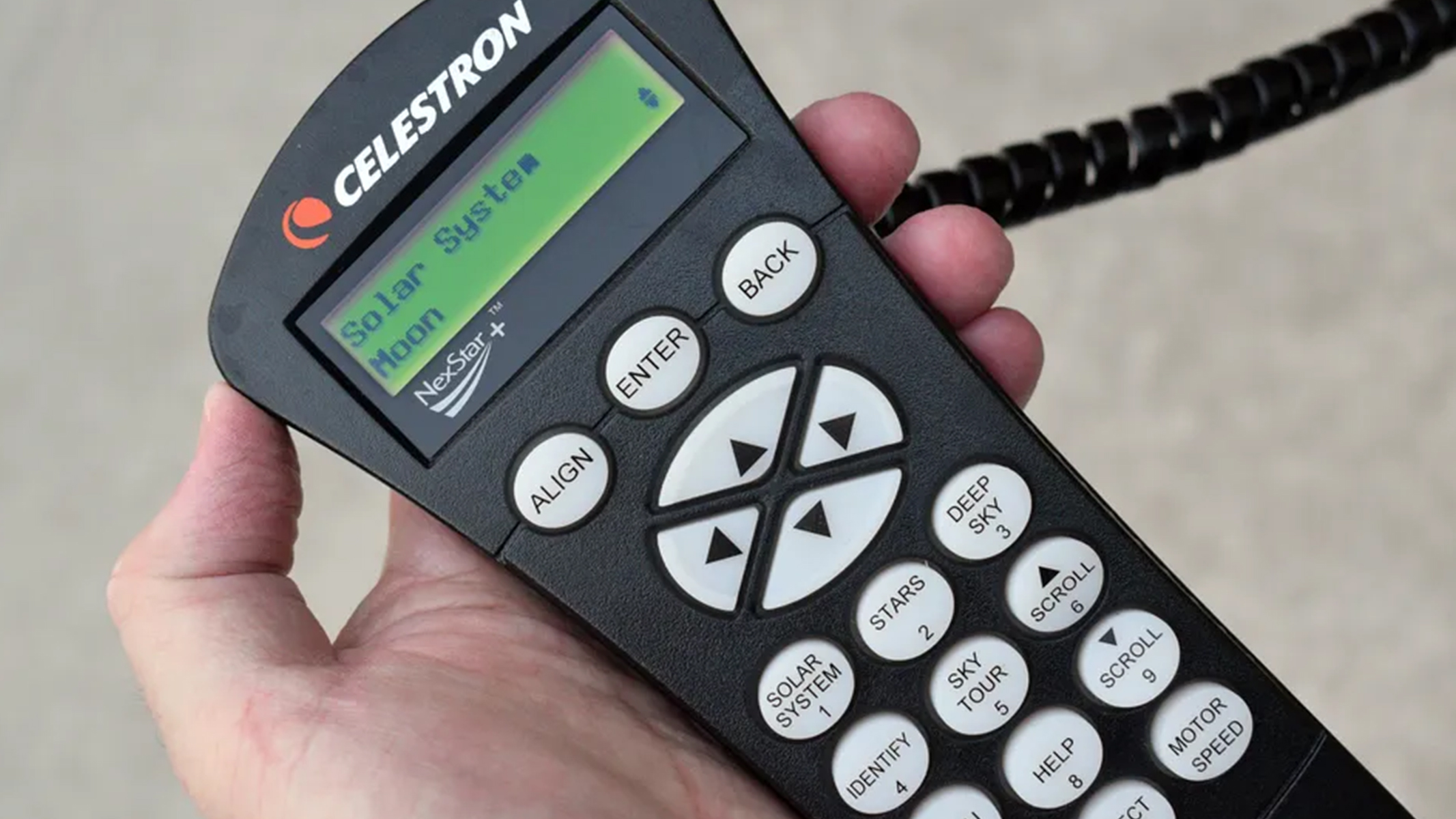
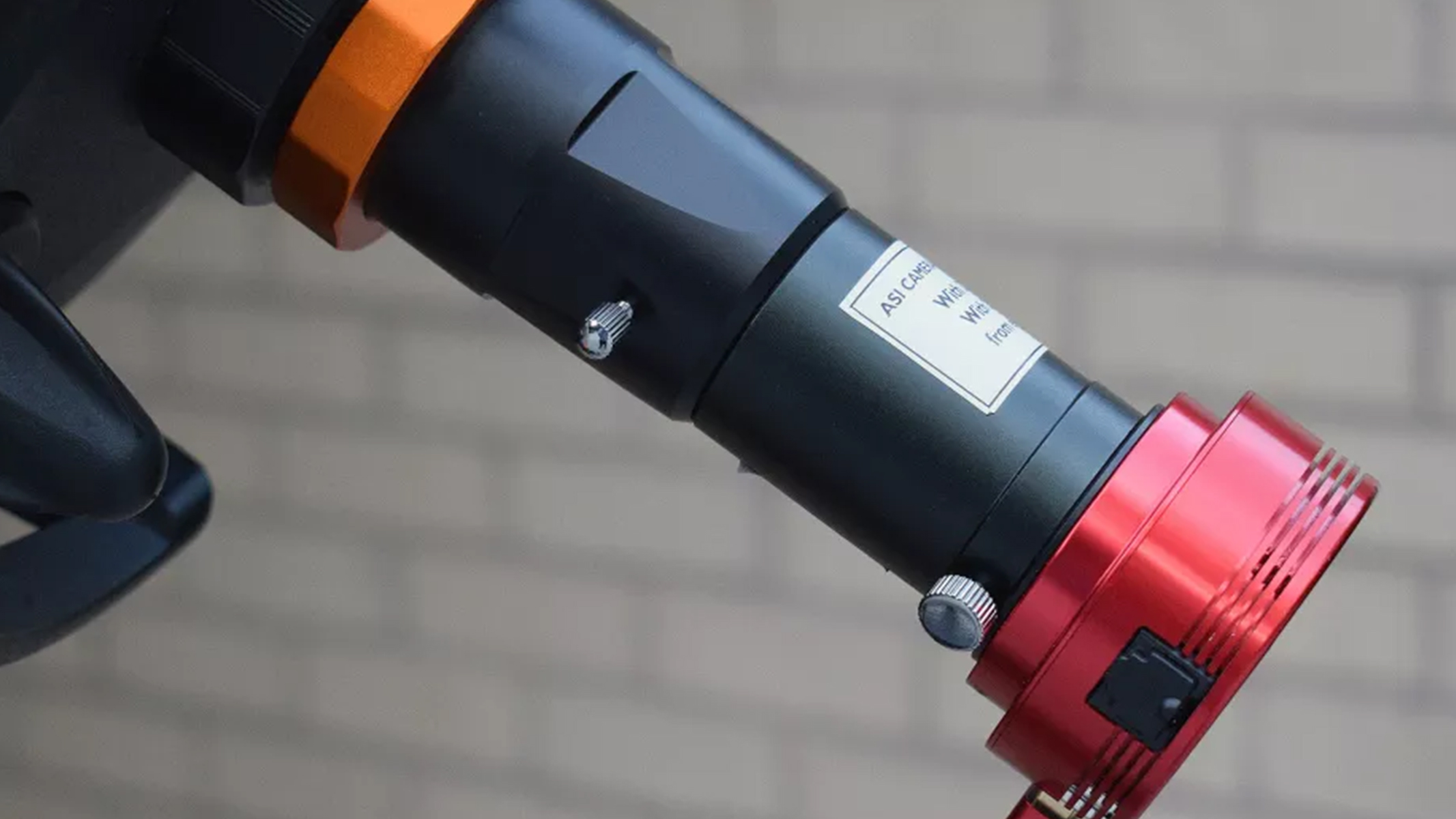
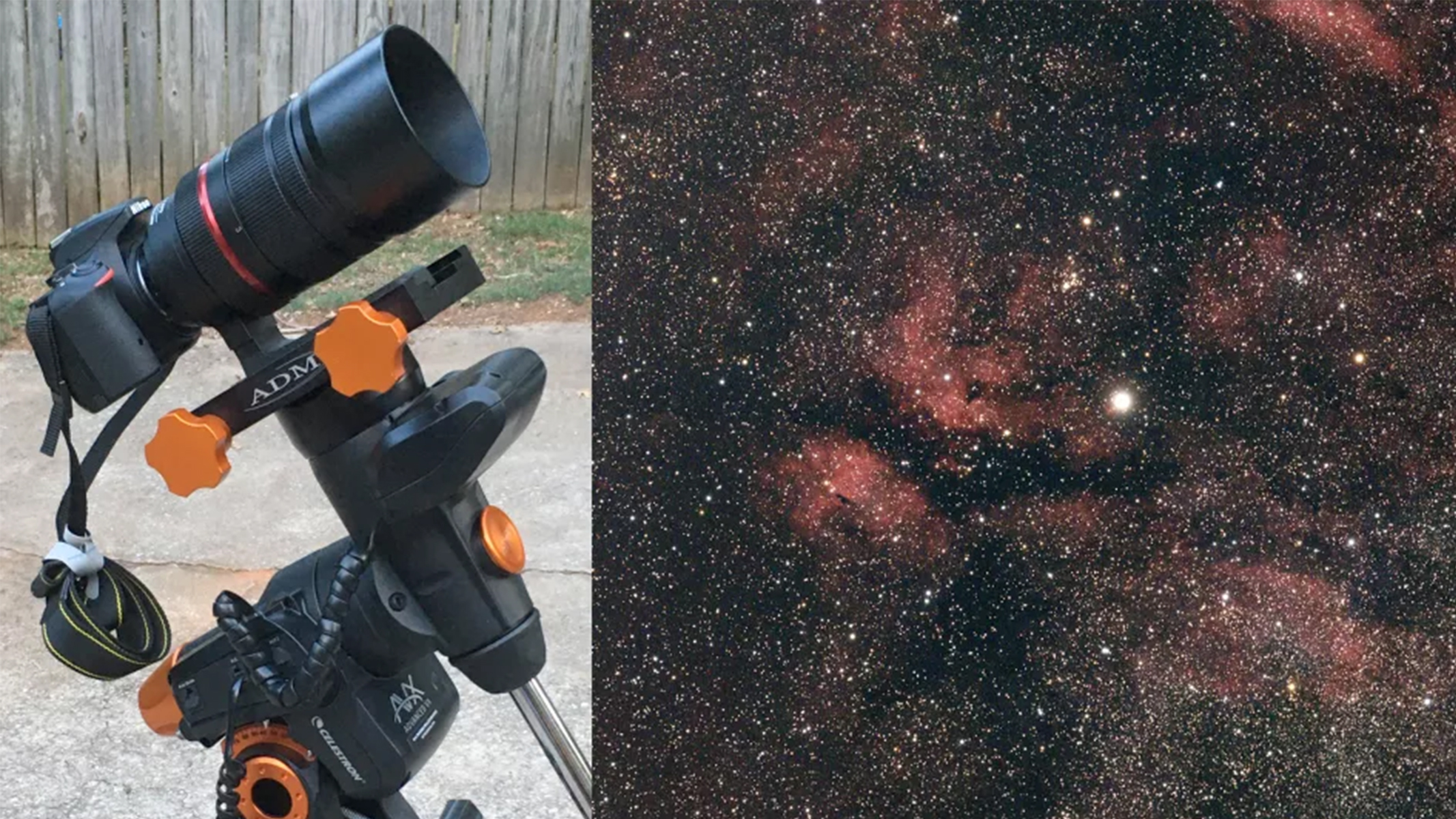
Specifications
Reasons to buy
Reasons to avoid
✅ You want to see everything: While some telescopes are only good for seeing the moon and planets or deep space, this telescope is good for seeing all types of celestial objects.
✅ You want a seamless experience: We found the motorized mount on this telescope very smooth and slick.
❌ You're a beginner: This telescope is intended for those with experience and knowledge of the sky and telescopes, so if you're just starting out, we'd suggest a more beginner-friendly model.
❌ You want something lightweight: At 61 lbs (27.67kg), this telescope is heavier than most other choices in this guide.
🔎 Celestron Advanced VX 8 EdgeHD: Intended for serious amateurs, this optically excellent telescope is suitable for all types of visual astronomy with its rugged, lightweight computerized mount. If you know the sky and plan to be doing astronomy for a long time, this is the telescope to get. ★★★★½
Celestron's EdgeHD technology greatly improves Schmidt-Cassegrain telescopes, especially for astrophotography. Normally, these telescopes produce a curved focal plane that doesn't match the flat surface of a CCD camera sensor. This mismatch causes field curvature, making stars at the image edges appear blurry. However, Celestron's EdgeHD technology solves this problem by providing a perfectly flat field. This enables astrophotographers to capture sharp and detailed photos across the entire frame without any blur.
During our Celestron Advanced VX 8 EdgeHD review, we were pleased to find that the optics in the EdgeHD negate the blurred edges, creating a perfectly flat field right to the edge of the frame for pinpoint sharpness across the whole image. The Celestron Advanced VX 8 EdgeHD's optical performance is impressive, with crisp and clear views with no optical distortion or false color.
The Celestron Advanced VX 8 EdgeHD can handle a weight of up to 30 lbs (13.6kg), ensuring stable and secure support for the tube and all your accessories. The package includes the standard NexStar+ hand controller, a 40mm eyepiece and access to Celestron's SkyPortal app and Starry Night Special Edition software.
As a bonus, the optical tube assembly includes Celestron's Advanced VX mount, specifically designed for photographers. It can capture images across the meridian (an imaginary north-south line) without requiring a meridian flip. The setup also corrects errors periodically while tracking objects and includes an auto guider port.
Views of Saturn and Jupiter are dramatic; globular clusters are resolved into stars; all the Messier Objects are plainly visible; and with a trained eye and a dark country sky, galaxies are visible down to 12th magnitude. It's a telescope you won't outgrow.
Check out our Celestron deals page to see if you can snap up a bargain.
- Read our full Celestron Advanced VX 8 EdgeHD review
Attributes | Notes |
|---|---|
Design | EdgeHD optical design outperforms Schmidt-Cassegrain. |
Performance | Finds and tracks celestial objects reliably. |
Functionality | Great views of all types of celestial objects. |
Best for kids

Specifications
Reasons to buy
Reasons to avoid
✅ You want low investment: For casual viewing, this telescope is a great option with a low price point.
✅ You don't want to spend ages setting it up: It arrives assembled and ready to go, so no complicated setup process needed.
❌ You want to find objects easily: It doesn't come with a finderscope, so anyone wanting to locate certain celestial objects easily may get frustrated.
❌ You want all the extras: This package doesn't include a finderscope, so you'll need to either buy one separately or consider another telescope package that does.
🔎 Celestron FirstScope 76 Tabletop Telescope: If you have children who have been bugging you for a telescope and you can't quite commit to a moderately-priced instrument, then the FirstScope may be for you — especially if the moon and casual glances at the night sky are of interest. ★★★★
As you might have guessed from its name, the Celestron FirstScope 76 is designed to be a kid's first telescope. As you'd expect, it's really easy to set up and use, as it comes fully assembled in the box. It's ready to go as soon as you open it up, perfect for impatient kids who just want to get started.
In our Celestron FirstScope 76 Tabletop telescope review, we noted that it's ideal for little hands since the tube can easily be pushed to the desired target. It's also fully equipped for decent night sky observations with two basic eyepieces included — 4mm and 20mm. It features a 76mm aperture (nearly three inches) and a fast focal ratio of f/3.95, which means you'll be able to spot celestial objects as well as some fainter deep-sky targets. You won't get close-up views, but it's good enough for newcomers to the field. Although they weren't totally pin-sharp, we were impressed with the great views of craters we saw and thought they were a great starting point.
You'll notice that the telescope's base is short, meaning that you'll need to place it on a table in order to use it comfortably: a hindrance for some observers, however, if you have children who have been pestering you for a telescope, the FirstScope is the perfect solution, especially given its small build and ease of use.
The Celestron FirstScope 76 is very portable, weighing only 4.5 lbs (2.04kg). However, being a tabletop telescope, it's not really one you want to use in the wild as it'll need somewhere to stand. If you're weary of its low price-point, don't be: The Celestron FirstScope is built very sturdily with durable, non-glossy plastics, so it looks and feels premium too.
Perhaps the only real complaint we have about the FirstScope is that is doesn't come with a finderscope — a tool that aids in aligning the telescope. Having one would enhance the overall experience for young astronomers, so we'd highly recommend purchasing a red dot finder to go with this telescope (thankfully, they're relatively inexpensive).
- Read our full Celestron FirstScope 76 Tabletop telescope review
Attributes | Notes |
|---|---|
Design | Good quality build for the price. |
Performance | Provides a 'wow factor' for young observers. |
Functionality | Optics struggle to pick out detail. |
Best portable smart telescope
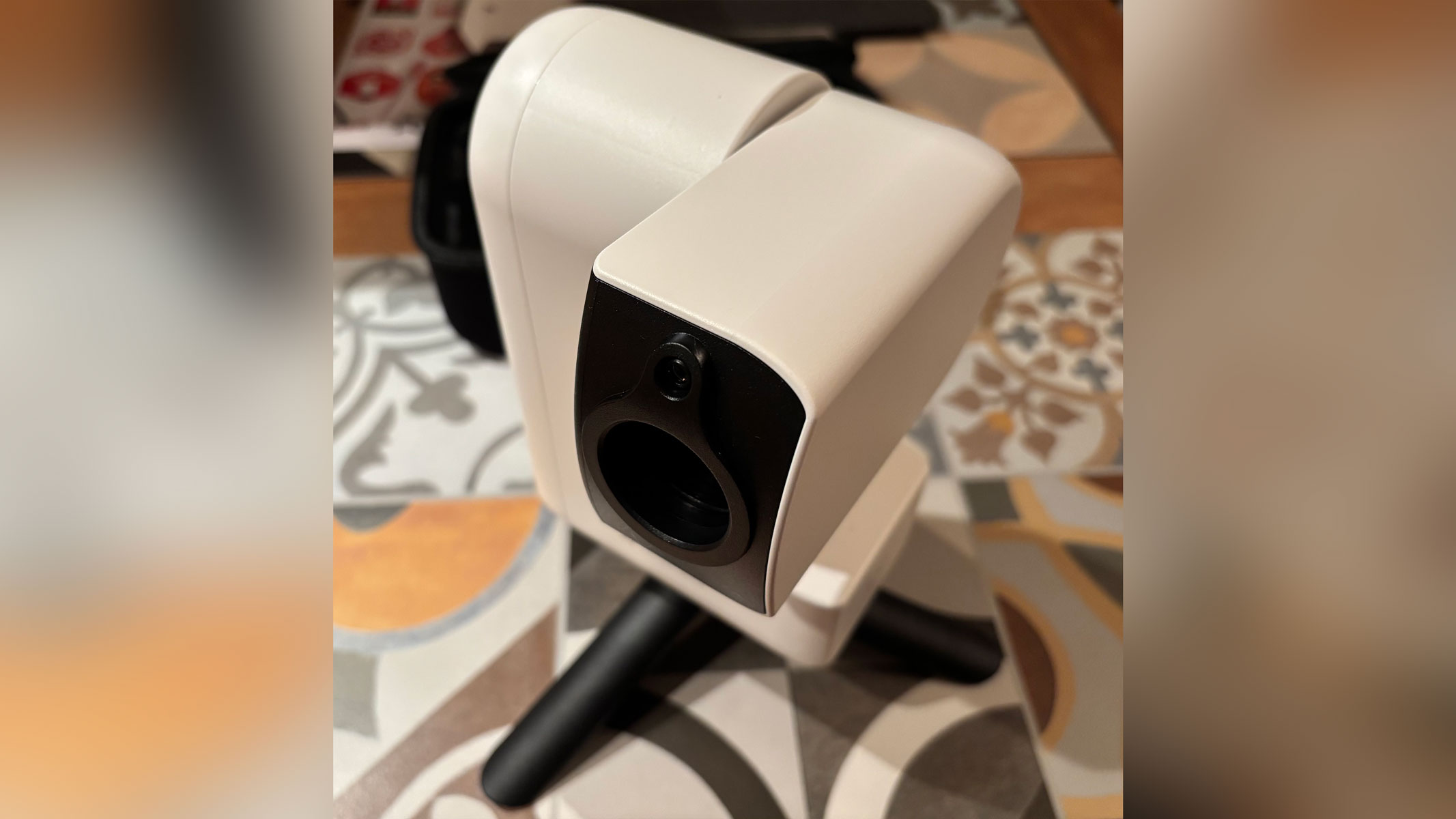

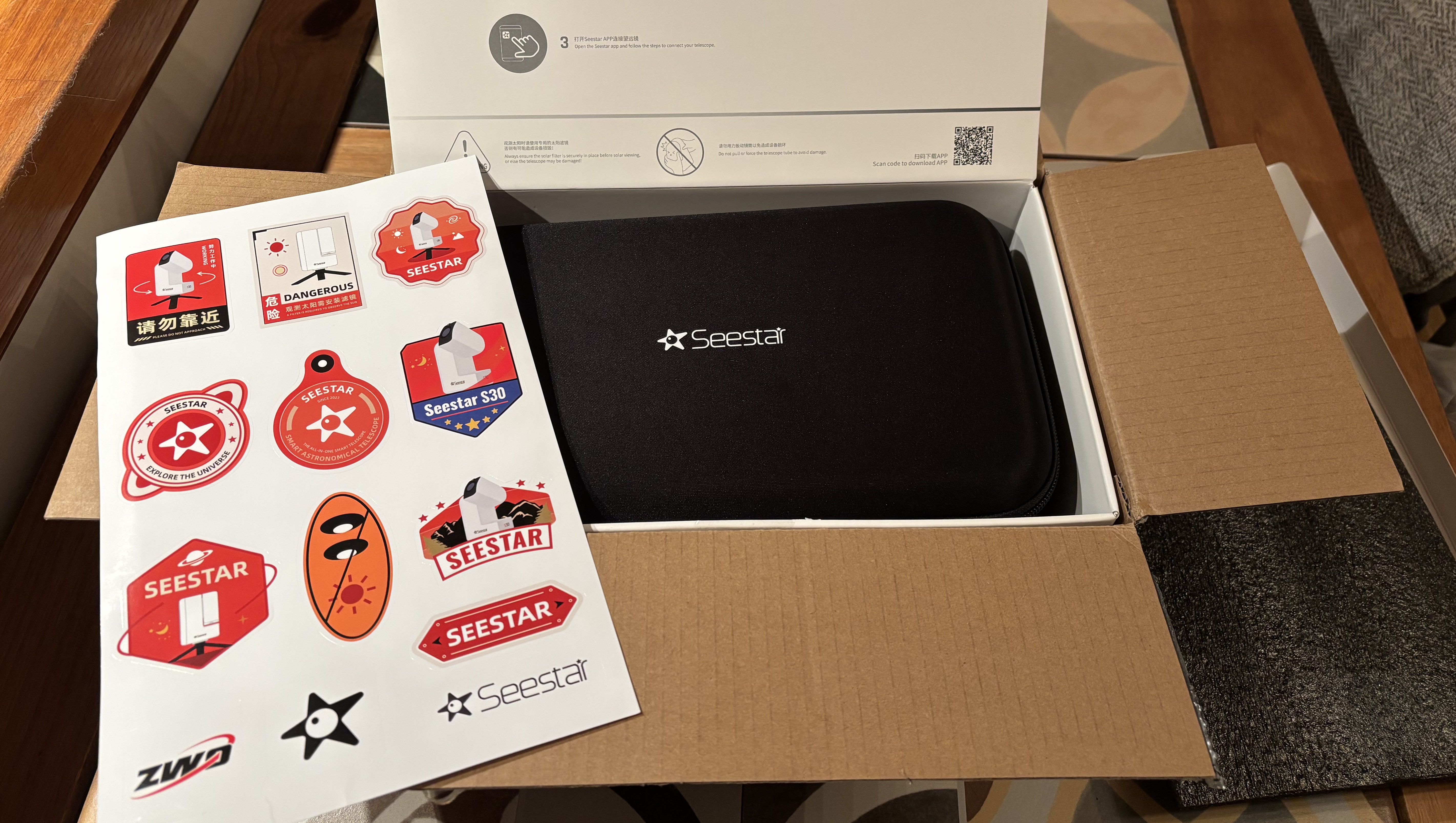
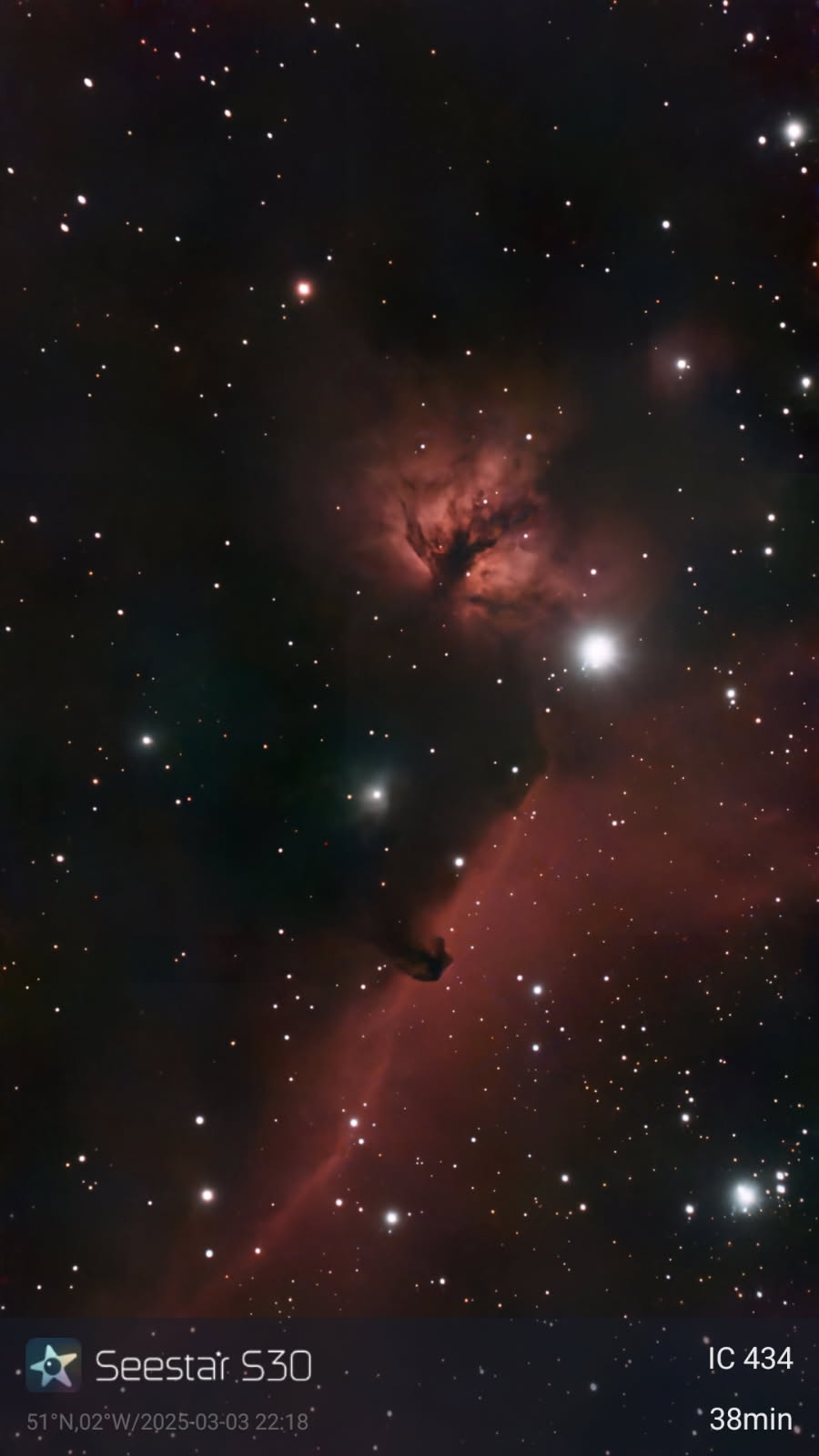
Specifications
Reasons to buy
Reasons to avoid
✅ You want no-faff portability: The Seestar S30 is quick to set up and use, especially as the telescope and app do all the work for you.
✅ You want a family-friendly telescope: Suitable for children to beginners and beyond, the Seestar S30 is the perfect family-friendly telescope.
❌ You want complete accuracy: While the Seestar S30 performed well, occasionally it struggled to find night-sky objects.
❌ You want to view deep-sky objects in detail: While the Seestar S30 could locate and image deep-sky objects, some galaxies and nebulas appeared tiny in the field.
🔎 ZWO Seestar S30: An ideal telescope for smart capabilities and portability, with an ease of use meaning that any member of the family could give it a go ★★★★
The Seestar S30 is an incredibly compact and neat telescope that is easy to set up. It's super lightweight, weighing only 1.65 kg, making it ideal for portability. Plus, it's a smart telescope which lends itself well to children and beginners so all the family can have fun trying this telescope out.
Part of what makes this telescope so compact is the small tripod it sits on. The tripod legs don't extend. However, this isn't a concern as you control this telescope with a smartphone app, with the objects you're viewing appearing on your phone screen. This telescope can be easily placed on garden tables or even pavements and still capture amazing views of the night sky. The alt-azimuth mount allows the aperture arm to move in all directions; up and down and left and right so you're guaranteed great views of the night sky.
While the telescope aperture is only 30 mm (1.18 inches), the Sony IMX662 CMOS imaging sensor sufficiently captures the light that reaches it. Typically for such a compact refractor telescope, the focal length is 150 mm (5.9 inches) but this does provide a solid f/5 instrument. The only disappointing thing regarding this telescope was that some deep-sky objects appeared small in the field.
One of the really impressive things about this super smart and portable telescope is just how quiet it is when sourcing night-sky objects. In our review of the Seestar S30, our reviewer noted, "it's so quiet that in the dark, we had to double-check that it had really moved as commanded."
There are various ways of searching for night-sky objects using this smart telescope. Beginners can rely on the app to show them the most famous night-sky objects. There is also the option to browse the stargazing or solar system categories and choose objects from there. But, for more experienced users, the 'Sky Atlas', which is a basic planetarium software, allows you to pinch and zoom in and out to select objects you'd like to view. It's so simple to select your object, press the 'Go-To' button and let the Seestar S30 do everything else. Our reviewer was impressed with the speed it found objects in, with it taking between 10 and 20 seconds to find night sky objects. This really is a telescope that offers no-faff when it comes to stargazing.
- Read our full ZWO Seestar S30 telescope review
Attributes | Notes |
|---|---|
Design | Compact and impressively quiet |
Performance | Accurate 'go-to' function that's quick to find night-sky objects |
Functionality | Super easy to set up and use |
Best for solar viewing
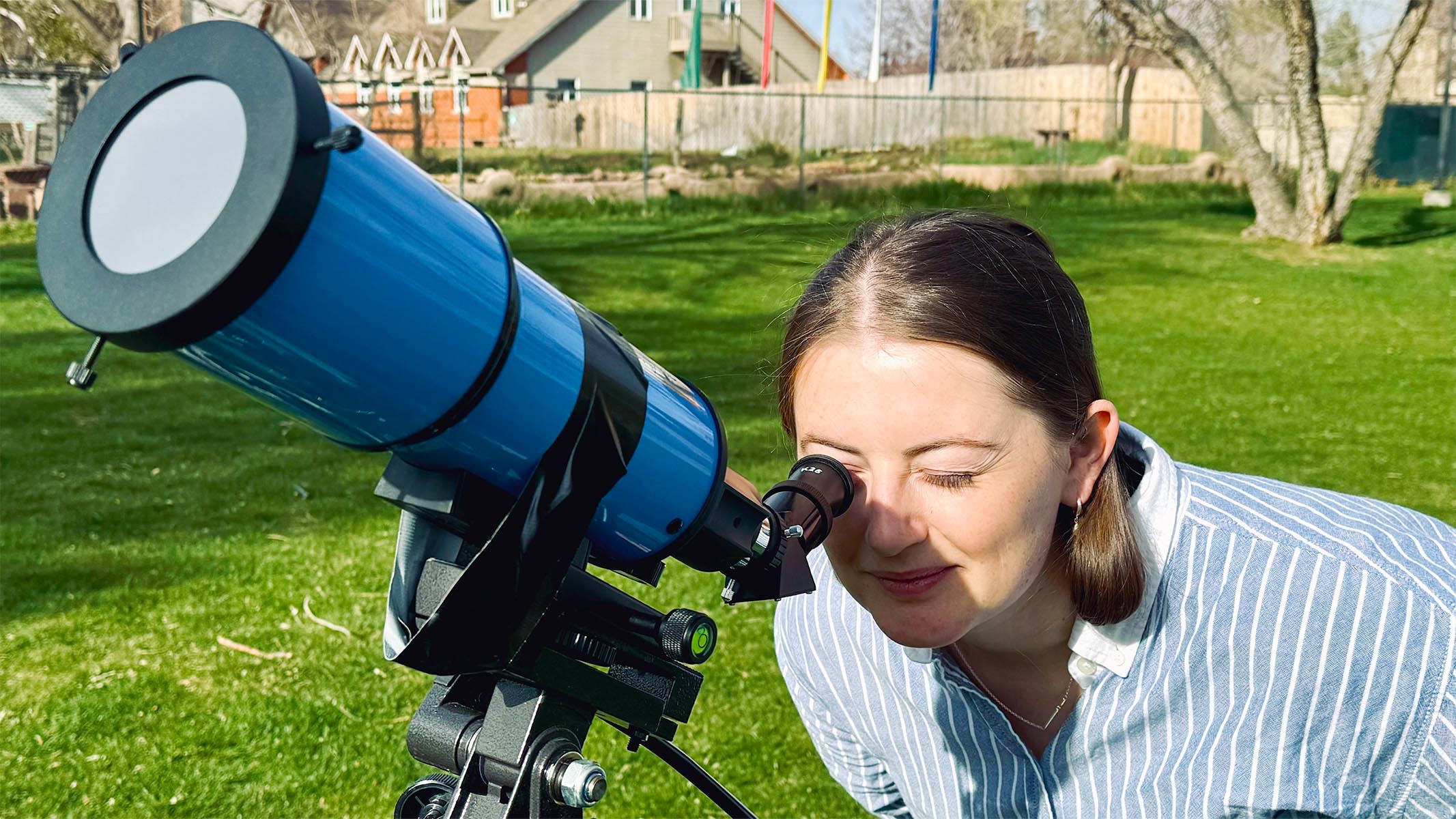
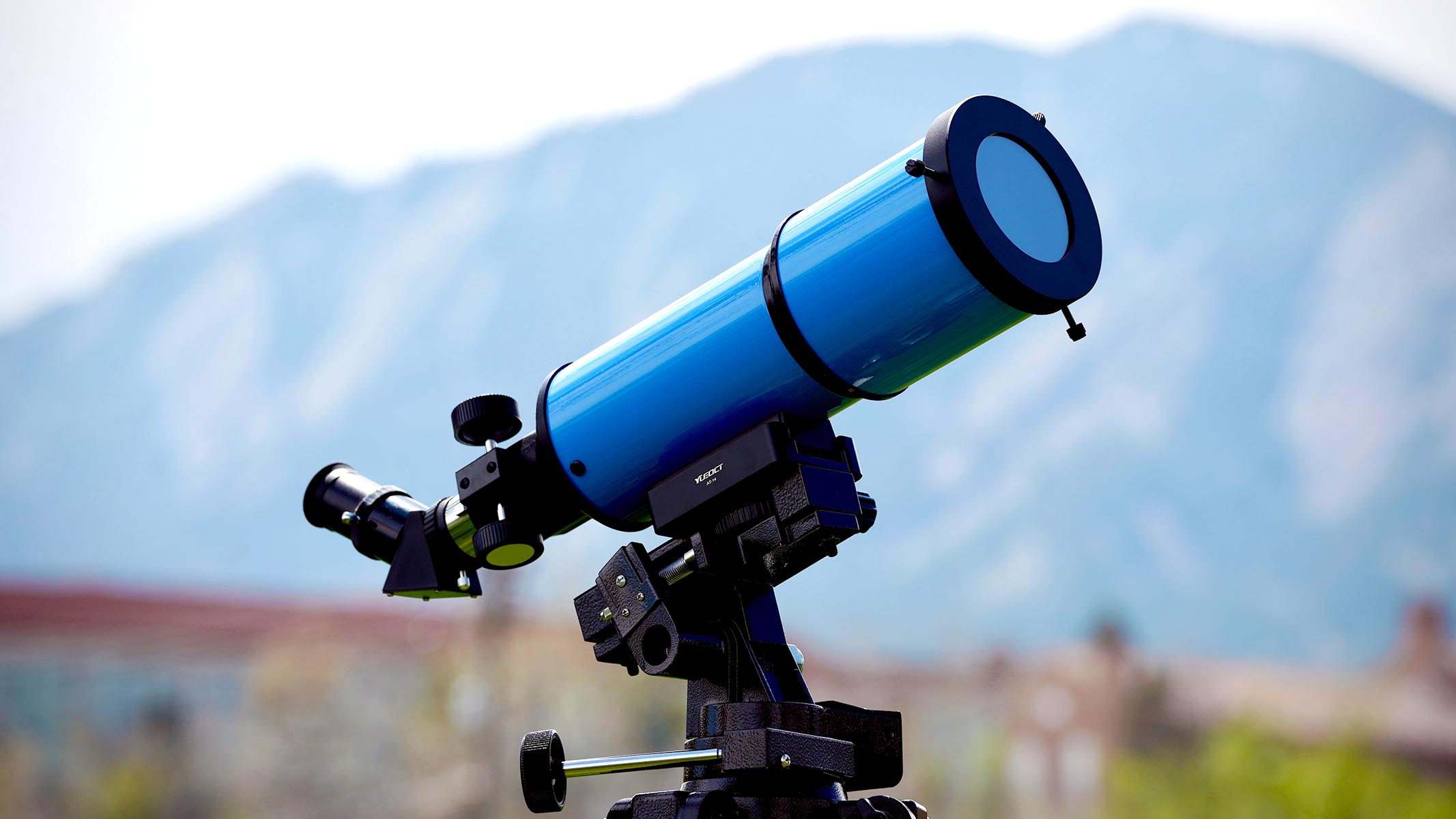
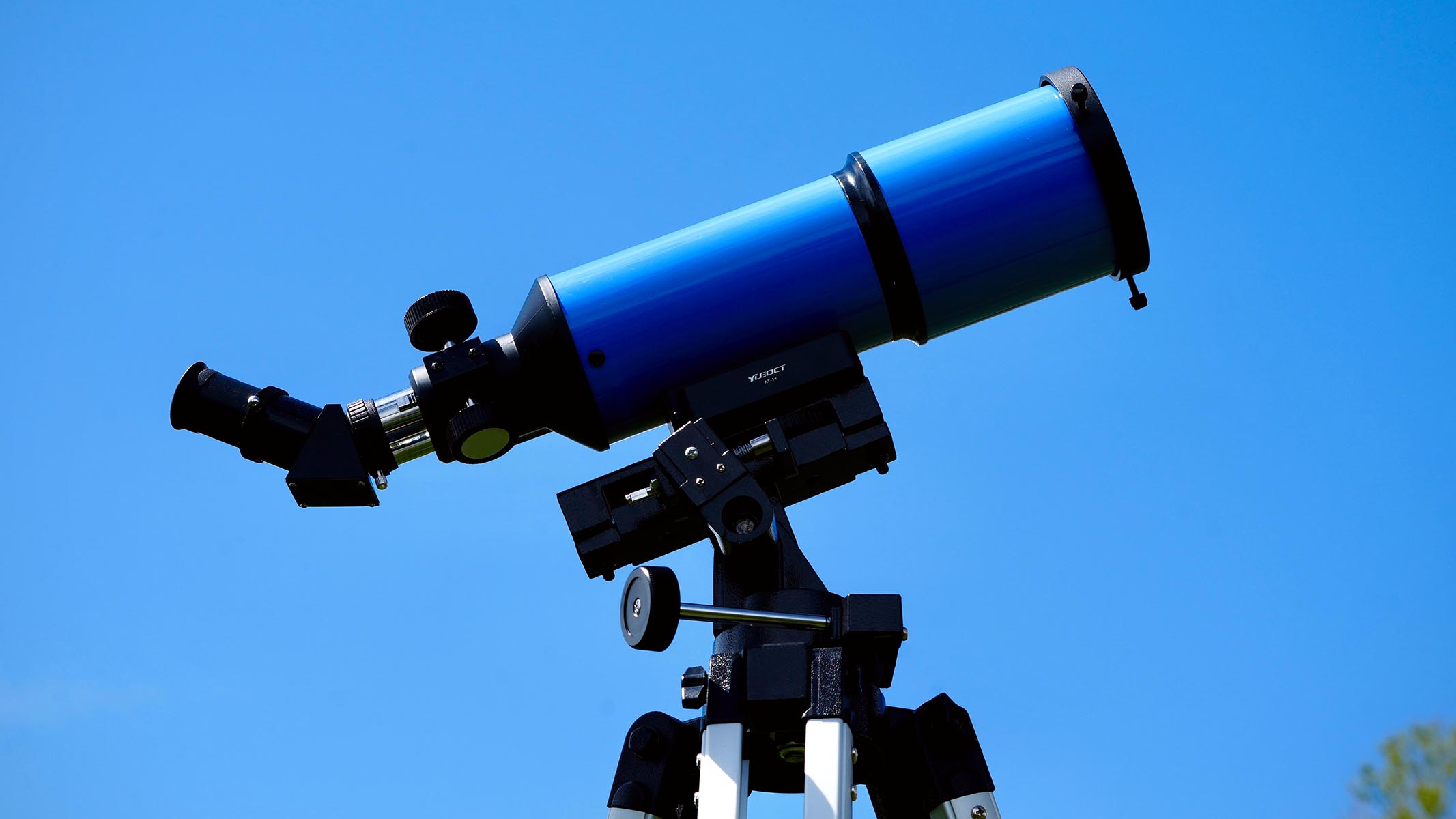
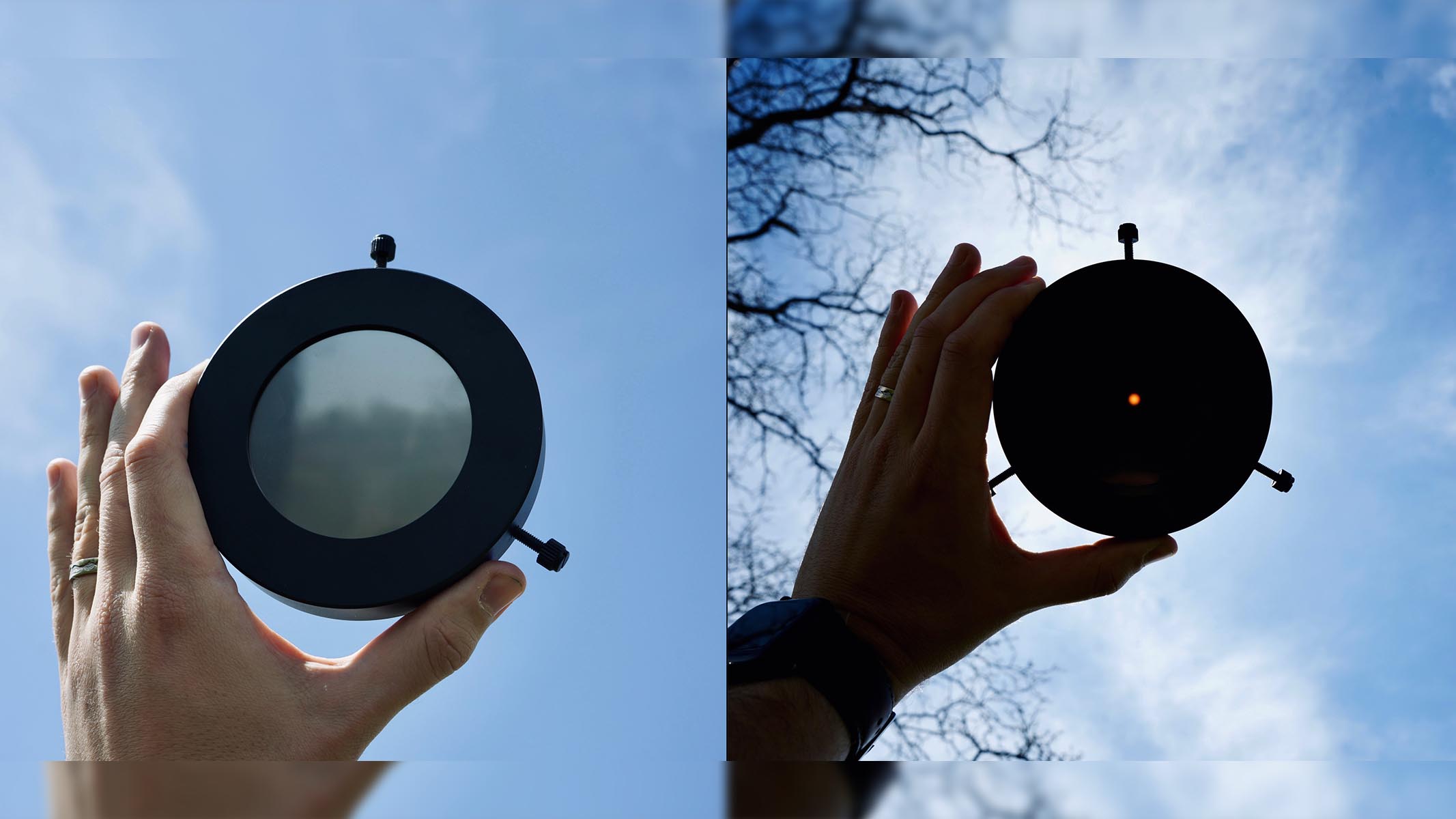
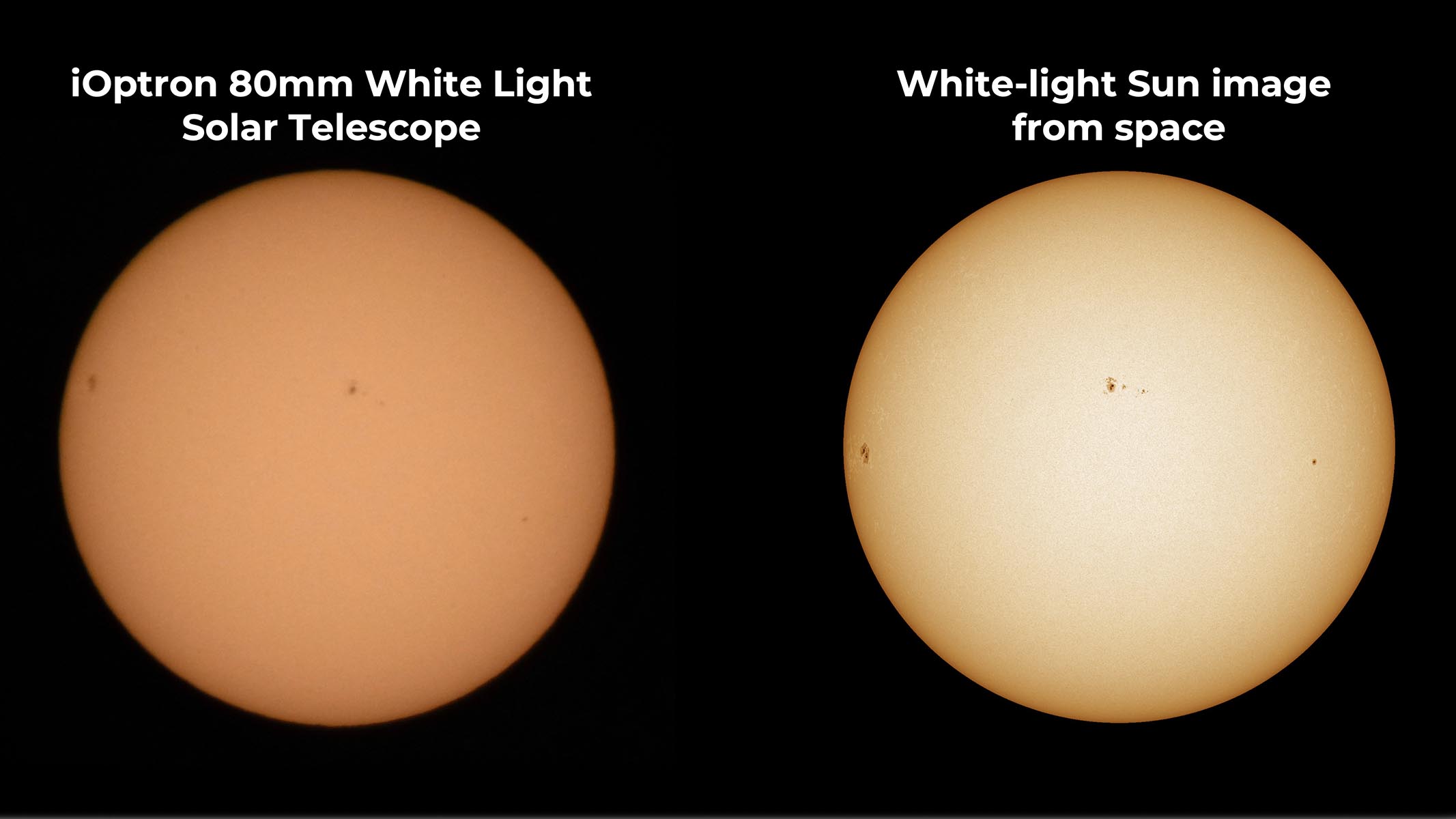
Specifications
Reasons to buy
Reasons to avoid
✅ You’re a beginner to solar viewing: This scope is easy to set up and use so it would suit those new to solar viewing.
✅ Portability is key: This scope is lightweight and portable so it can be taken anywhere for solar viewing.
❌ You want to take photos of the sun: The small aperture means photographing the sun isn’t possible with this scope.
❌ You already own a telescope: We’d recommend purchasing a solar filter for your telescope rather than buying this one as an additional scope.
🔎 iOptron 80mm White Light Solar Scope: Versatile as both a solar scope and nighttime telescope, this scope offers beginners the chance to get acquainted with the sun, with good views of sunspots and more. ★★★½
The iOptron 80mm White Light Solar Scope is a compact and sleek refracting telescope. The SolarLite solar filter from Thousand Oaks simply mounts onto the end of the telescope with three screws and, being from a reputable company, is safe. We’d recommend this for beginners to solar viewing, as it is so easy to set up — you simply mount the scope to the tripod and attach the solar filter.
During our testing period, the scope performed well, allowing us to get good views of visible sunspots on the sun’s surface. When viewing the sun, the aperture is actually only 60mm due to the solar filter, and with the 9mm eyepiece, the views filled the space nicely. Even with the 25mm eyepiece, we still managed to see sunspots. We were impressed with the scope’s ability to pick out sunspots, especially when we compared our image to that of one taken by the Solar Dynamics Observatory.
If you’re looking for a scope that you can take with you, this is a good option. It’s lightweight and portable so you don’t need to worry about keeping it in one place — you can take it with you on holiday, for example. And as you can also use it for nighttime observations, its portability is an added benefit.
- Read our full iOptron 80mm White Light Solar Scope review
Attributes | Notes |
|---|---|
Design | Simple and compact |
Performance | Good views of visible sunspots |
Functionality | Easy to set up, even for beginners |
Skywatching highlights this month
Jan. 9-10 (overnight) - Jupiter at opposition
On Jan. 10, Jupiter will be at opposition and will be at its brightest in the night sky. Opposition is when a planet is directly opposite the sun from Earth's perspective and these are events when planets are brightest and best for observation.
The gas giant will appear in the constellation Gemini and shine at a magnitude of -2.7.
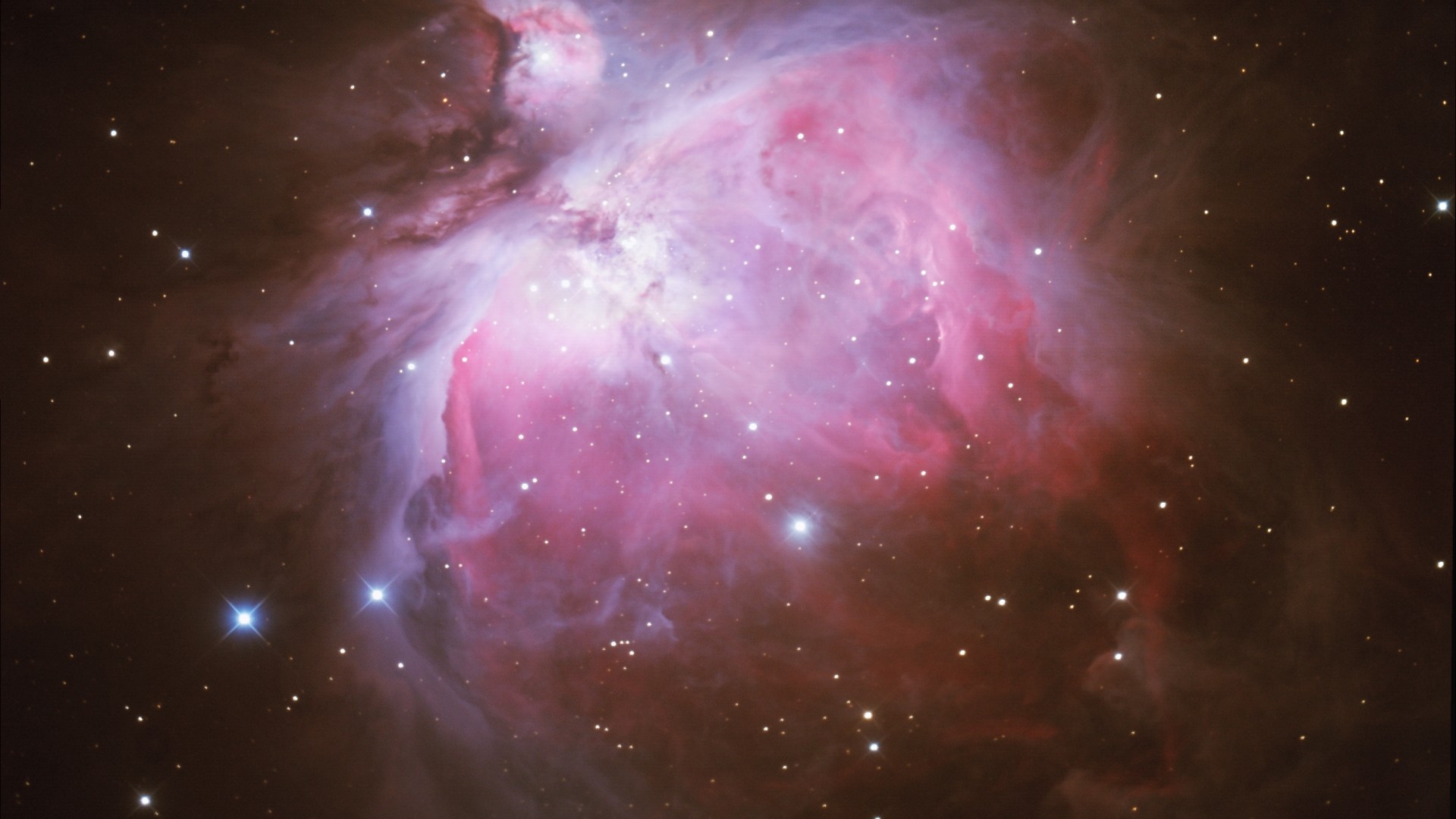
Jan. 18 - Dark skies are perfect for nebulas and clusters
The new moon arrives on Jan. 18 and brings with dark skies that make challenging, faint deep sky objects easier to observe. When there is no light from the moon and light pollution, galaxies, nebulas and star clusters become easier to observe.
Try some of the classic deep space objects, such as the Orion Nebula (M42), the Beehive cluster (M44) and the Pleiades cluster (M45).
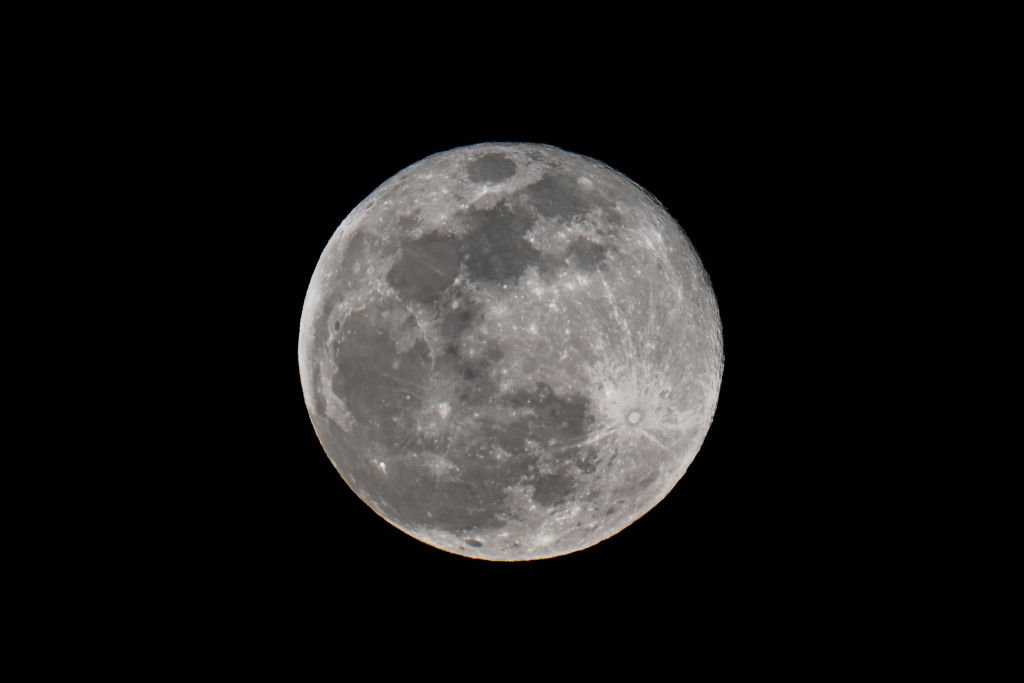
Feb. 1 - Full Snow moon
After January's impressive Wolf Supermoon, February is bringing the Snow Moon on the first of the month. Full moons are beautiful with the naked eye but observation through a telescope makes it even more impressive and allows you to see more detail on the craters and lunar seas.
Contributing experts

A contributing expert to Space.com, Live Science, All About Space and more, Gemma is the author of several books including 'Quantum Physics in Minutes'. She holds a degree in physical sciences, a Master's in astrophysics and a PhD in computational astrophysics and became fellow of the Royal Astronomical Society in 2011. Gemma is also the Communications and Outreach Officer at the European Space Agency.
Telescope FAQ
How do I choose the right telescope for me?
Choosing the perfect telescope can be a serious challenge, especially as a beginner. There's a lot of jargon and technical knowledge that surrounds them. Plus, you've got hundreds of options to choose from, with multitudes of different configurations, settings, all at a wide range of prices.
The good news is that quality of telescopes has drastically improved in recent years, so most models' quality is usually pretty good these days; you're unlikely to end up with a total dud. That said, there are better options than others, and we've endeavored to only include the very best in this guide.
The most important factor in choosing a telescope is the optical quality it provides. You'll also want to think about what aperture you need and whether you need a more portable model or a larger, more powerful one. Beginner telescopes are a brilliant option if you're just starting out in the field.
In order to get the best possible views of the night sky, you'll also need to consider where you're observing from, what objects you'd like to see in particular, your setup if you're going to attempt astrophotography, and more. If you're planning on roaming with your telescope, weight and portability are other factors to take into consideration.
We'd strongly advise you to stick to reputable telescope dealers to buy your scope from. That way you'll be sure to get exactly what you've ordered, and many will provide a warranty with your purchase. Astronomical equipment businesses also tend to offer the best deals on their products, and have advisors on hand to help you make the right decision for you.
Below, you'll find a breakdown of the different types of telescopes you can buy, as well as which model we think is best.
What types of telescope are there?
There are three main types of telescopes: reflector, refractor and catadioptric telescopes.
Reflectors have a main mirror to gather and focus light, whereas refractors have an objective lens. Catadioptrics have a main mirror, and a lens of the same diameter. All three of these types of telescopes have 'sub-types' which vary by design. For example, the most basic reflector telescopes have a Newtonian design, which means they have a main mirror and a smaller, secondary one to divert the light at right angles to the eyepiece from the top of the telescope.
As we've mentioned above, nowadays, you're spoilt for choice when it comes to quality (and relatively affordable!) telescopes. So, which type should you opt for? We think Newtonian reflector telescopes on a simple undriven alt-azimuth mount (known as a 'Dobsonian') offer the best value in terms of aperture.
However, if you are interested in learning your way around the night sky 'the old fashioned way', then a Dobsonian telescope might be the way to go. They don't come with any bells and whistles, so you'll need to arm yourself with a star map to make sense of stargazing. Dobsonians collect a lot of light, and they have enough resolving power to deliver breathtaking views of celestial objects. Dobsonian telescopes over 6 inches in aperture tend to be pretty large and imposing, so you'll need to consider where it can be stored if you purchase one. A garden shed or garage might be the best option.
If you add an equatorial or computerized mount, Newtonian or refractor telescopes become much more expensive. You can find several types of computerized mounts for Newtonian telescopes: Dobsonians (push-to or GoTo), single time-mounted (tracking or GoTo) and German equatorial (GoTo). For reference, for a computerized push-to Dobsonian, you'll be looking at spending about twice as much than for a manual model of the same aperture, while a GoTo will set you back almost four times the price of its manual counterpart. A premium Newtonian on a German equatorial mount can be as much as ten times more expensive than one on a manual mount!
If ease of use, portability and convenience are high on your requirements, and you like gadgets, then a short focal length refractor of up to 4 inches or a catadioptric (Schmidt- or Maksutov-Cassegrain) up to 5 inches on a computerized mount may well fit the bill. These are versatile telescopes with high magnification which enables you to observe amazing details on the moon and planets.
Achromatic refractors with short focal lengths typically display a degree of false color around the edges of bright objects like the moon because they can't focus all wavelengths of light to a precise point. Most users are happy to accept this drawback because refractors are so easy to use and care for; however, if you're after a clean, high-contrast view without false color, the Maksutov is the best option here.
The best views of the night sky are obtained through apochromatic refractors. Using special glass objectives, they focus all wavelengths of light to as near a single point as possible and are free of false color. It is worth noting though that apochromats cost around four times as much as equivalent-sized achromats. It's up to you whether you're prepared to invest that kind of money into your skywatching.
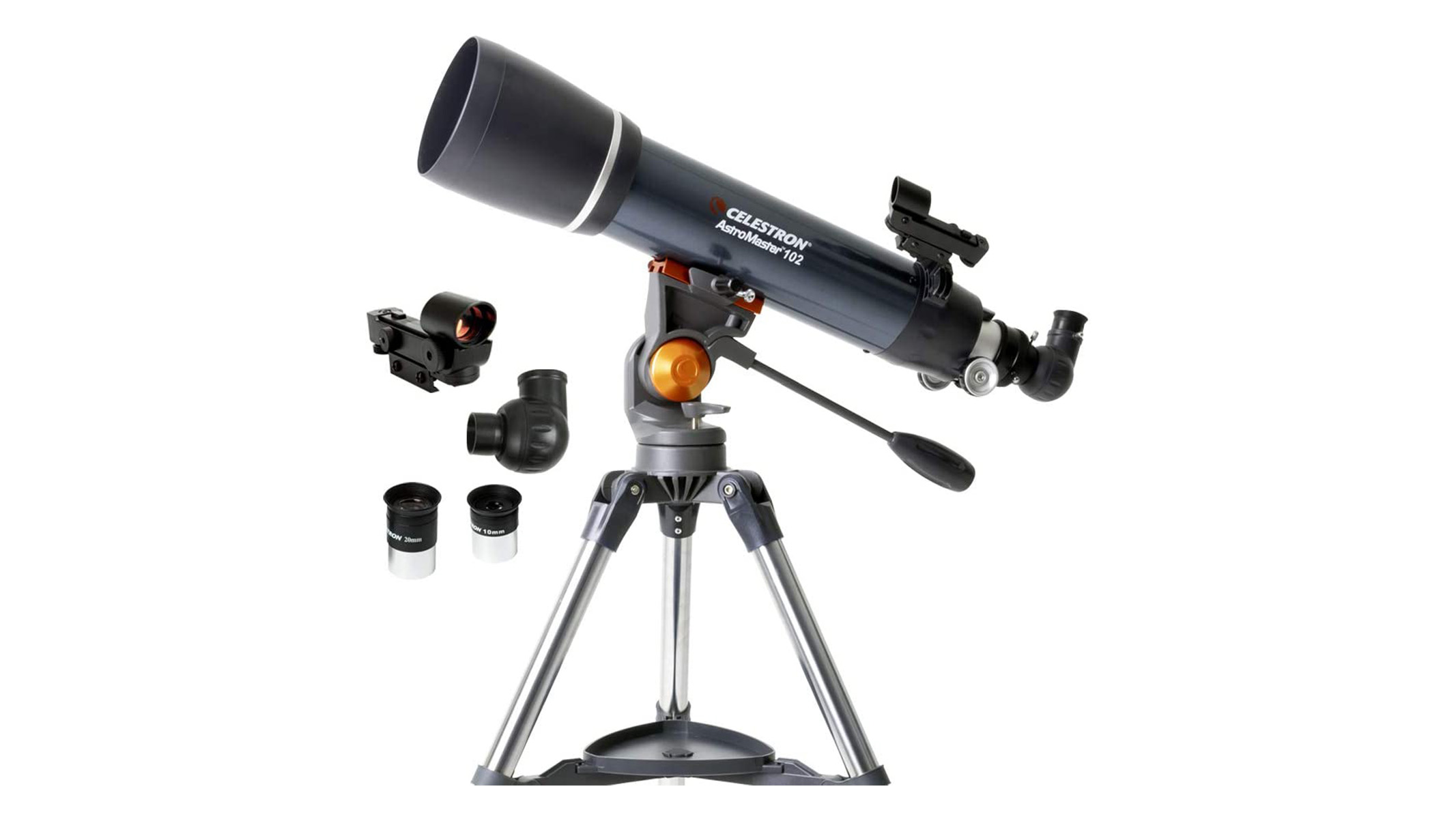
How does a refractor telescope work?
Refractors work by bending — or refracting — the light they gather to give you a view of your astronomical target. Easy to set up, the refractor is best suited to planetary and lunar viewing, using lenses to collect and focus light to form an image, while an eyepiece magnifies the view.
The refractor has a fairly straightforward design, with a main objective lens at one end and a star diagonal with a threaded eyepiece at the other. Being intuitive to use, the refractor is often a popular instrument for novice astronomers, given their low maintenance. Refractors are usually affixed to a simple alt-azimuth mount, that slews from side to side and up and down to locate a desired target. Being easy to use means these telescopes are also simple to manufacture (at least for novice models) and, therefore, cheaper to buy.
The downside is that the higher the aperture, the more expensive the refractor gets. Unfortunately, this means that a basic refractor is also the number one target to replicate in mail-order catalogs and other non-reputable vendors, so caution must be exercised when purchasing this type of telescope.
Refractors are particularly good at giving highly magnified and high contrast images and, because of this, are ideal instruments to use when looking at solar system targets such as the moon and the planets. The best refractors usually have an aperture of 2 inches (60mm) or more and will provide you with reasonable views of astronomical objects. A 3 to 4-inch (80 mm - 90 mm) would be best suited if you're looking for a larger aperture.
The drawback of a refractor is that it can suffer from chromatic aberration, also known as color fringing. When a single lens doesn't focus all the colors emitted from a target object at the same point, bright objects such as the moon, Venus or Jupiter usually have a colored halo around them. To reduce this problem, many refractors are manufactured as achromatic or APOchromatic (also known as Extra Dispersion (ED) telescopes).
The achromatic refractor is cheaper than the apochromatic refractor and, combined with its efficiency, is often the type of telescope that novice astronomers go for. Even if you choose the more expensive achromatic, you'll likely get a stubborn degree of purple fringing around some targets.
Unless you're a seasoned skywatcher and you can afford to go for the more expensive apochromatic — which corrects for such an effect by using exotic glass for the lenses — this degree of color fringing will not ruin your observing experience to any great extent. If you decide to go for the expensive option, you will be stunned by the views you will get through these excellent telescopes. Be warned, though, you might find that some apochromatics come without a tripod, something that you'll have to buy separately along with any accessories.
- Discover the Best tripods, Best travel tripods and Best camera accessories for astrophotography in our handy guides.
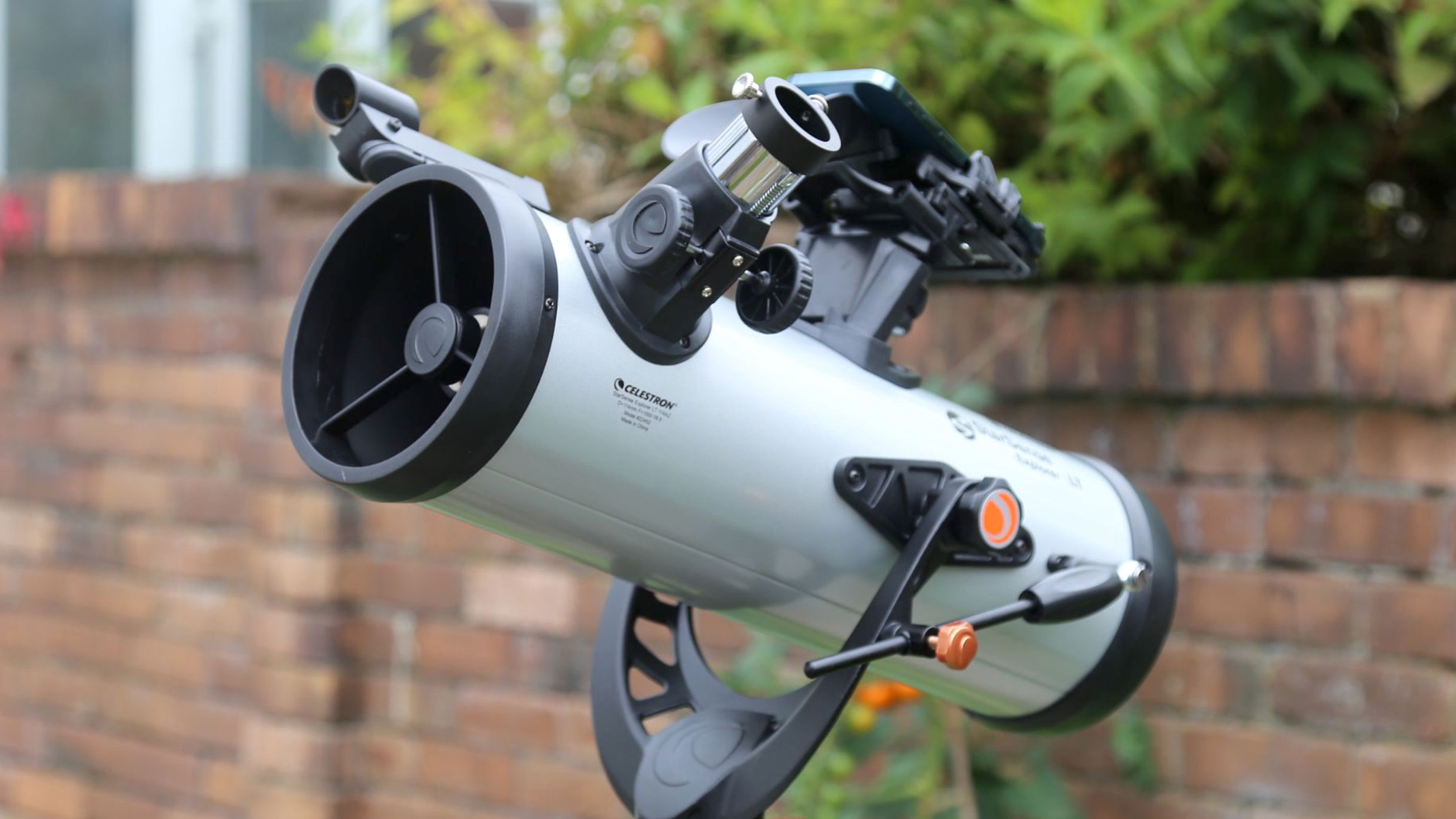
How does a reflector telescope work?
There are two common types of reflector telescope — the Newtonian and the Dobsonian. The way these instruments operate is the same — they both use mirrors to reflect light to create an image of the object you're looking at.
The Newtonian telescope comprises a curved light-collecting mirror, which can be found at the tube's base. The light that hits this mirror is reflected back to the front of the tube, where a smaller flat mirror — oriented at 45-degrees — brings light to the observer who can see their chosen object.
The Newtonian can be found on alt-azimuth mounts, but you shouldn't be too surprised to find this type of reflector is more popularly affixed to an equatorial mount, allowing the telescope to follow the rotation of the sky while being aligned with your hemisphere's celestial pole. This reflector is a favorite in the amateur astronomy community due to its versatility in observing a wide selection of astronomical targets and allowing for astrophotography. With Newtonians, you can also buy a large aperture for less money — for instance, an eight-inch (203.2 mm) reflector would cost you less than a refractor with the same aperture, allowing you to get much more value for your money.
Newtonian reflector telescopes do require some maintenance. The mirrors must be aligned periodically to ensure that they are reflecting light properly. The mirrors can also become tarnished over time, so they may need to be repainted. If you choose a Newtonian reflector telescope, select one with a protective mirror coating. This will help extend the mirrors' life and make them easier to maintain.
Some beginners to the hobby of astronomy might find setting up and using an equatorial mount tricky — that's where the Dobsonian comes in. These telescopes give the capabilities of a reflector without the complexities an equatorial mount will bring since it employs an alt-azimuth mount. Dobsonians are very simple to use and can easily be pulled into orientation when looking at astronomical objects. If you're not confident in navigating your telescope though, then GoTo or computerized Dobsonians and Newtonians (that slew to objects for you using an in-built motor) are on the market — but cost more. Learn more about these in our 'What are Dobsonian telescopes' guide.
Whatever reflector you choose, these telescopes are excellent for low-magnification targets such as galaxies and many nebulas.
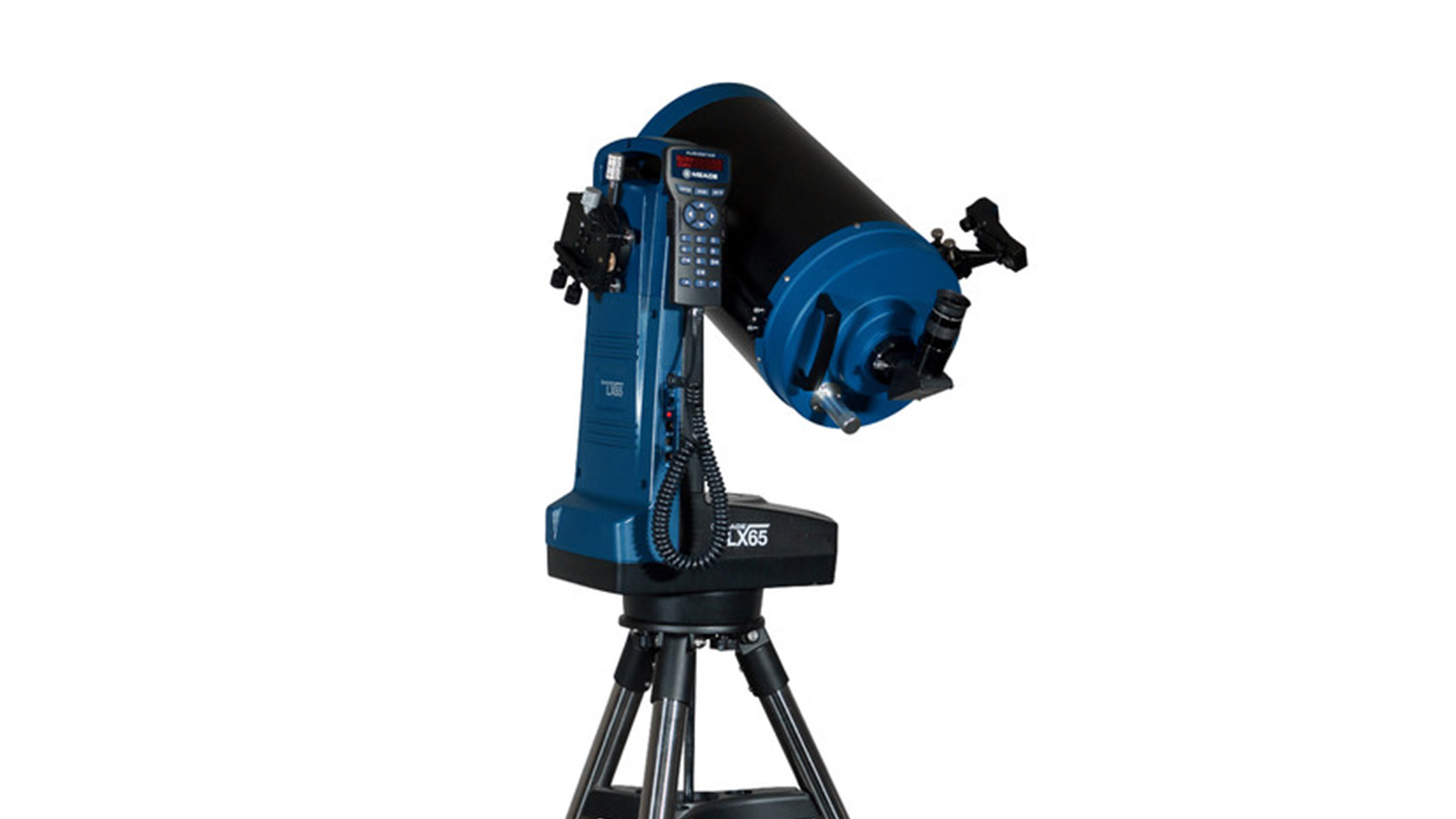
How does a catadioptric telescope work?
Ideal for astrophotography, the catadioptric is an excellent instrument for taking a wide range of astronomical targets and is manufactured in order to take the best parts of two kinds of telescopes: The reflector and the refractor. What's more, the catadioptric takes advantage of a lightweight design, meaning that it's much more portable than other kinds of telescopes and its sealed optics promote little to no maintenance. The only major downside to choosing a catadioptric is that the vast majority can be expensive. However, if you are on a strict budget, picking up one of these instruments isn't unheard of — you've just got to make sure to shop around.
While refractors use lenses, and reflectors make use of mirrors, to create and magnify an image, the catadioptric makes use of both lenses and mirrors for high-definition and superior views. During your observations, light from your chosen target passes through to a lens, which corrects or reduces aberration that distorts the view that is later taken in through the eyepiece. Curved primary mirrors then reflect this light onto a secondary mirror, which then reaches your eyes. You will find two kinds of Catadioptric telescopes — the Schmidt-Cassegrain and the Maksutov-Cassegrain.
The Maksutov-Cassegrain, also affectionately known as the 'Mak', corrects the optical problem that is experienced by reflectors — an aberration effect called 'coma,' which can make objects look distorted and appear like they have a tail. This effect is reduced or banished with the combined efforts of a spherical mirror and a meniscus lens, the latter of which is 'weakly negative'. The Maksutov is also adept at correcting for chromatic aberration, or color fringing, a distortion that creates an unwanted purple or blue edging around bright night-sky objects.
Packed into its short optical tube is a system that allows you to target higher magnification objects such as the planets, moon and double stars. Additionally, if you struggle to find objects and your way around the night sky, then both this type of catadioptric telescope and the Schmidt-Cassegrain can be found in abundance and equipped with a GoTo system.
The other most common kind of catadioptric, the Schmidt-Cassegrain, offers similar capabilities to the Maksutov and will allow you to make general observations of planetary targets and stars. It is also possible to expand the telescope's field of view with the help of corrector lenses, enabling exquisite views of an even wider selection of astronomical targets.
- Save money with the best Telescope deals or the Best budget telescopes under $500.

What is a finderscope?
A finder scope is a low-power (low magnification) telescope that sits on your main telescope, to help you track down your desired subject. Your main telescope will typically have a narrow field of view, meaning you'll see only a little portion of the sky when you look through it. Your finder scope, with a wider field of view, assists you in pointing your telescope, making it easy to hone in on your target with minimal searching and repositioning.
Center your subject in the finder scope's frame; there are usually crosshairs or a dot so you know when it's central. Now when you look through your telescope's eyepiece, your subject will be centered here too.
Many telescopes include a finder scope with the package. But if you need to purchase one separately, it's important to know that there are two main types. One has a straight-through view, and one has a right-angled view. If you have a Newtonian reflector telescope you'll want a right-angle finder. And if you use a refractor or catadioptric due to the location of their eyepieces you should buy a finder with a straight-through view. Some finder scopes will also be magnified — higher magnification and a narrower field may be desirable if you need pinpoint accuracy.
You'll also come across the terms 'inverted' or 'erect image.' The latter means the finder scope has a correcting prism that flips the image the 'right way up’ (top-to-bottom) and ‘around’ (left-to-right). Some finder scopes don't have a correcting prism, so you see either a back-to-front image or upside down. This can be disorientating and make finding subjects more difficult, especially if you're just starting out and wondering why your telescope's controls seem to be inverted.
What does aperture, magnification and focal length mean on a telescope?
Time to dispel jargon myths with a bit of a telescope glossary. The larger a telescope's aperture (the size of its main lens or primary mirror) the more light is collected and more fine detail is revealed. For example, a 200 mm aperture collects four times more light than a 100 mm telescope. Under ideal conditions, a 100 mm telescope reveals stars down to magnitude +11.8, while a 200 mm telescope will show stars down to magnitude +13.3. A 100 mm telescope will 'split' a double star separated by 1.5 arcseconds and resolves a three-kilometer lunar crater; however, a 200 mm telescope resolves a crater just 1.5 km across and a double star separated by just 0.6 arcseconds. Resolution is limited by the telescope's optical quality and the steadiness of the Earth's atmosphere.
Telescopic magnification depends on the telescope's focal length (the distance between the objective lens/primary mirror and the point of focus of the light it collects) and the focal length of the eyepiece used. Magnification is calculated by dividing the telescope's focal length by the eyepiece's focal length. For example, a 100 mm telescope with a focal length of f/8 (eight times the telescope's aperture) has a focal length of 800 mm; used in conjunction with an eyepiece of 10 mm it will deliver a magnification of 80 times (800 divided by 10).
With any telescope, the range of useful magnification depends on a telescope's aperture and focal length, combined with the focal length of the eyepiece. Too low a magnification (taking in as wide an area as possible) will actually waste light since the 'exit pupil' of the eyepiece will be larger than the diameter of the pupil of your dark-adapted eye. On average, the adult pupil will dilate to around 7 mm in dark conditions. Therefore the exit pupil delivered by an eyepiece ideally needs to be 7 mm or smaller so that all the light gathered by the telescope — especially when attempting to see faint objects — can be taken in. Exit pupil can be calculated by dividing the telescope's aperture by the magnification delivered by any particular eyepiece.
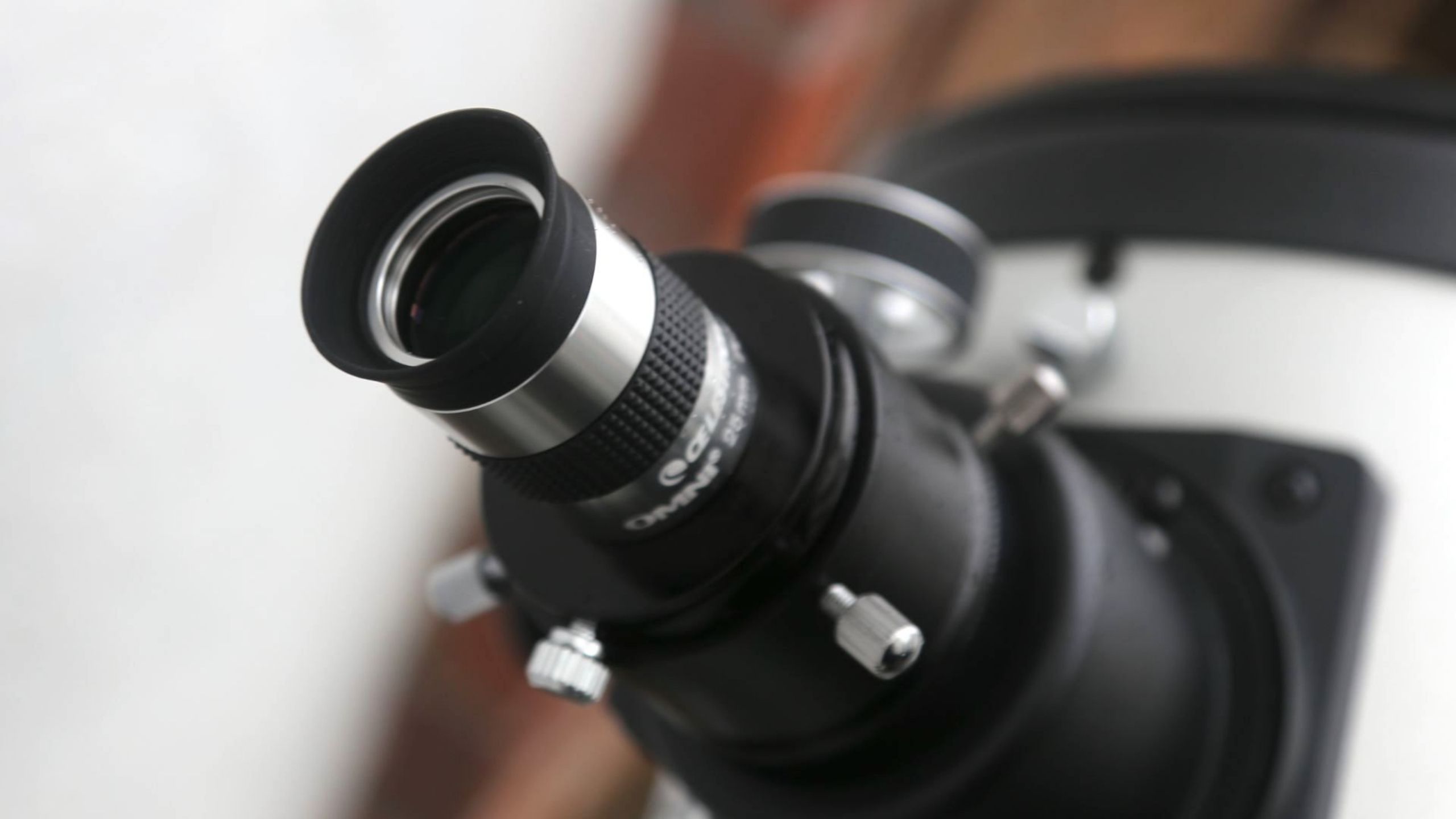
Magnification: How do telescope eyepieces work?
Eyepieces work by magnifying the light focused by the telescope's primary mirror or objective lens. Every telescope eyepiece has a specific focal length (given in millimeters), and the shorter this figure is, the higher the magnification. To calculate the magnification provided by any particular eyepiece on any telescope, divide the telescope's focal length by the focal length of the eyepiece used. For example, a 1000 mm focal length telescope (say, a 100 mm refractor of f/10, or a 200 mm Newtonian of f/5) will deliver a magnification of 100 with a 10 mm eyepiece (1000 divided by 10 = 100).
Although any telescope can give impressively high magnifications using short focal length eyepieces, there is a point when increasing magnification will provide a worse image rather than improve it. When an object is magnified, its brightness is reduced as the finite amount of light is spread over a larger area. In addition, increasing magnification exacerbates the amount of atmospheric turbulence visible; therefore, high magnifications can only be used when seeing conditions are good. Finally, high magnification is practical only with driven telescopes. Otherwise, the object will quickly drift out of the field of view.
As a guide, your highest power eyepiece should deliver a magnification double the telescope's aperture in millimeters — for example, 200x on a 100 mm telescope, 400x on a 200 mm telescope, and so on.
It's best to have at least three good quality eyepieces that deliver low, medium and high magnifications — say around 50x, 100x and 200x. Taking as an example a 100 mm f/10 telescope, those eyepieces would be of 20 mm, 10 mm and 5 mm focal length. Let's assume that these particular eyepieces are of the commonly used Plossl variety. A field of view around one degree across (an area of 0.8 square degrees) is given by the 20 mm eyepiece — ideal for sweeping the deep skies and finding objects. The 10 mm eyepiece will just take in the half-degree diameter moon and have a field covering just one-quarter that of the 20 mm eyepiece. With its high magnification, the 5 mm eyepiece has a field of view covering just one-sixteenth that of the 20 mm eyepiece and can only be used when seeing conditions allow.
Update Log
Editor's note 01/23/26: Added the iOptron 80mm White Light Solar Scope as the best for solar viewing.
How we test the best telescopes
To guarantee you are getting honest reviews and informed recommendations of the best telescopes, each telescope is thoroughly tested and used for observation to see how it performs in all aspects.
By looking at the build of the Optical Tube Assembly (OTA) we can give a clear breakdown to our readers. This includes discussing the type of telescope (refractor, reflector, catadioptric), how many parts the OTA consists of, the size of the OTA and the clarity of the lens. This is important because some telescopes require advanced collimation (alignment) of the mirrors and consistent cleaning to make sure that they perform at their best.
Telescope accessories, like eyepieces and mounts, are assessed in terms of their functionality and quality. Alt-azimuth and equatorial mounts are tested in terms of smooth movement, especially if they are motorized. Star alignment is another important feature we test, as it can range from aligning a finder scope to advanced laser collimation techniques.
Considering that telescopes are complicated optical instruments, we think about how much astronomical knowledge a user would need to operate the telescope with ease. Powerful intricate telescopes often require regular collimation and movement can misalign the mirrors meaning that they require adjustment before every observation. Our recommendations also include whether we think the telescope is portable and suitable for traveling to dark-sky sites.
The most important part of testing a telescope is seeing how powerful its observational abilities are. We give examples of what we were trying to observe and say how good the image was, with honesty. With a range of telescopes, our reviewers have observed the moon, Jupiter and a range of Messier objects, checking for a range of aberrations and distortions in the image.
To give you a review you can trust, we test the claims of the telescope manufacturers against their real-life use. Our staff and freelance reviewers are seasoned stargazers with many years of experience using telescopes. We also work with astronomy experts to ensure that we are giving you the most accurate and important information on telescope use.
Breaking space news, the latest updates on rocket launches, skywatching events and more!

Gemma currently works for the European Space Agency on content, communications and outreach, and was formerly the content director of Space.com, Live Science, science and space magazines How It Works and All About Space, history magazines All About History and History of War as well as Science, Technology, Engineering, Arts and Mathematics (STEAM) kids education brand Future Genius. She is the author of several books including "Quantum Physics in Minutes", "Haynes Owners’ Workshop Manual to the Large Hadron Collider" and "Haynes Owners’ Workshop Manual to the Milky Way". She holds a degree in physical sciences, a Master’s in astrophysics and a PhD in computational astrophysics. She was elected as a fellow of the Royal Astronomical Society in 2011. Previously, she worked for Nature's journal, Scientific Reports, and created scientific industry reports for the Institute of Physics and the British Antarctic Survey. She has covered stories and features for publications such as Physics World, Astronomy Now and Astrobiology Magazine.
- Brandon SpecktorLiveScience senior writer
- Kimberley LaneContributing writer
- Tantse WalterContributing Writer
- Harry BennettE-commerce Staff Writer
- Jase Parnell-BrookesManaging Editor, e-commerce
